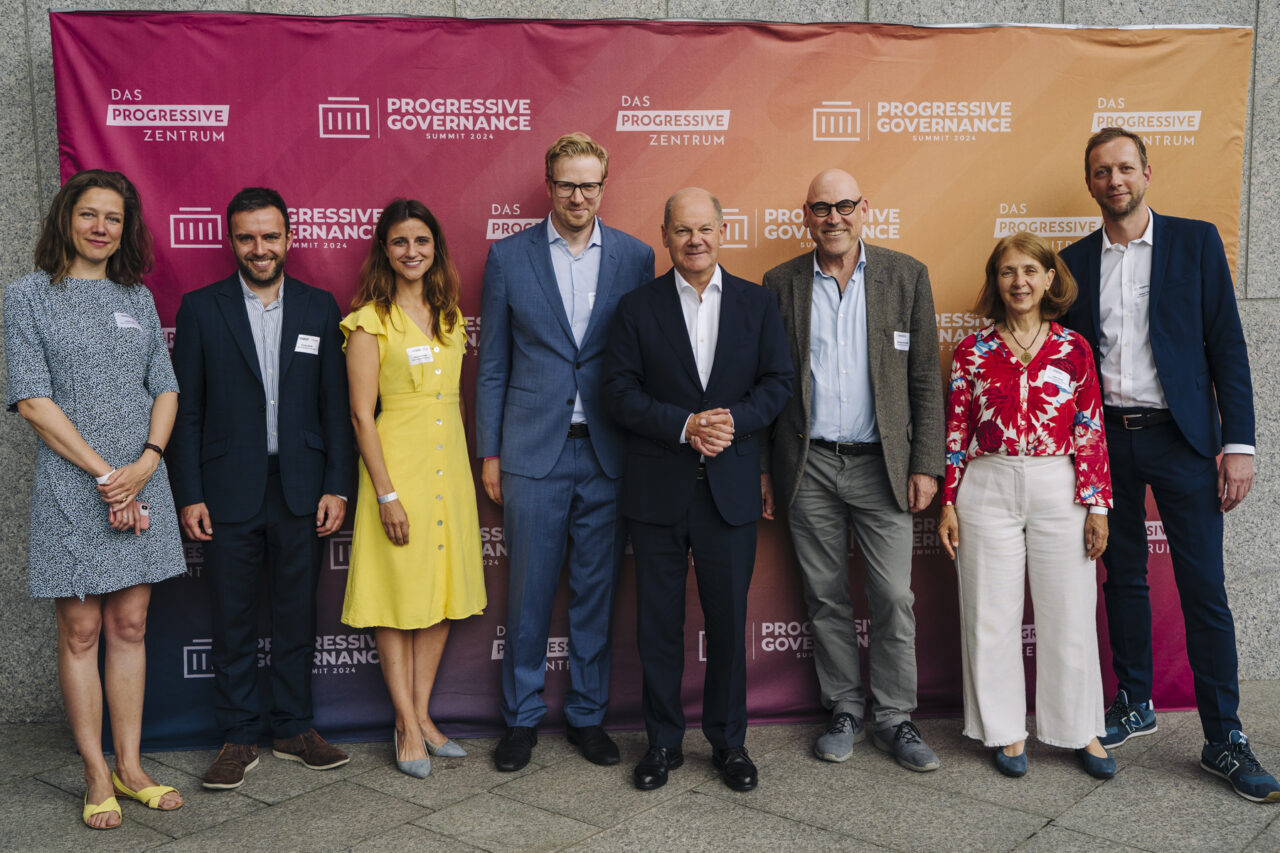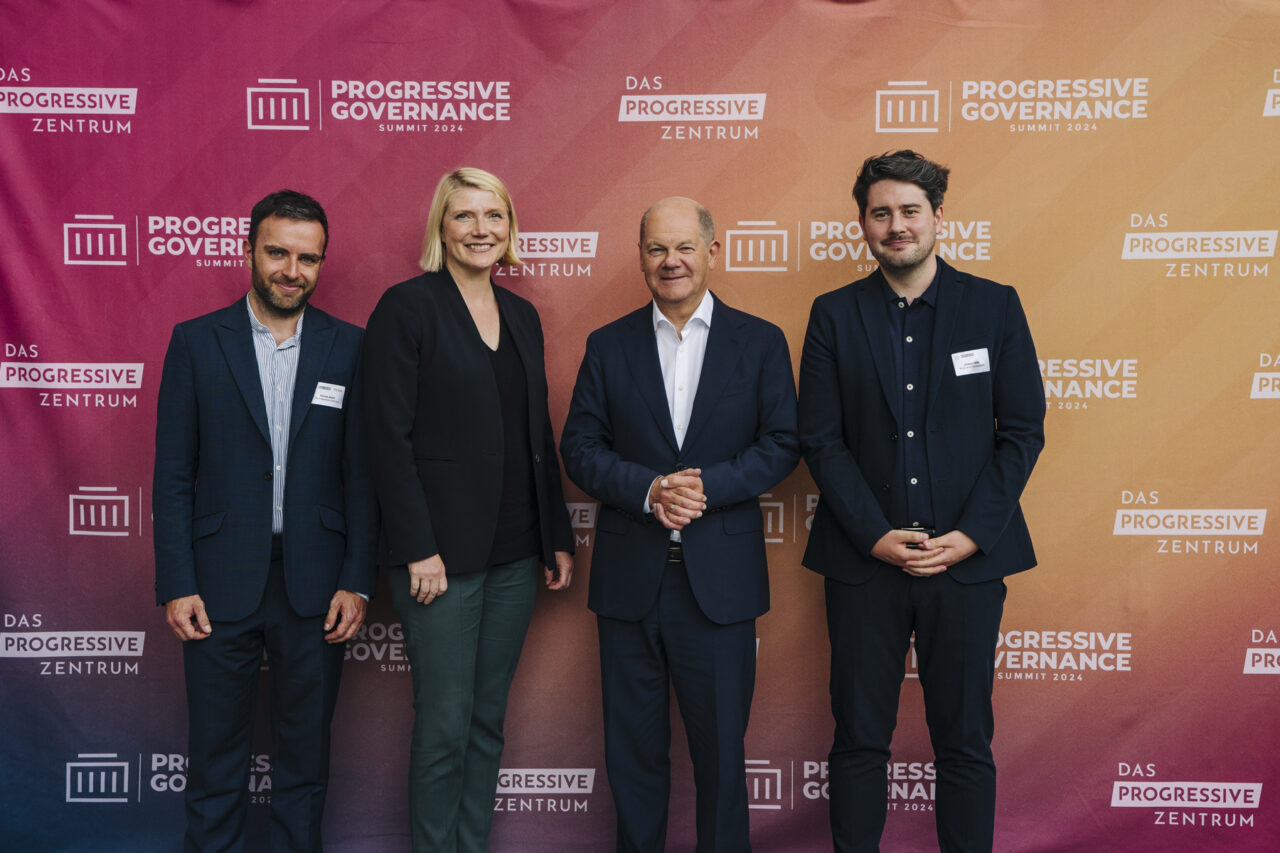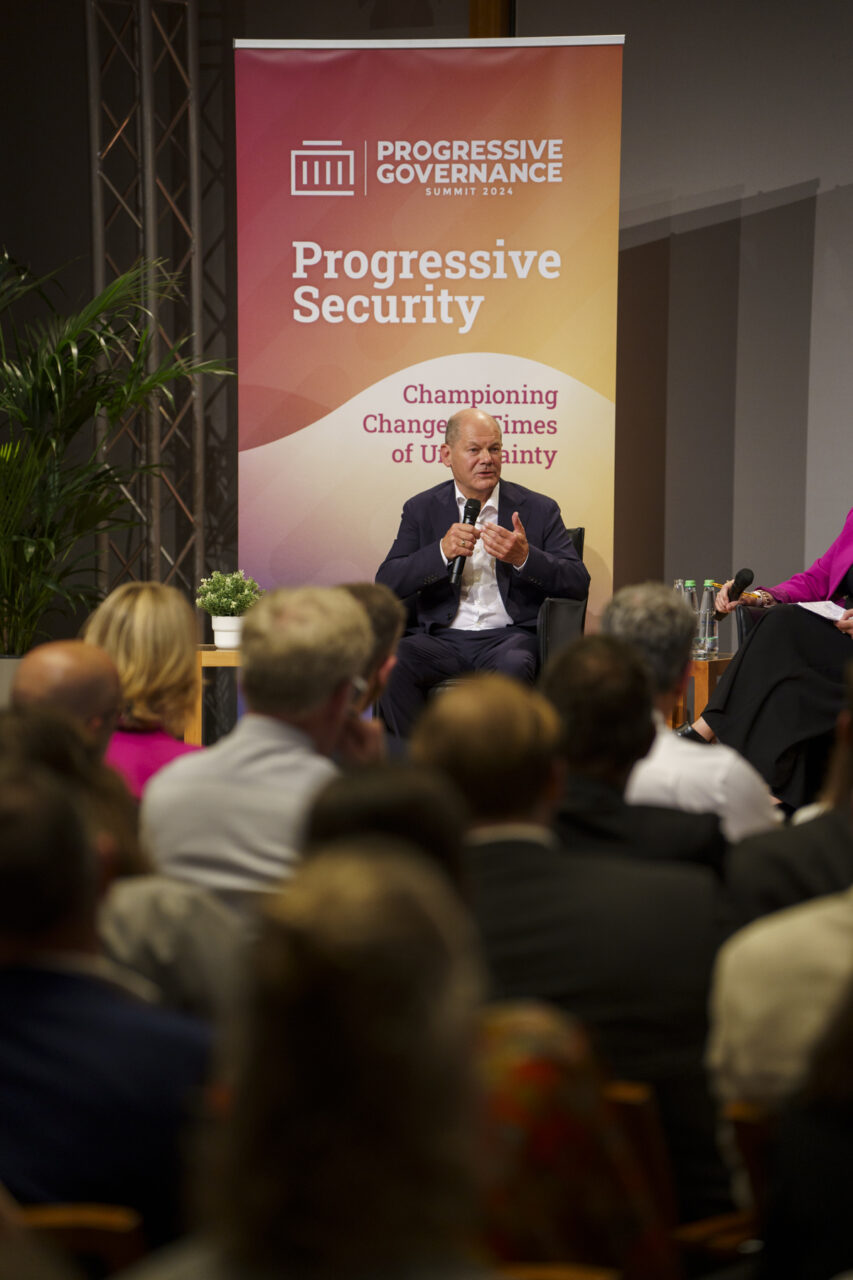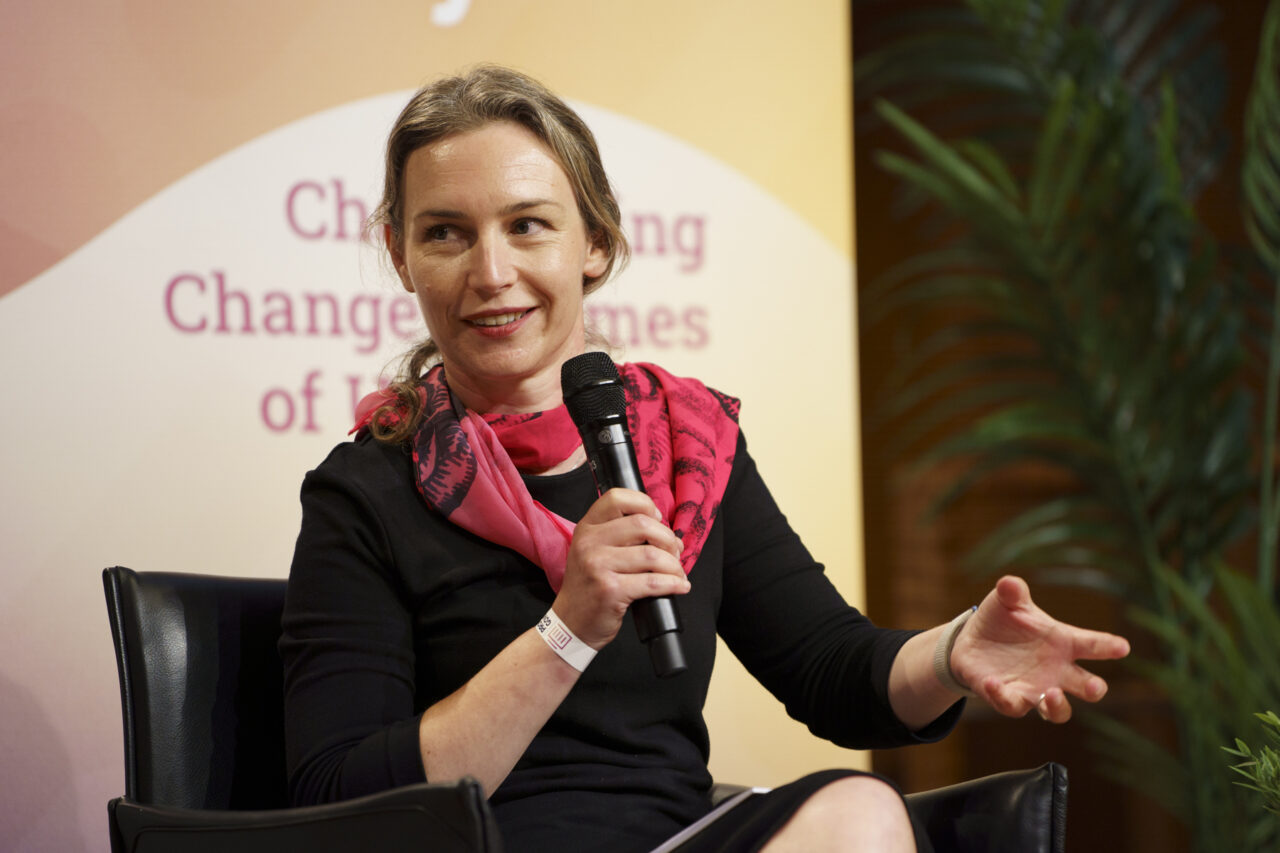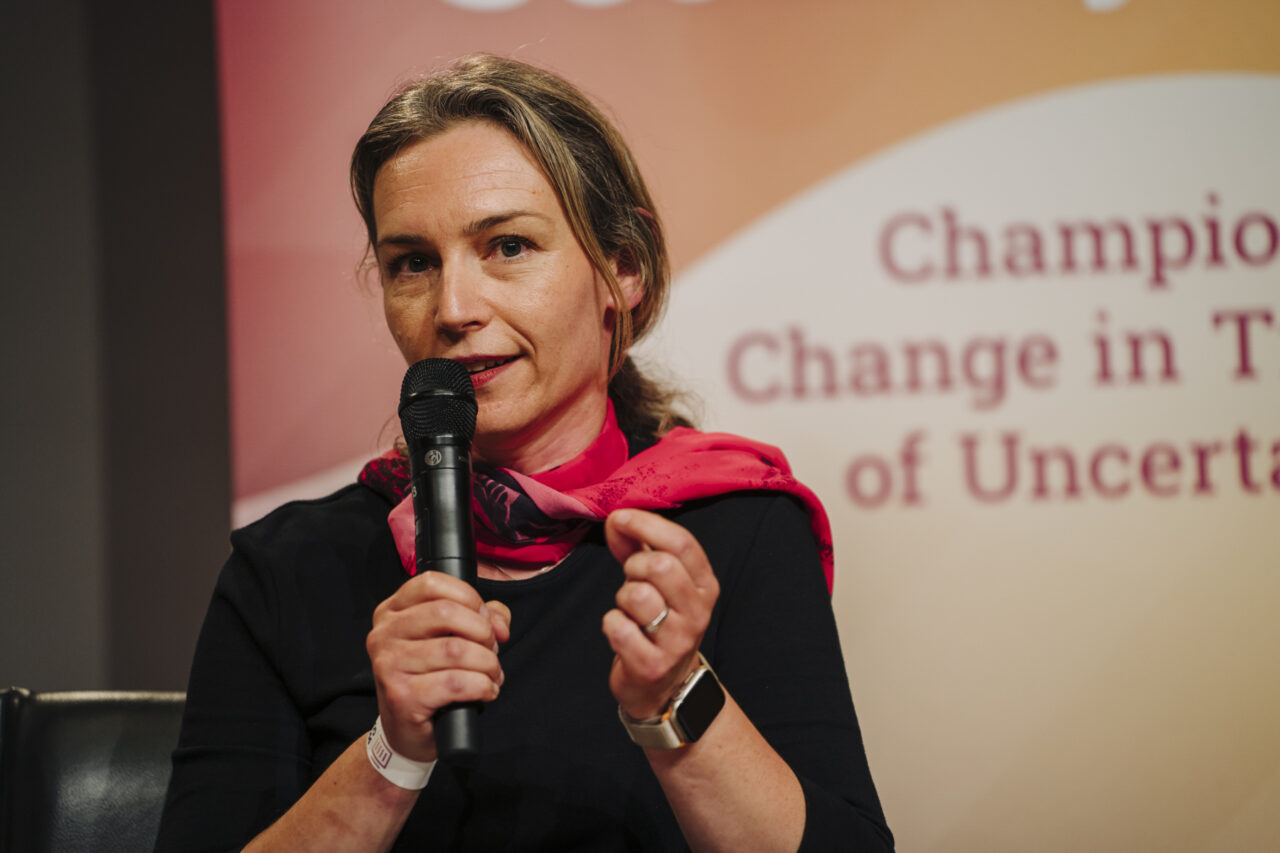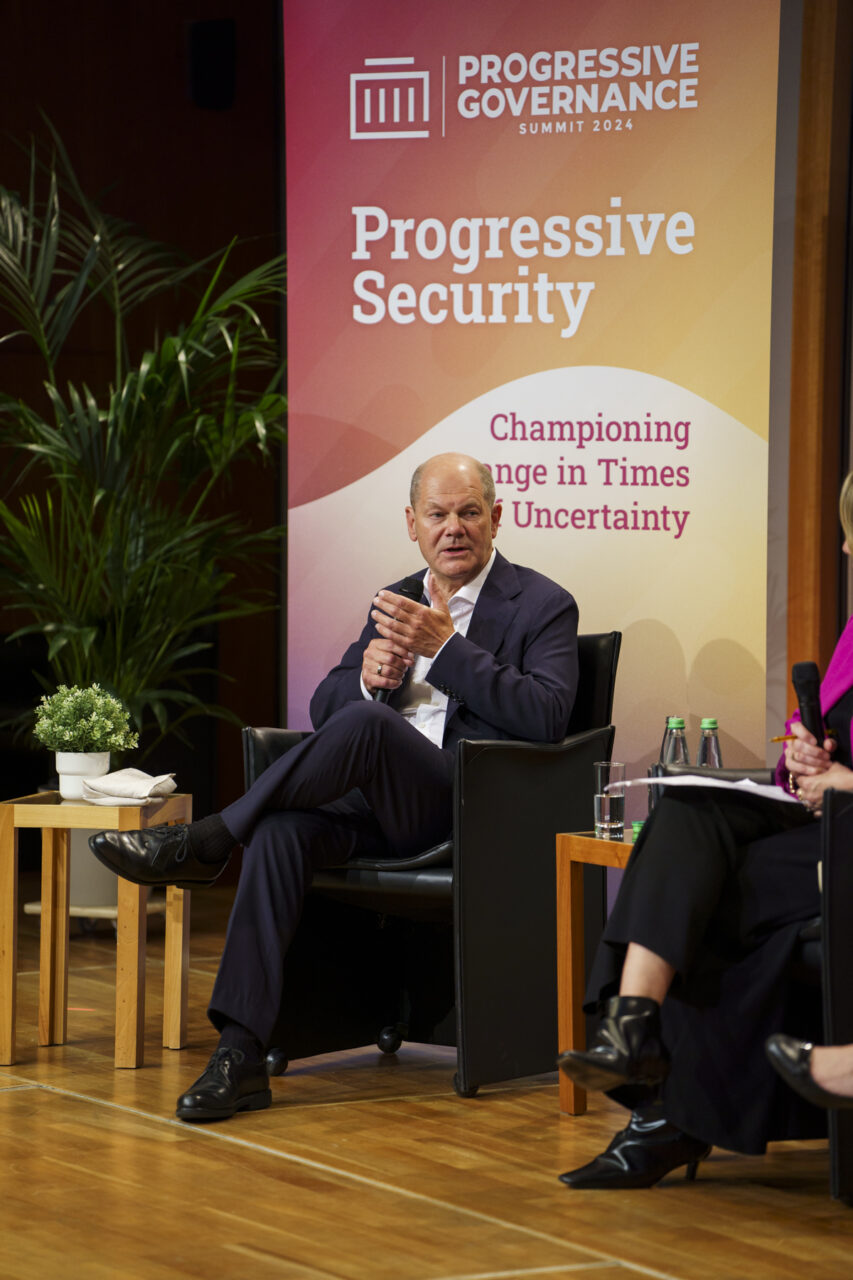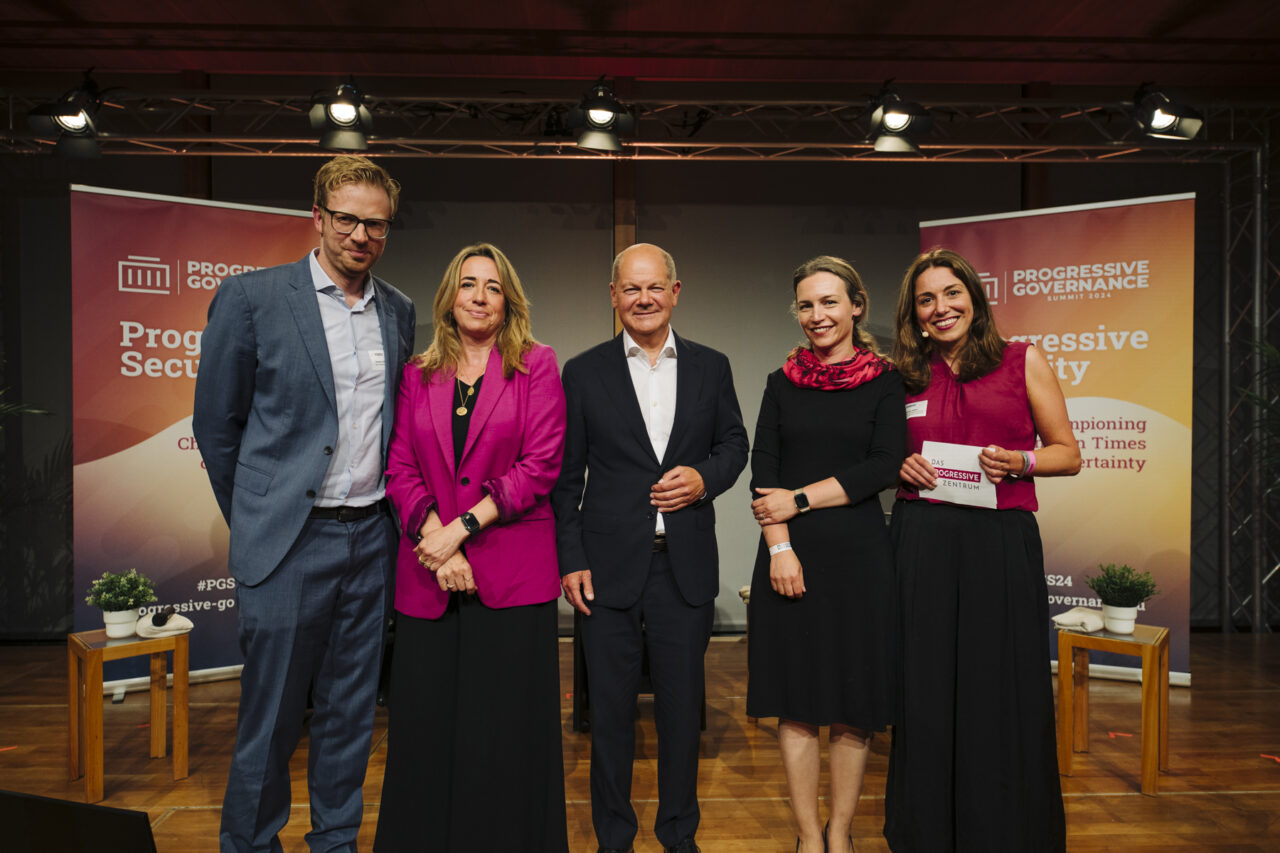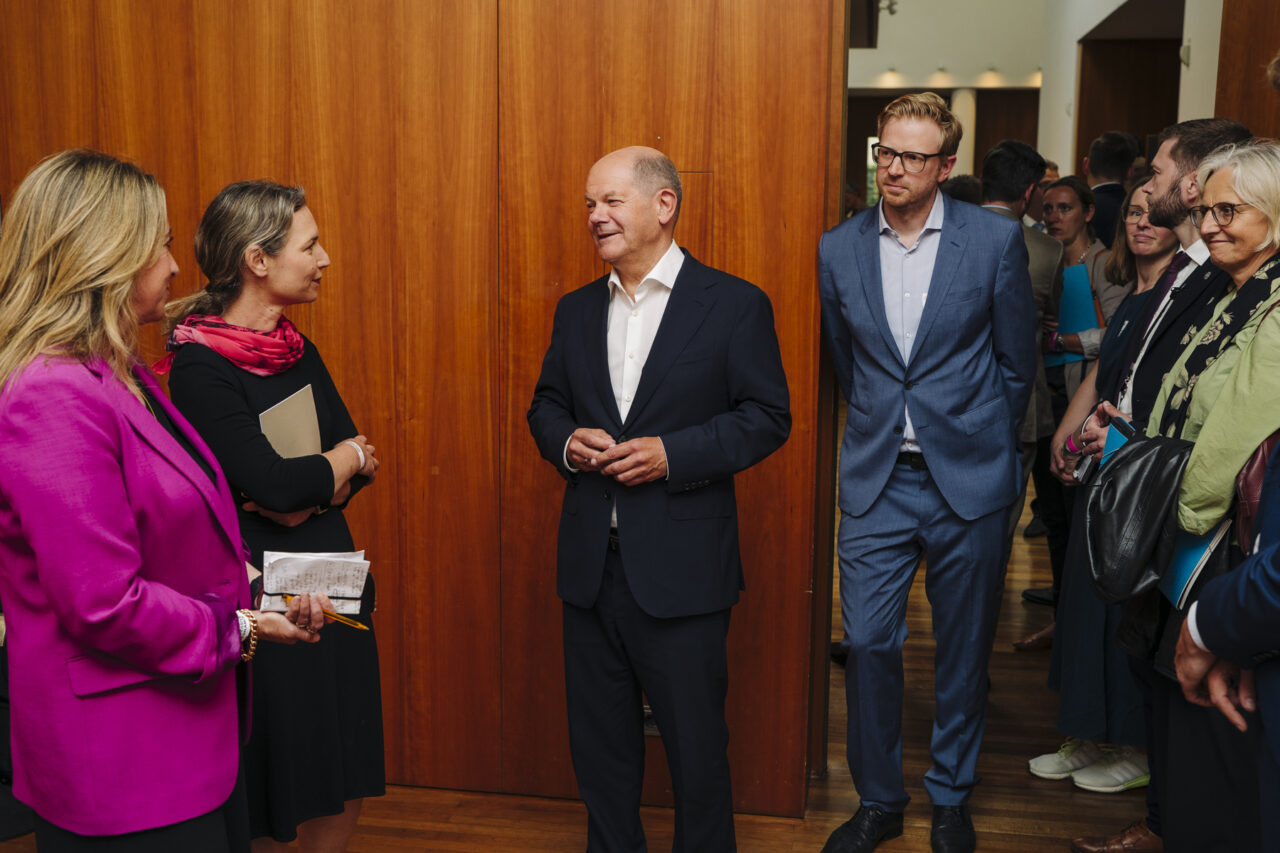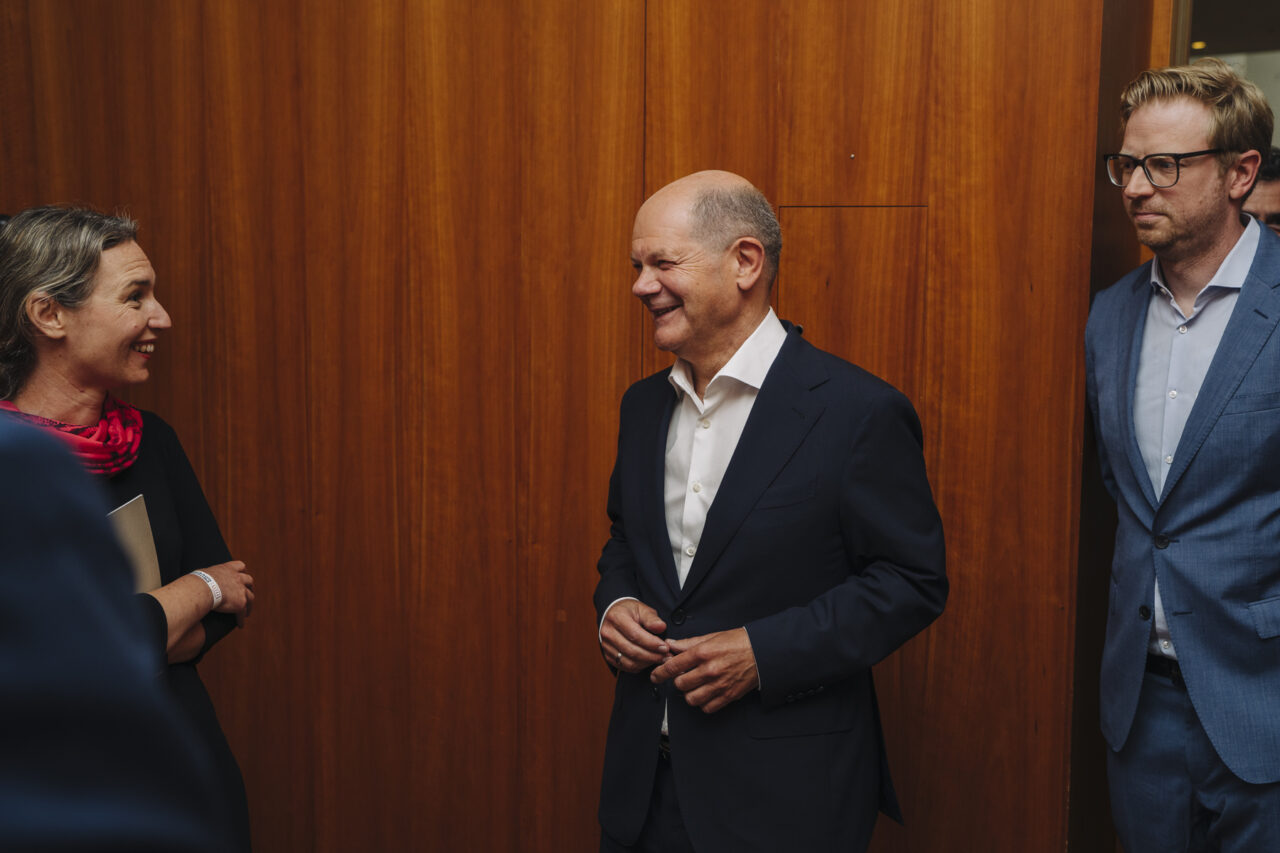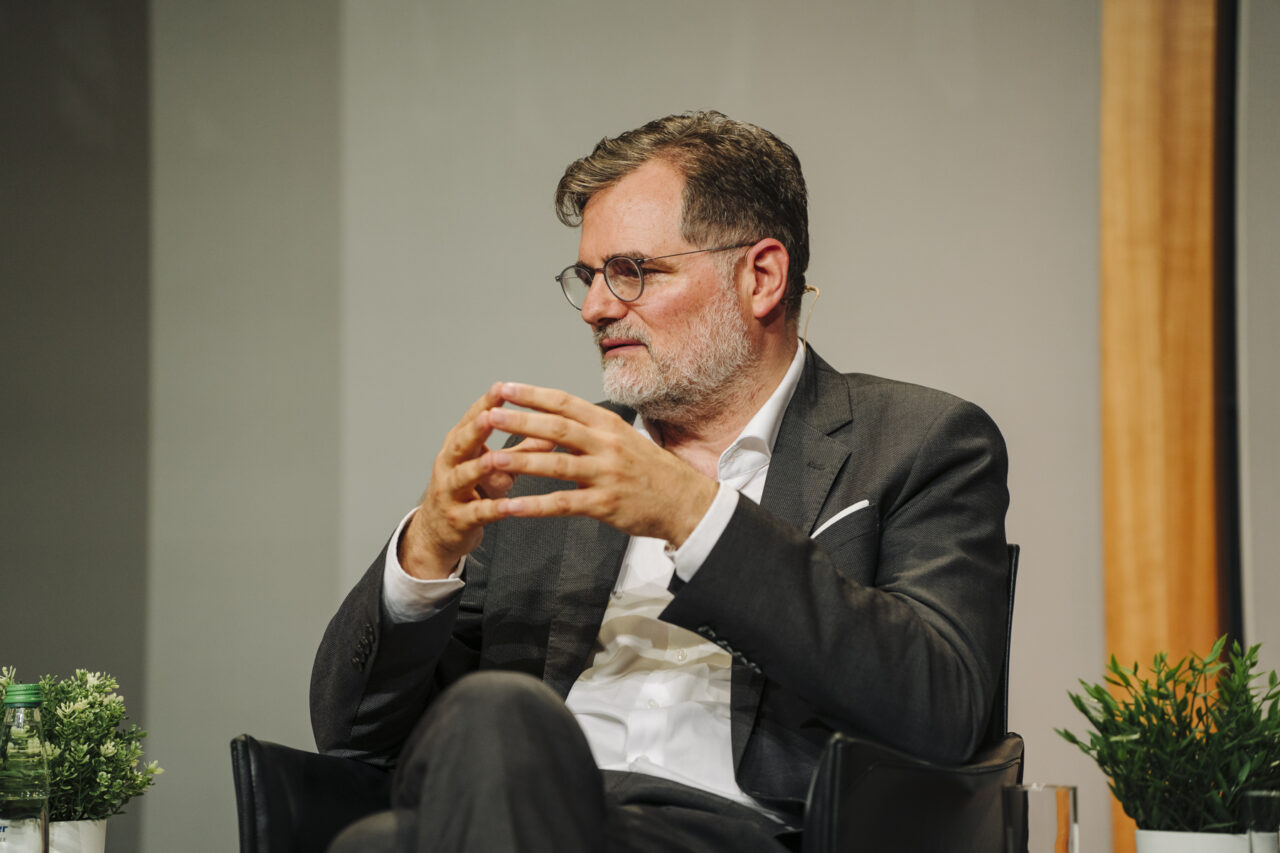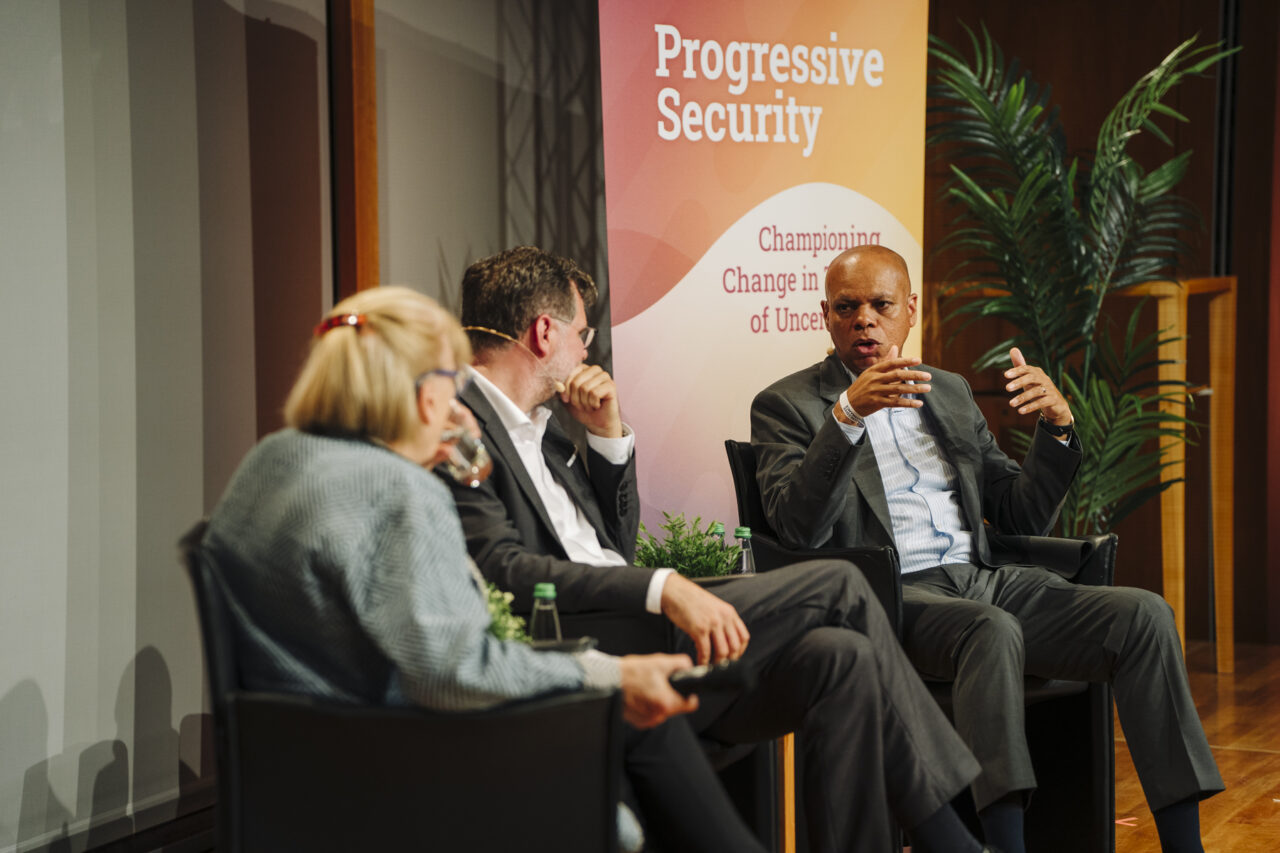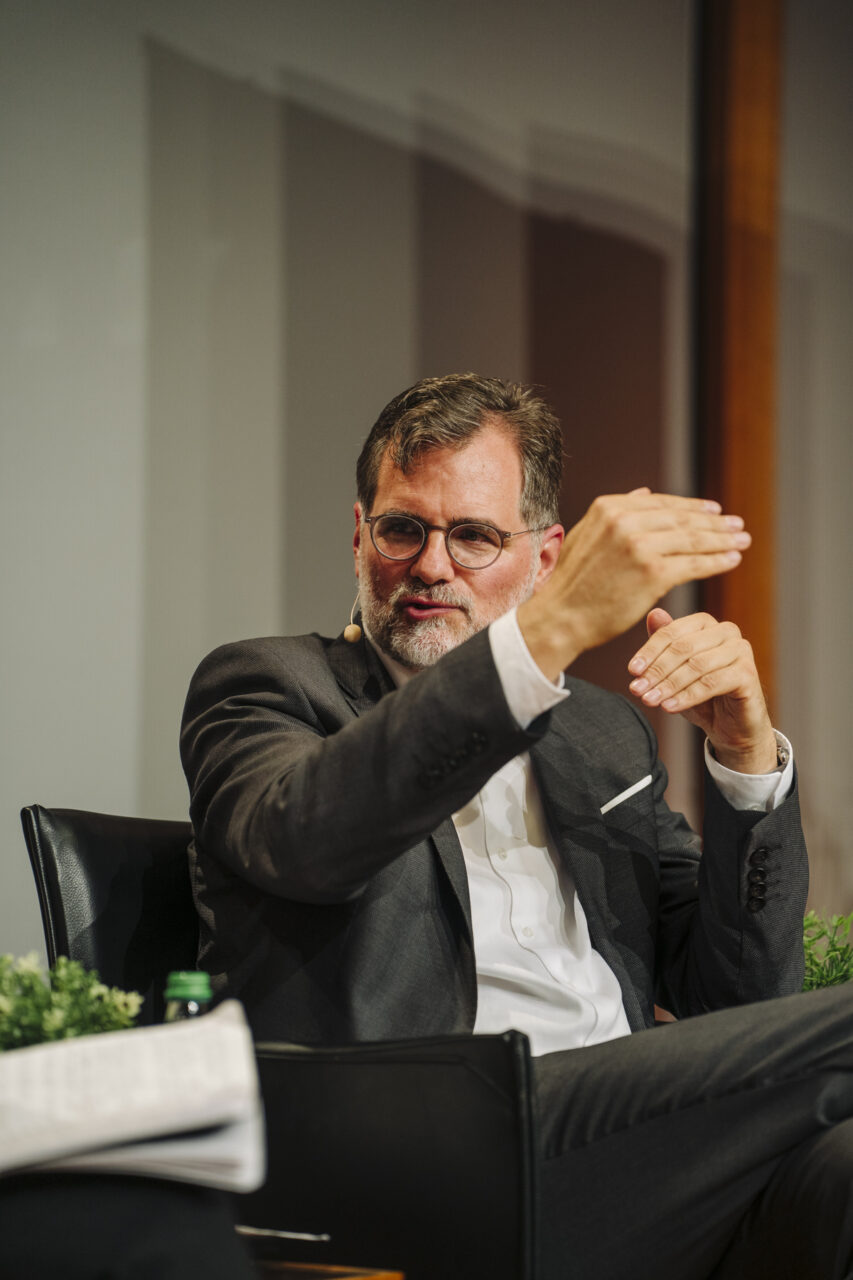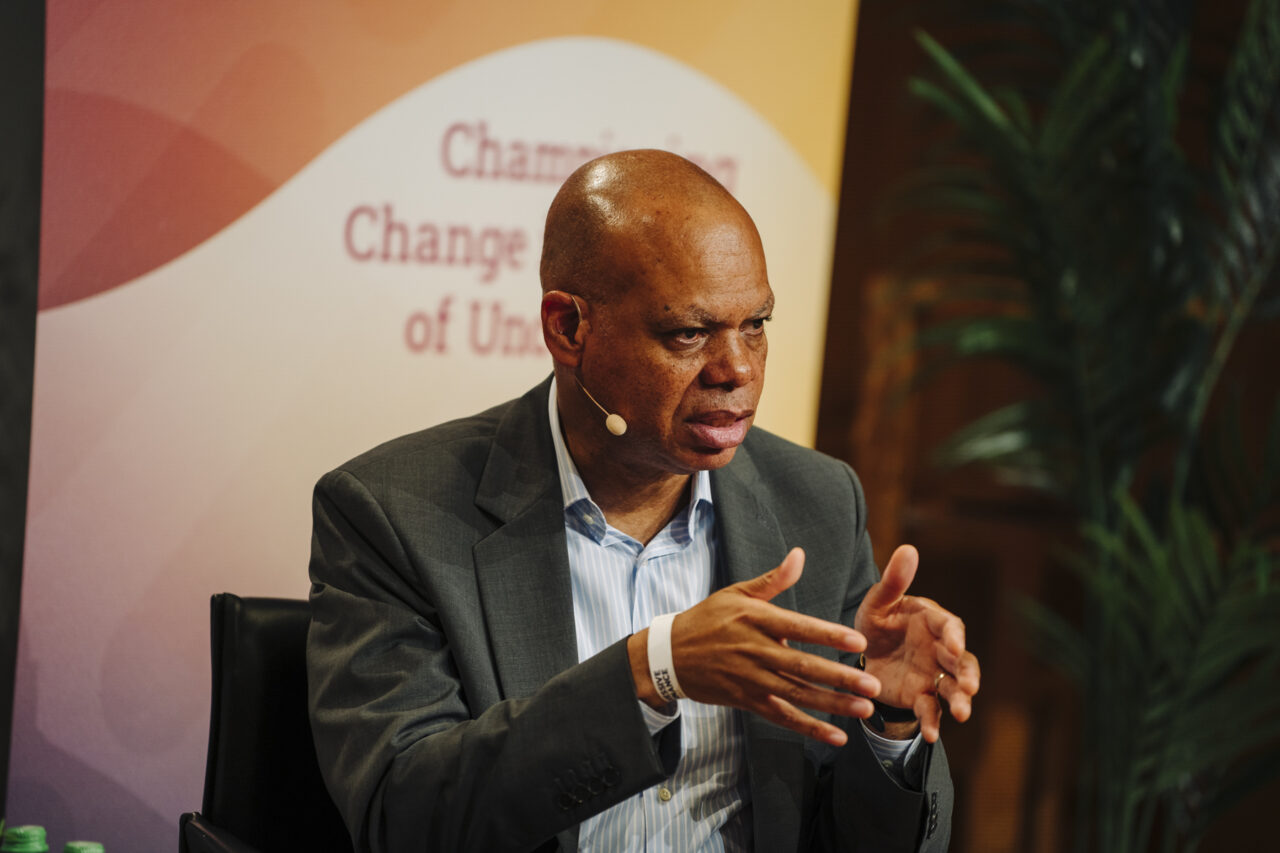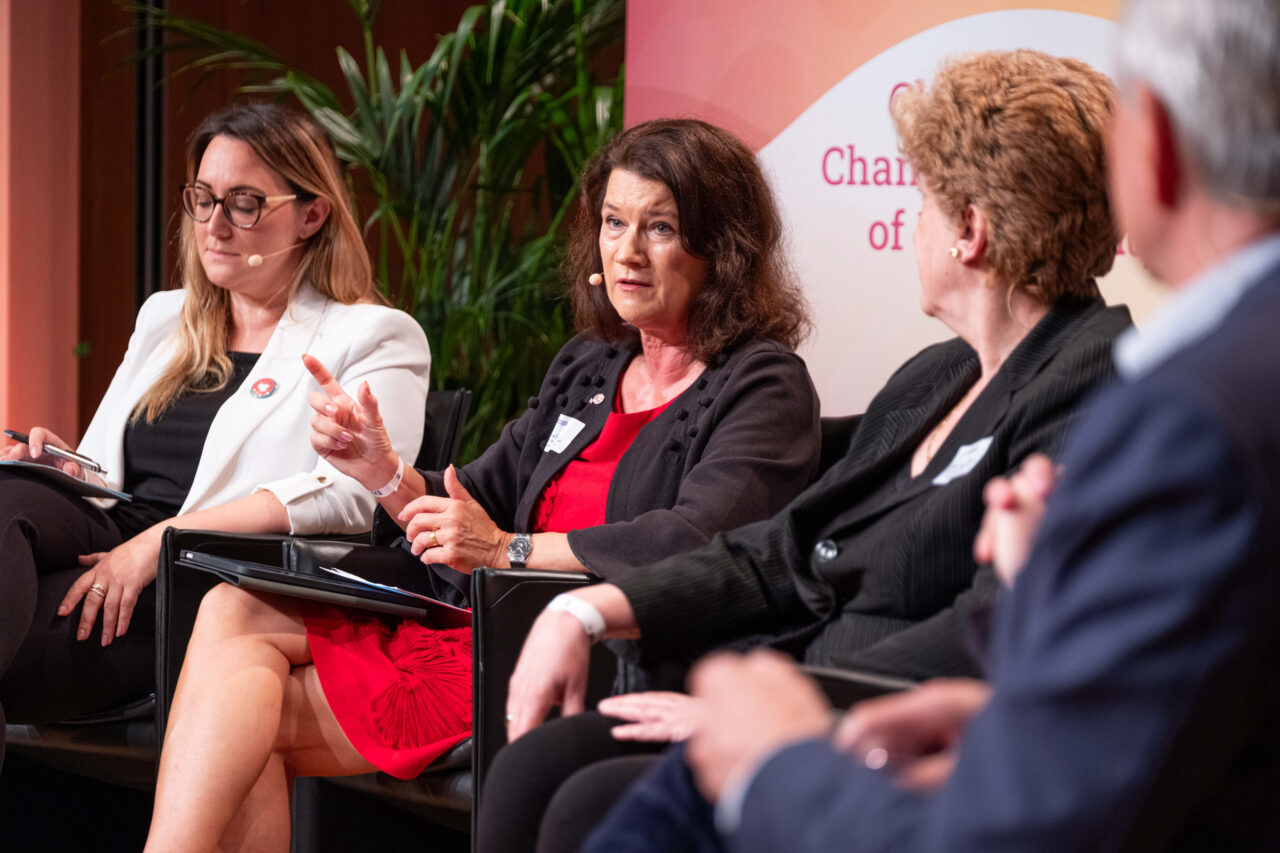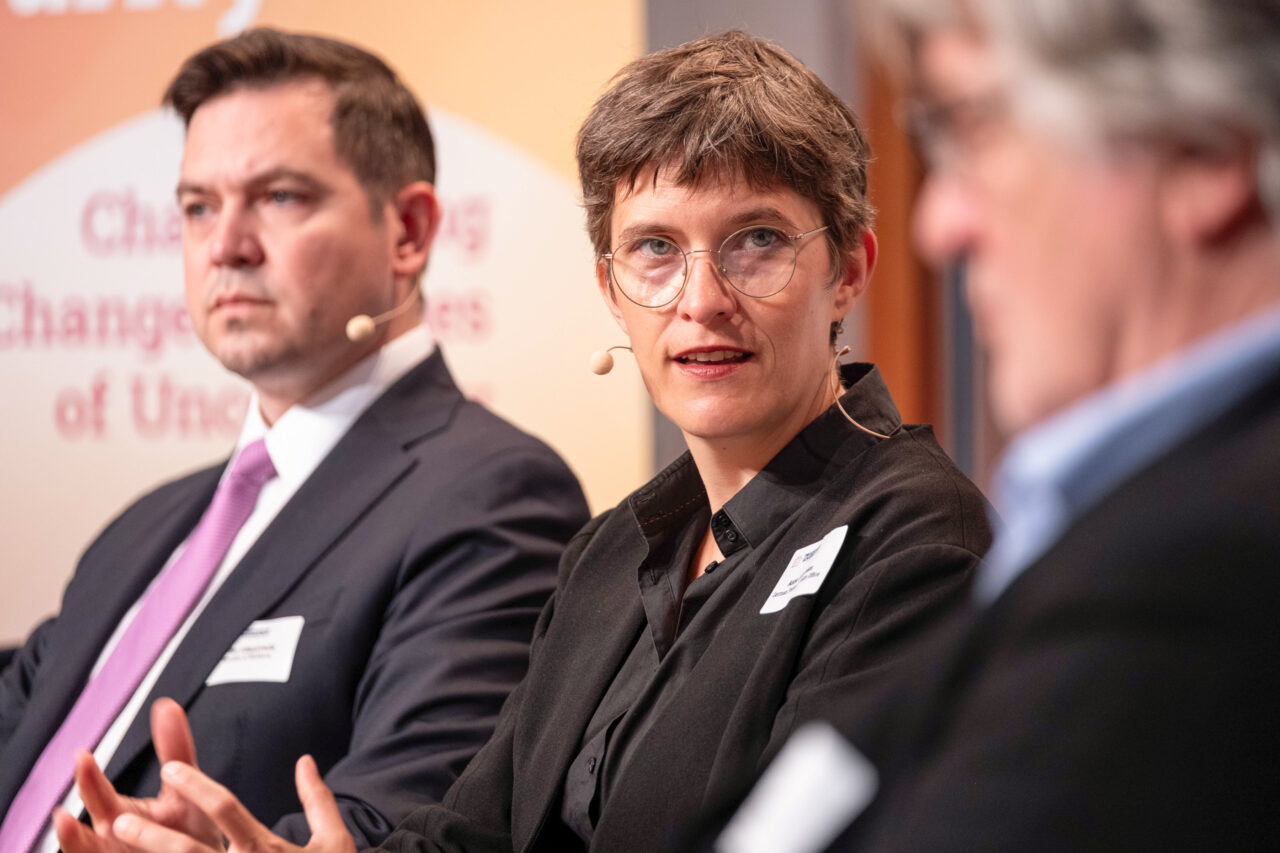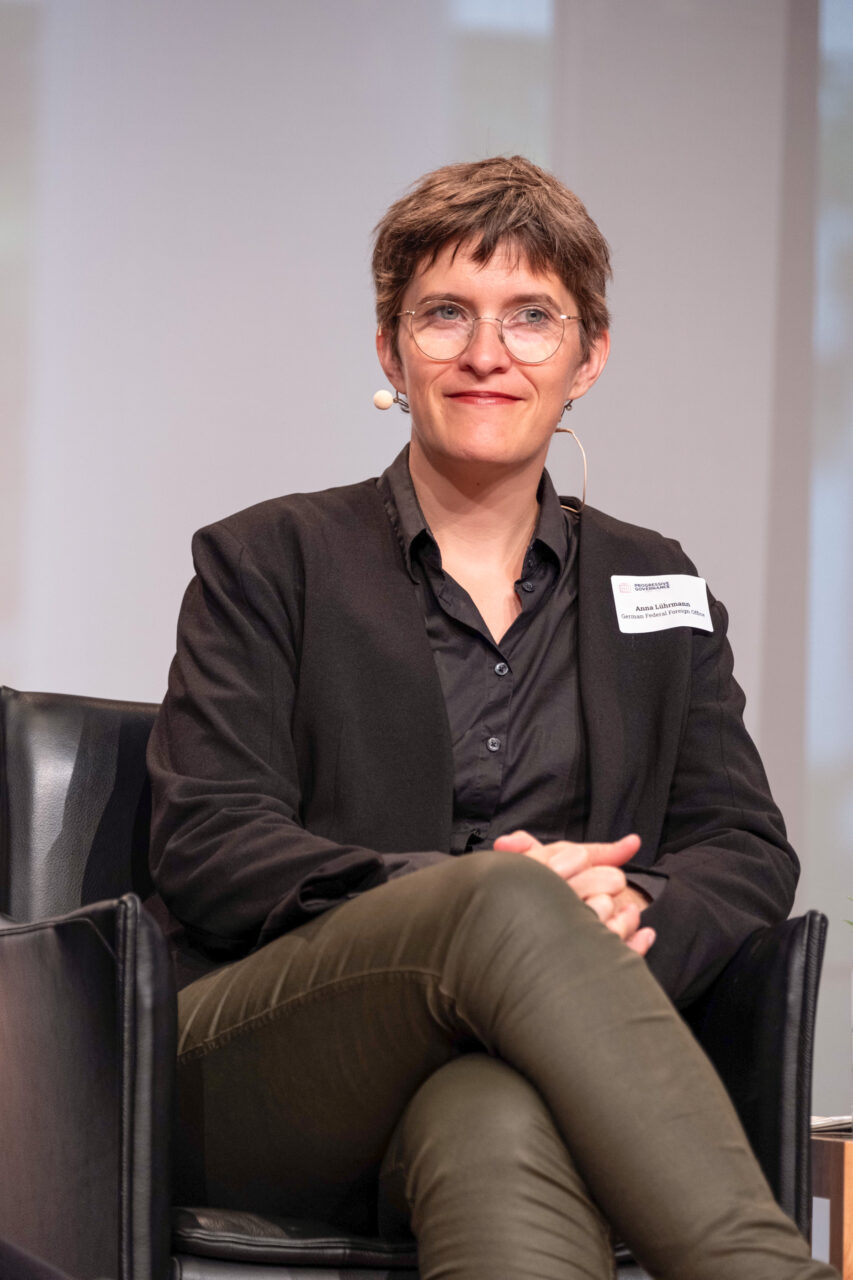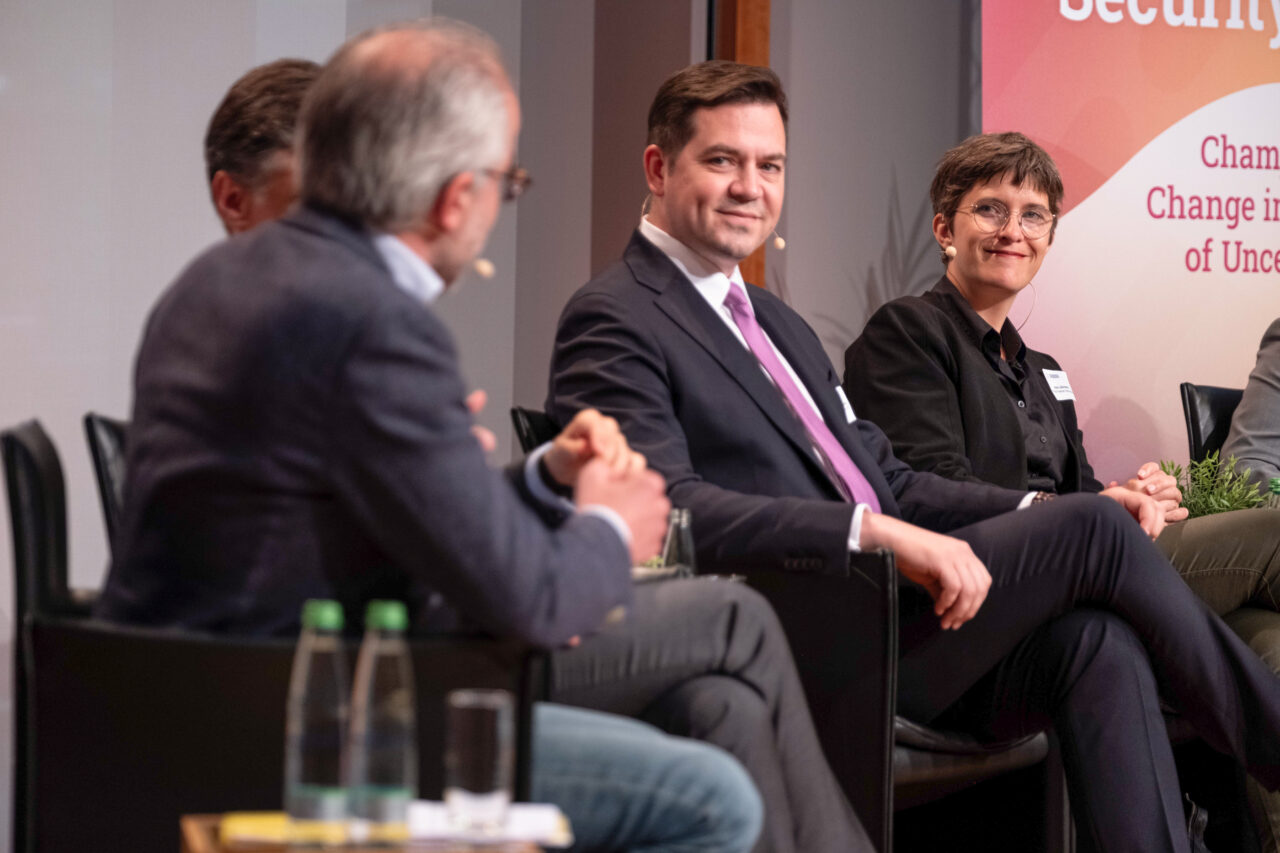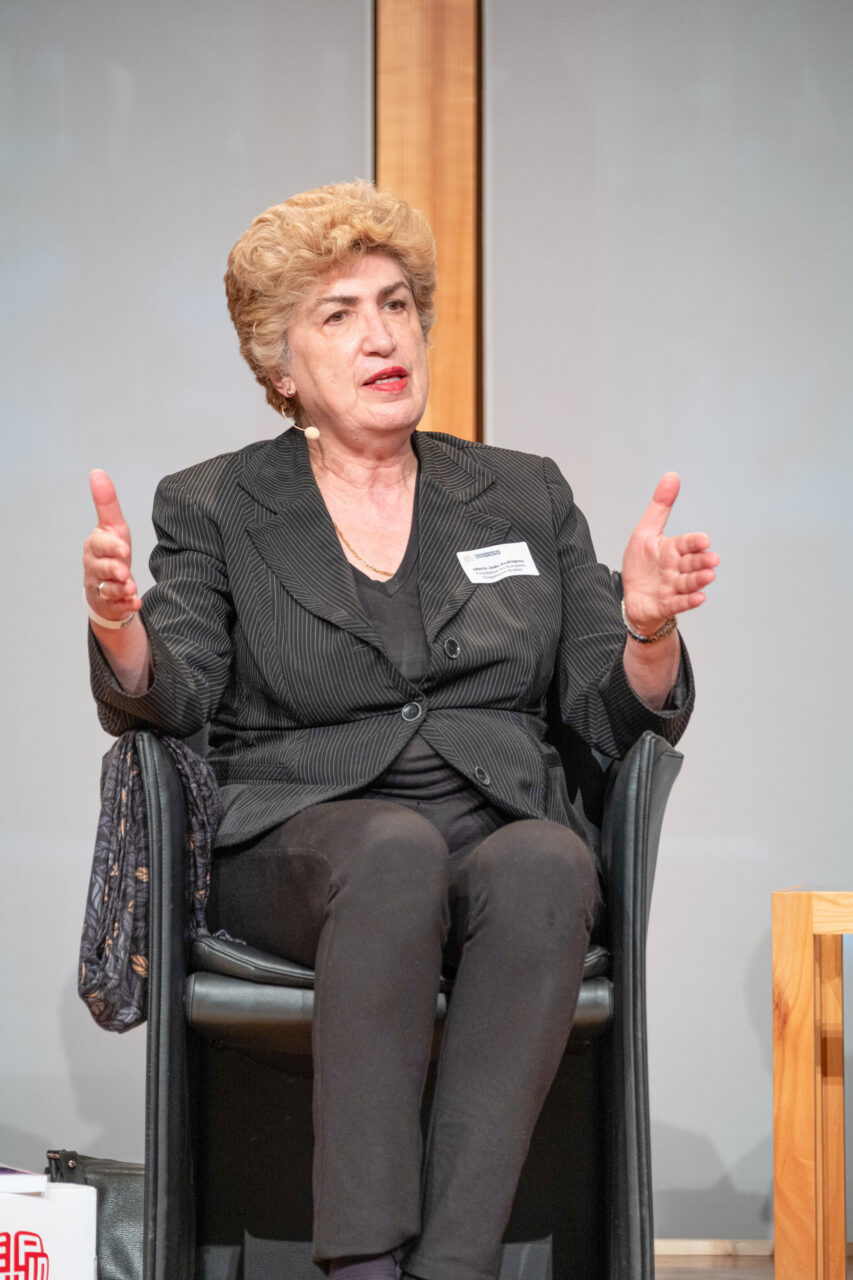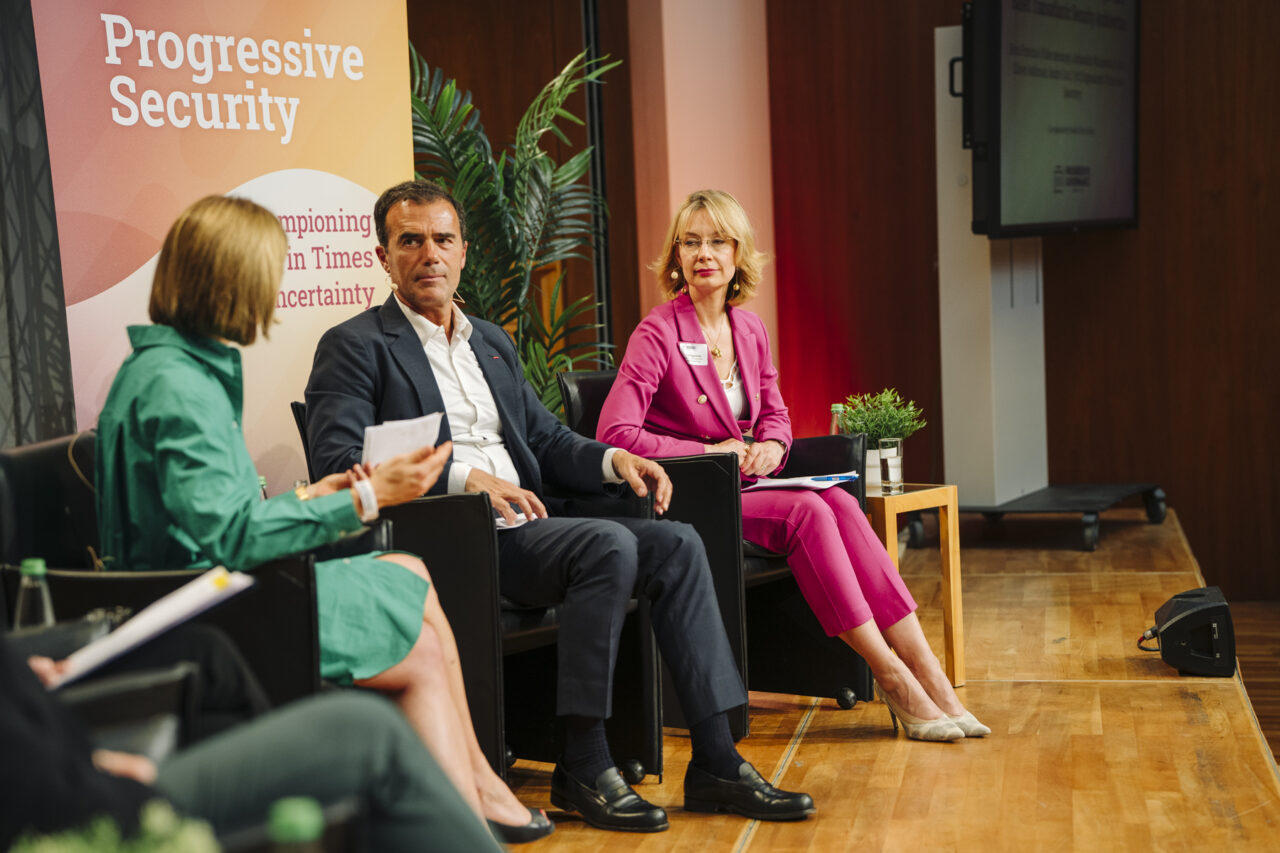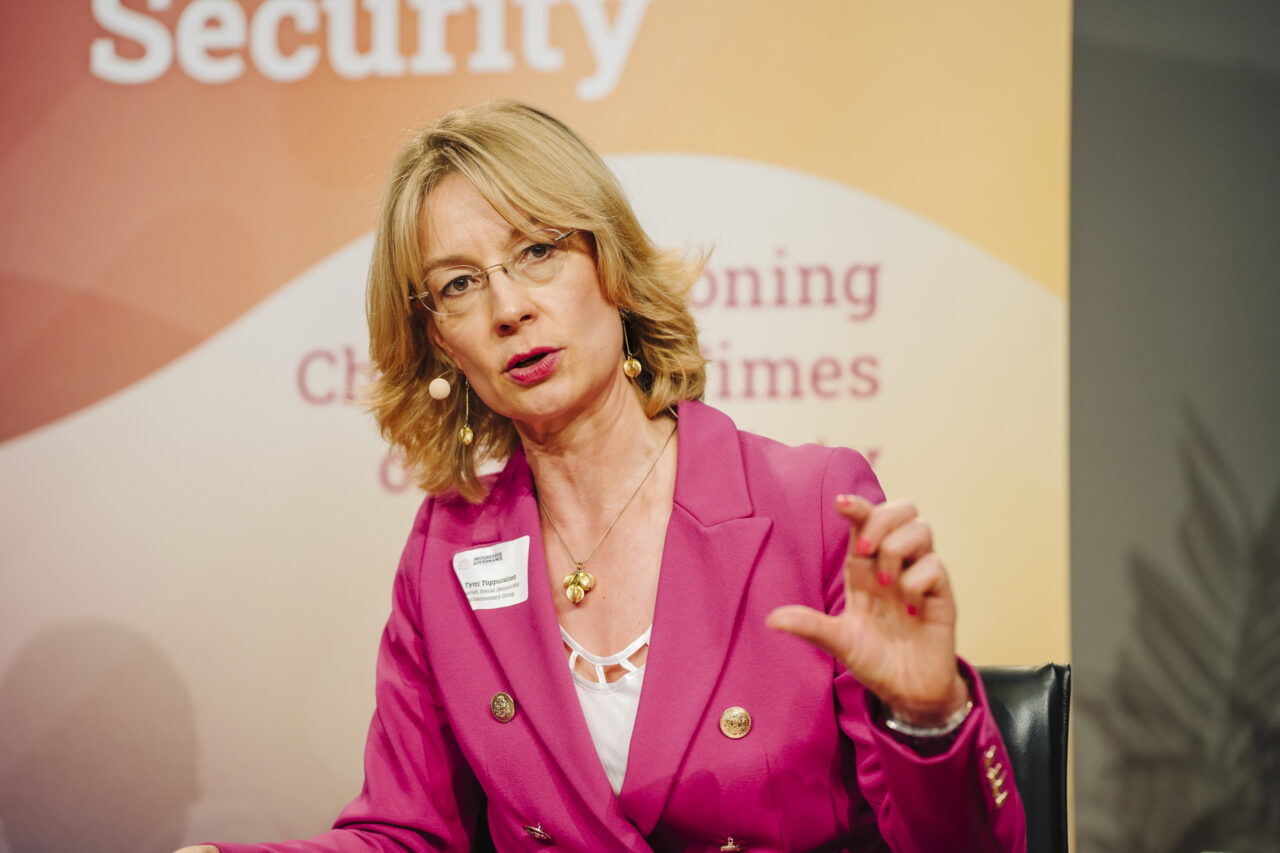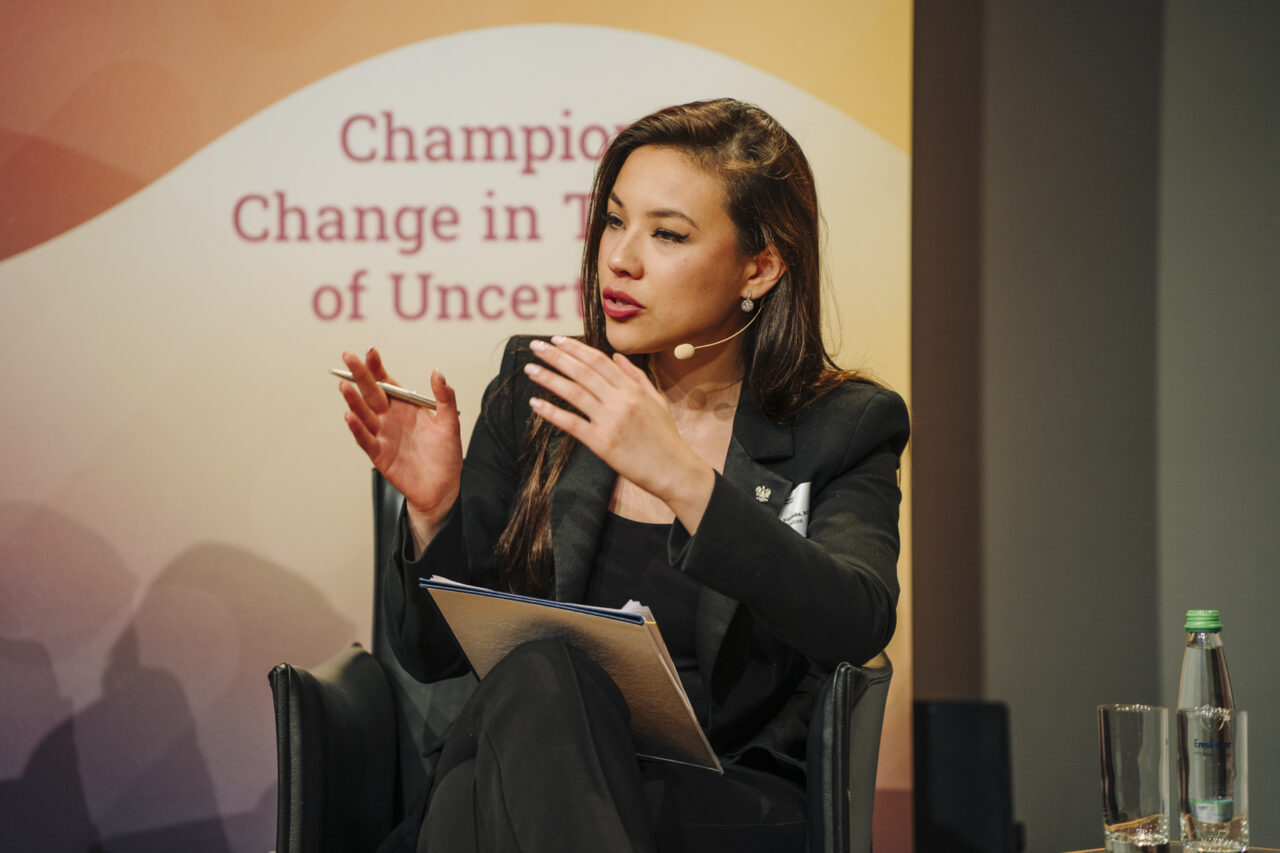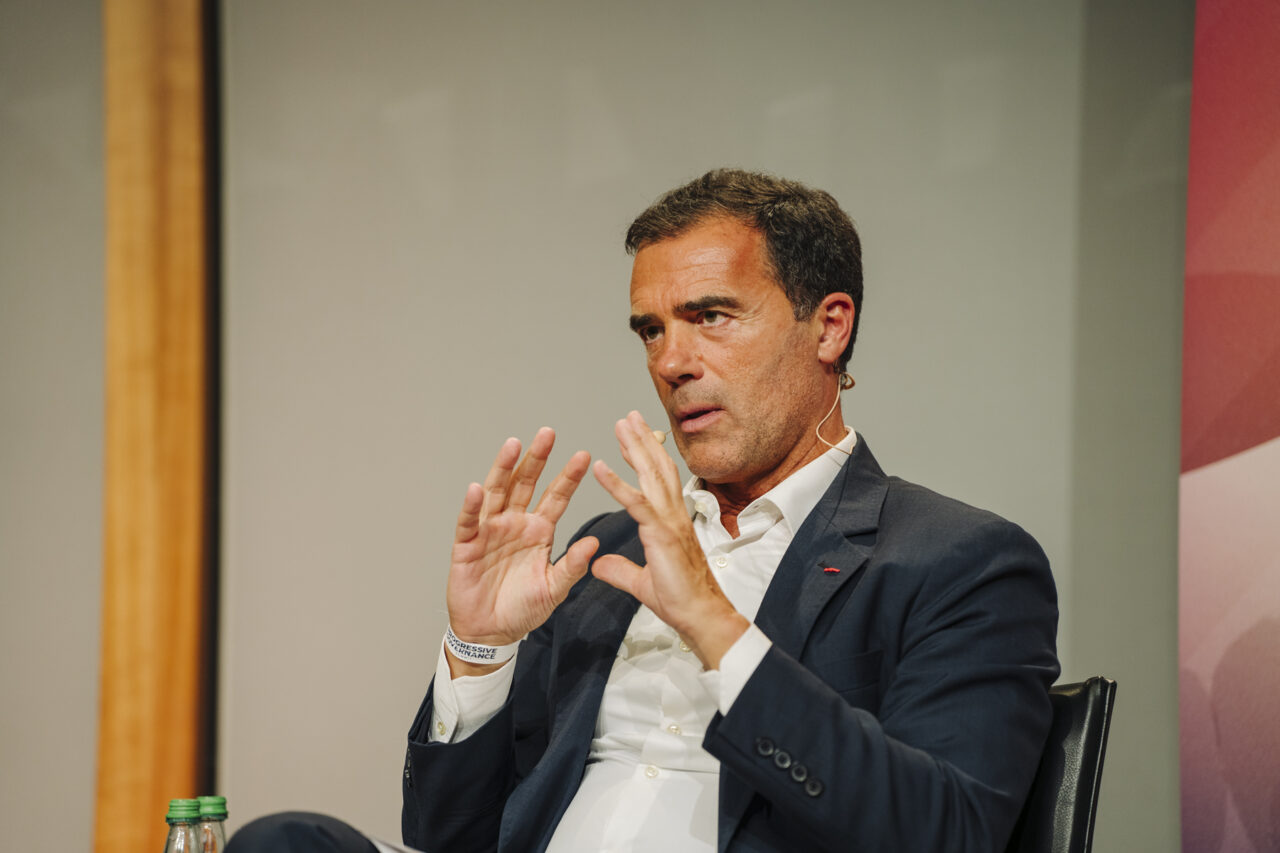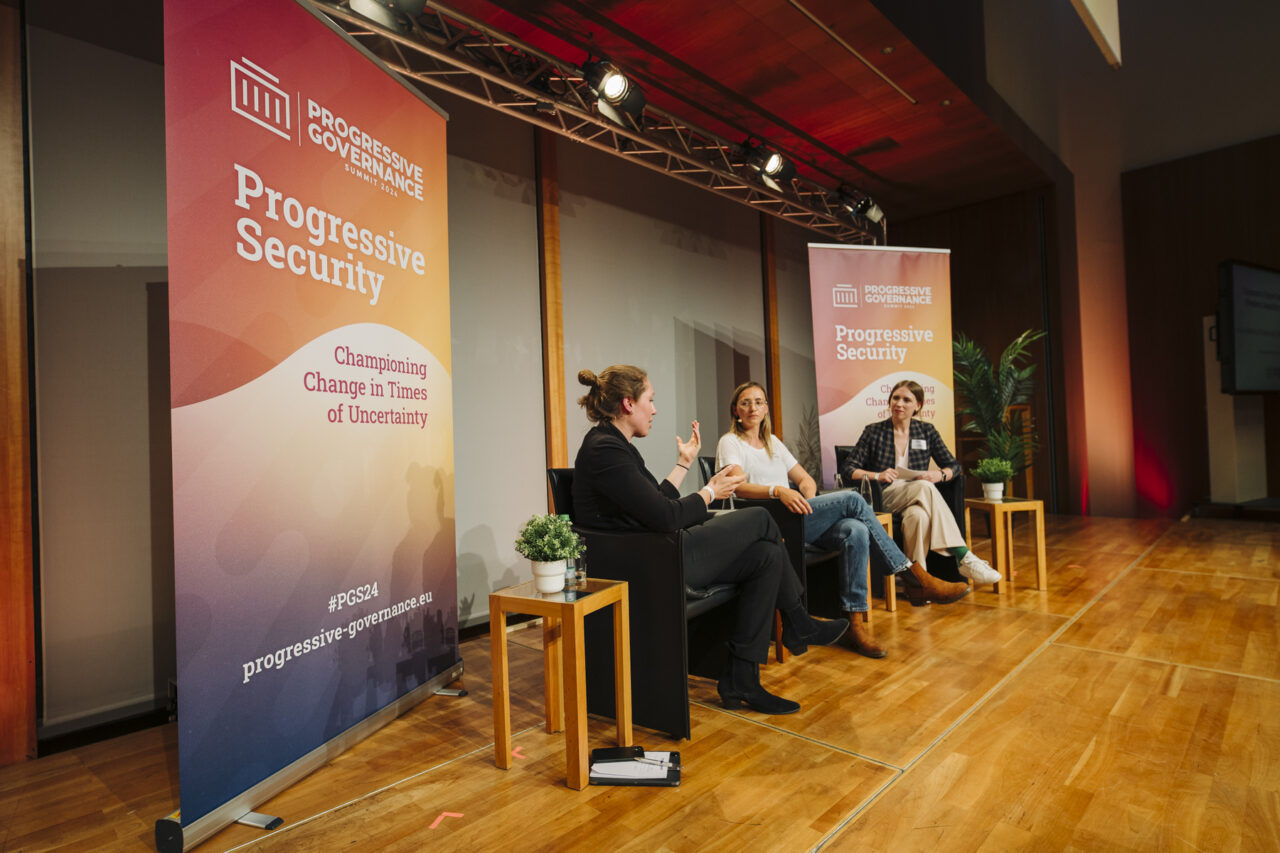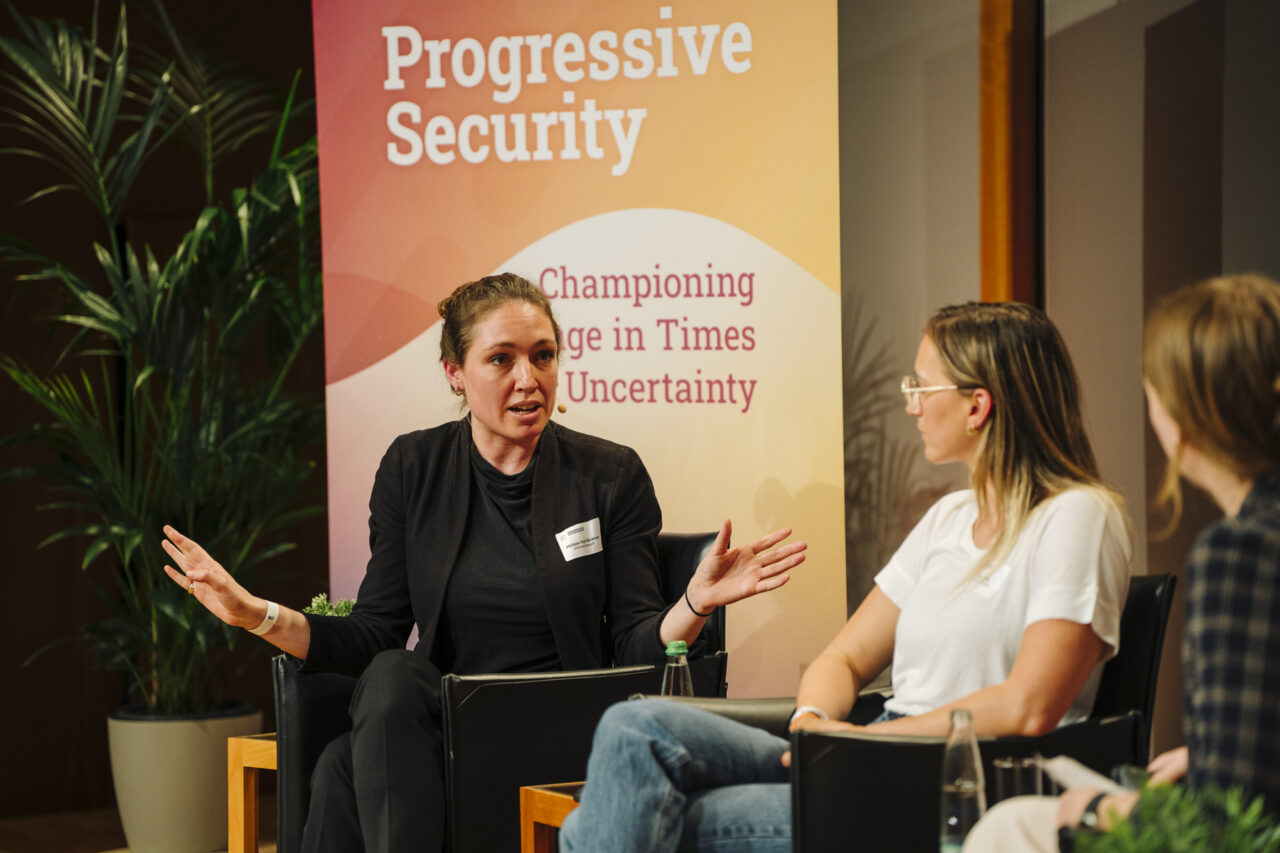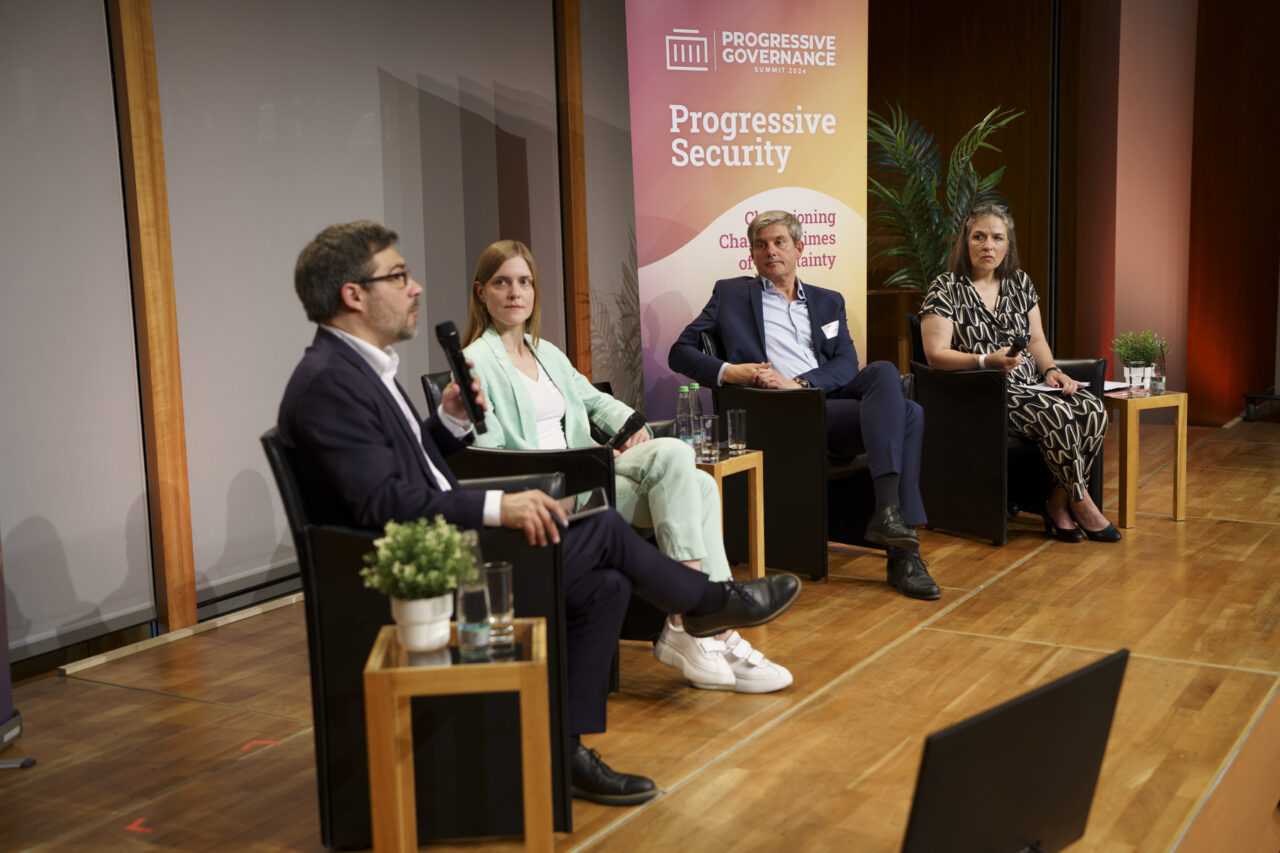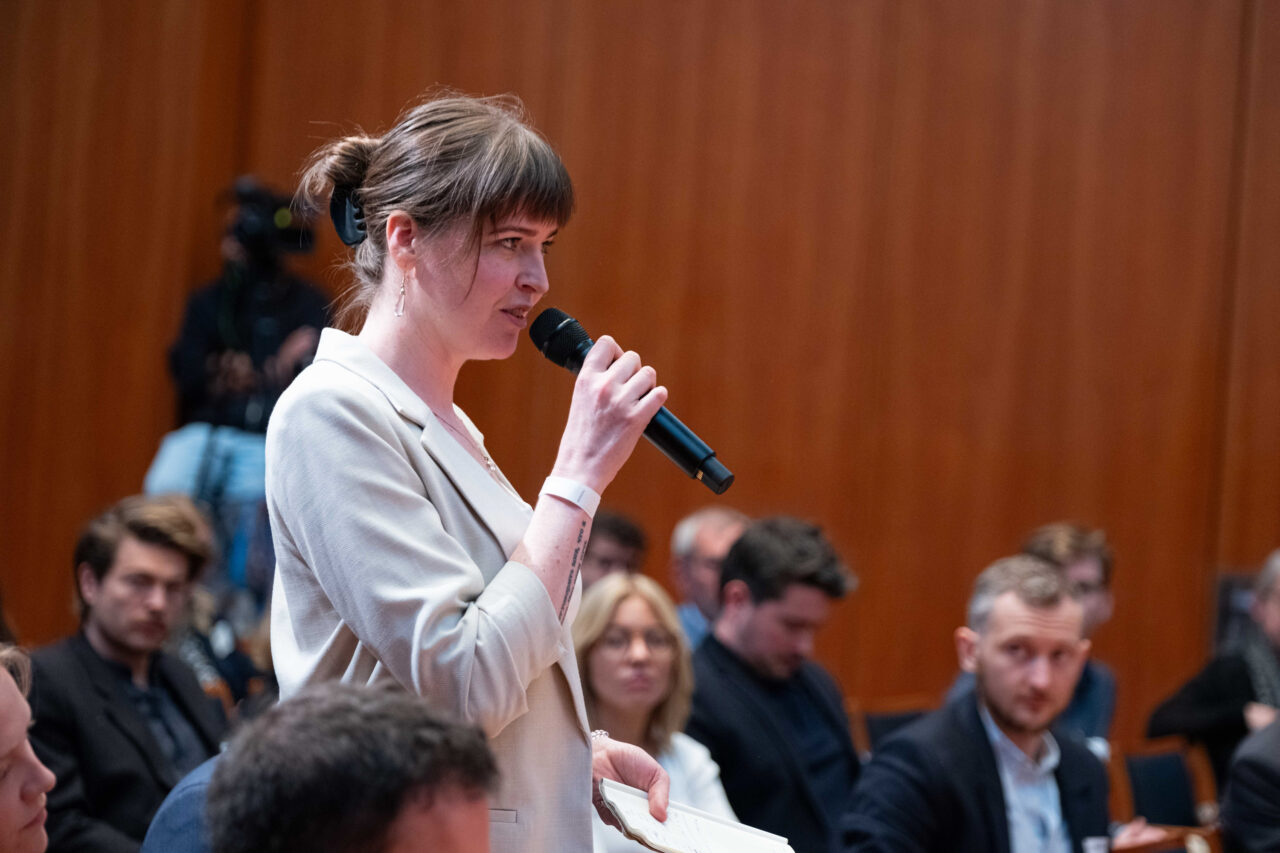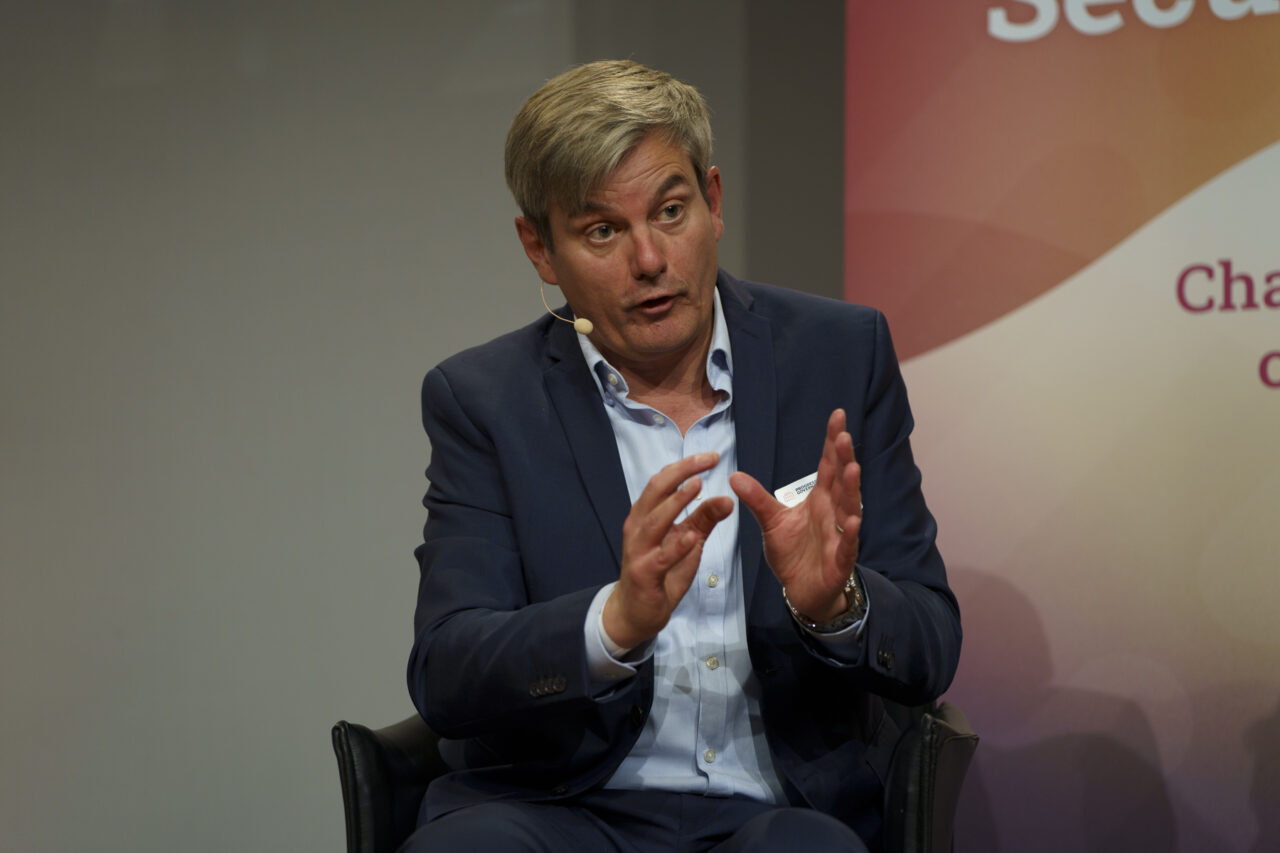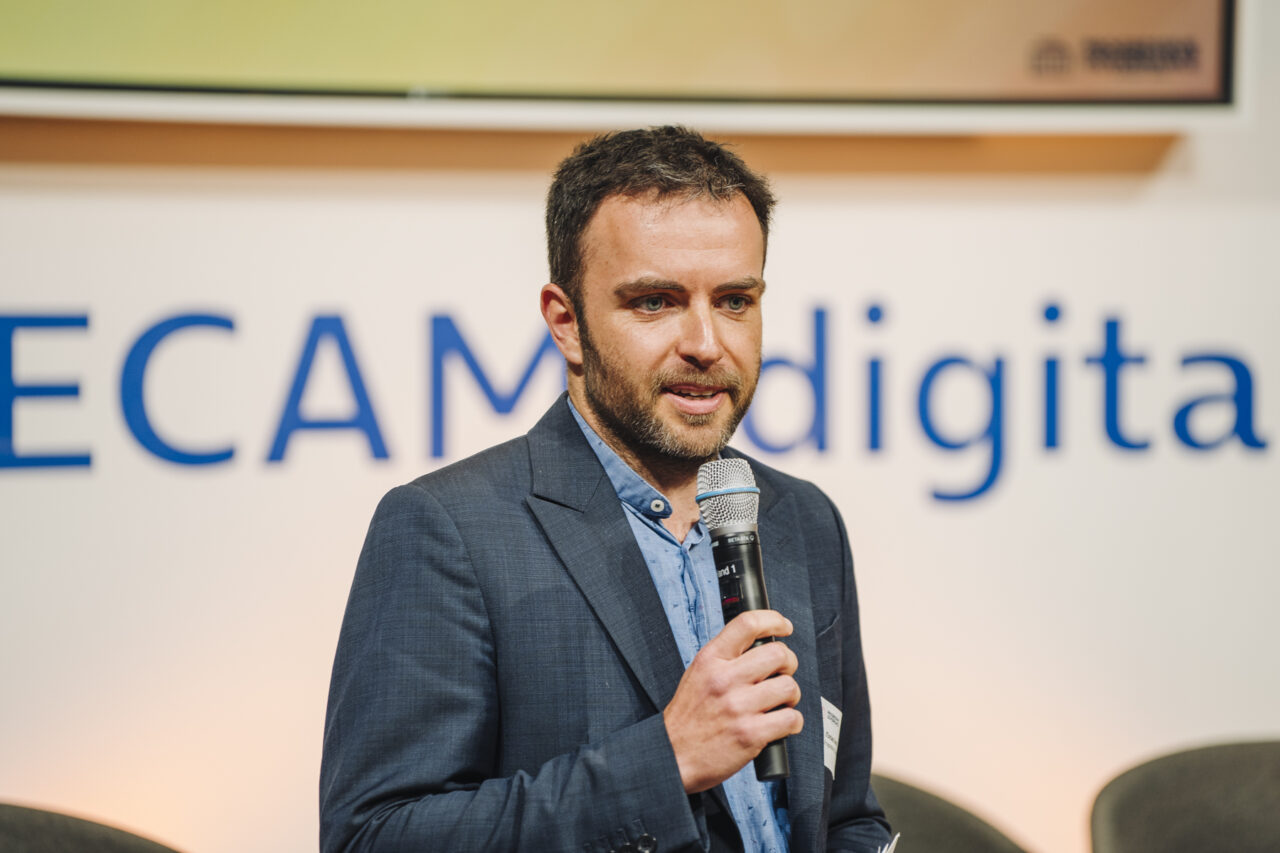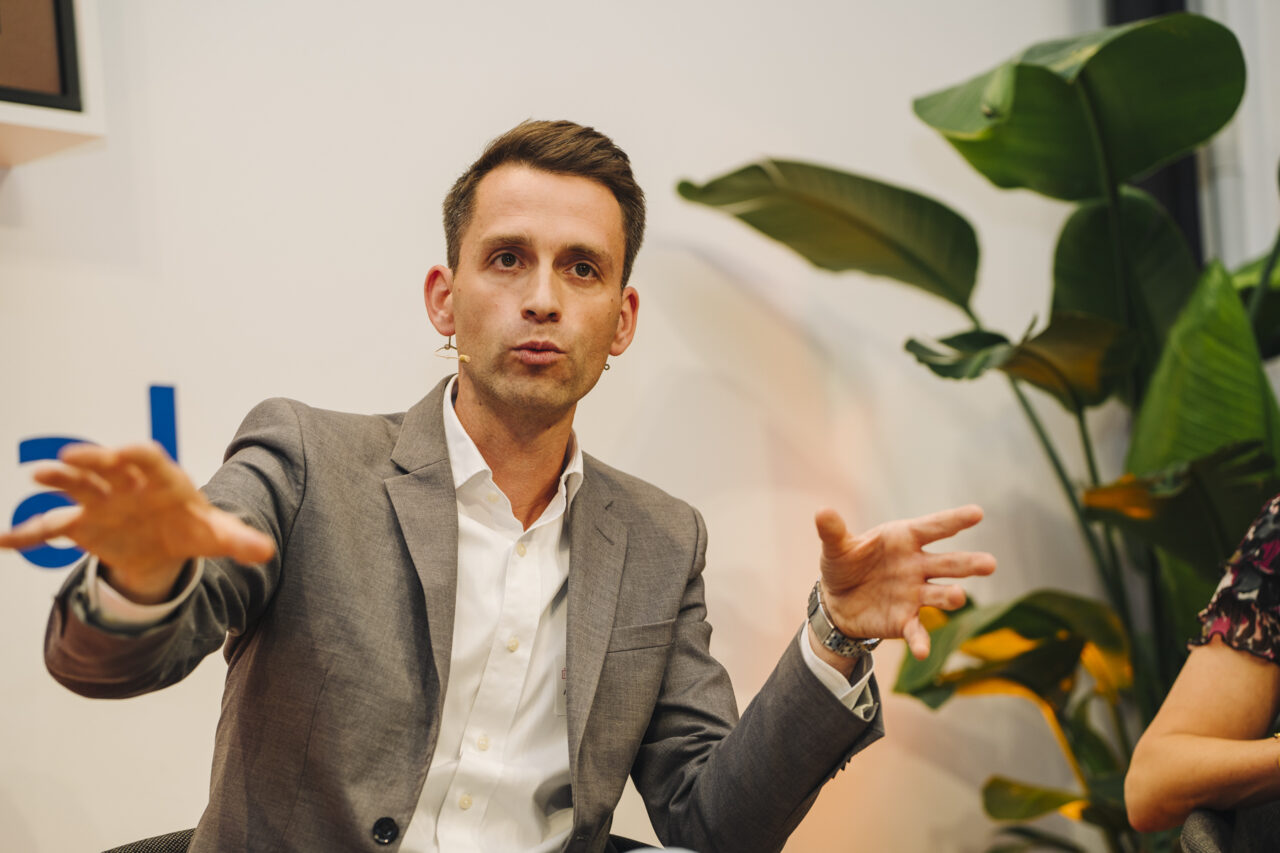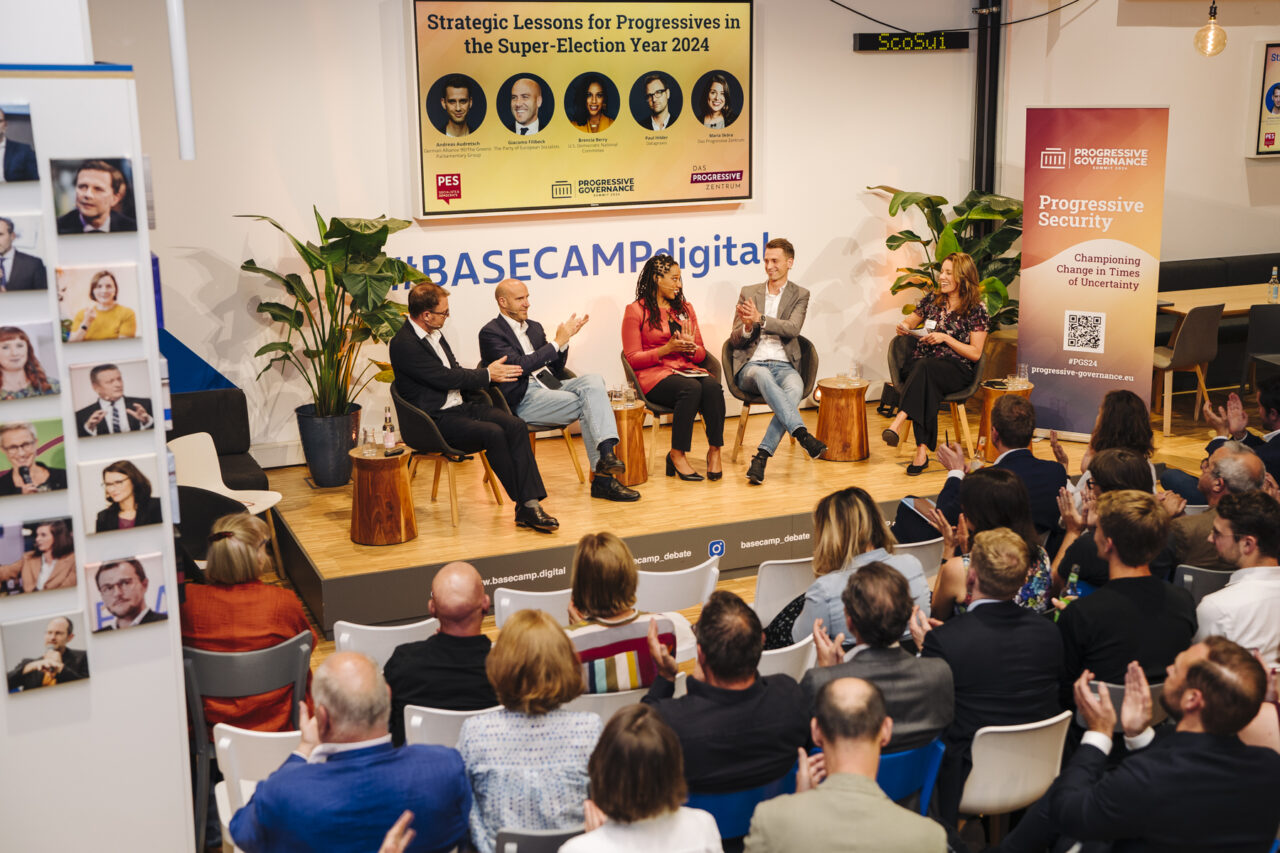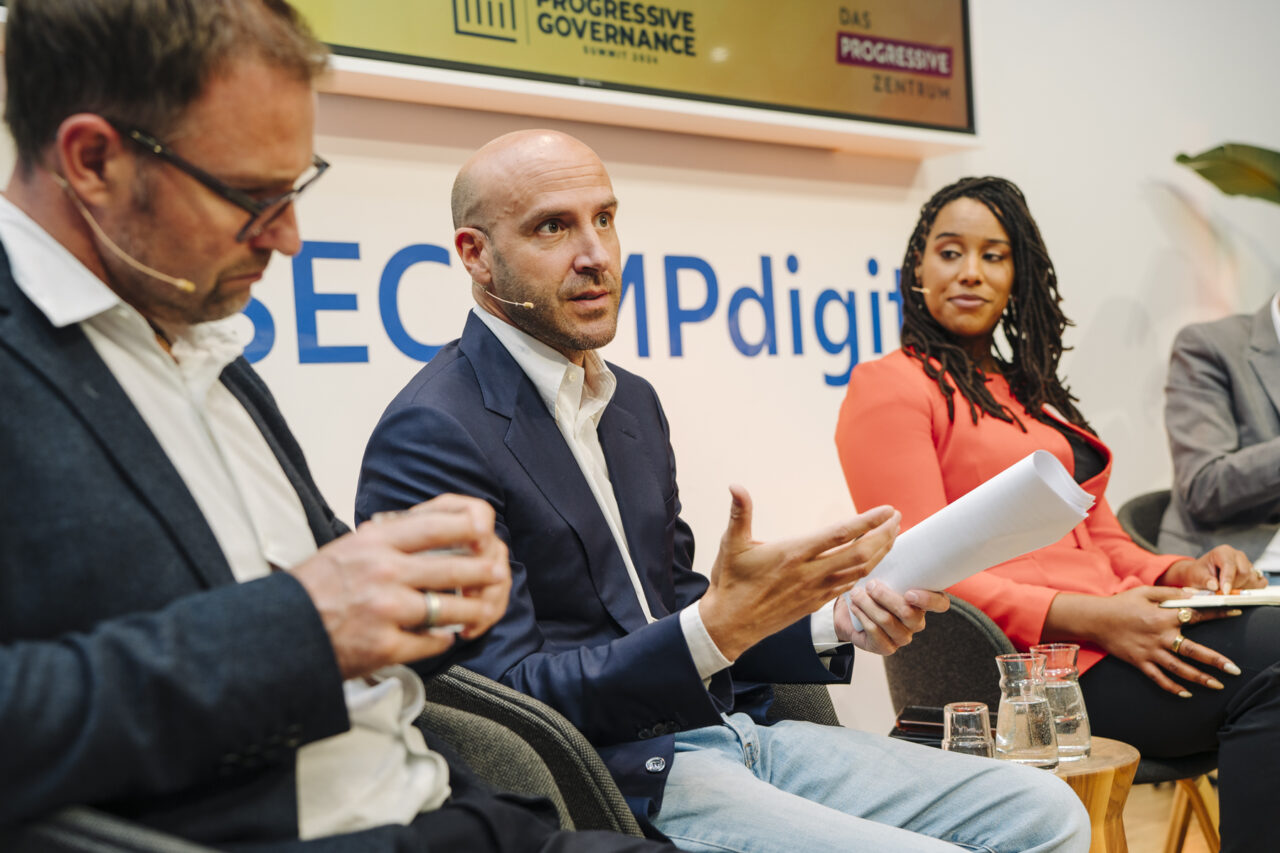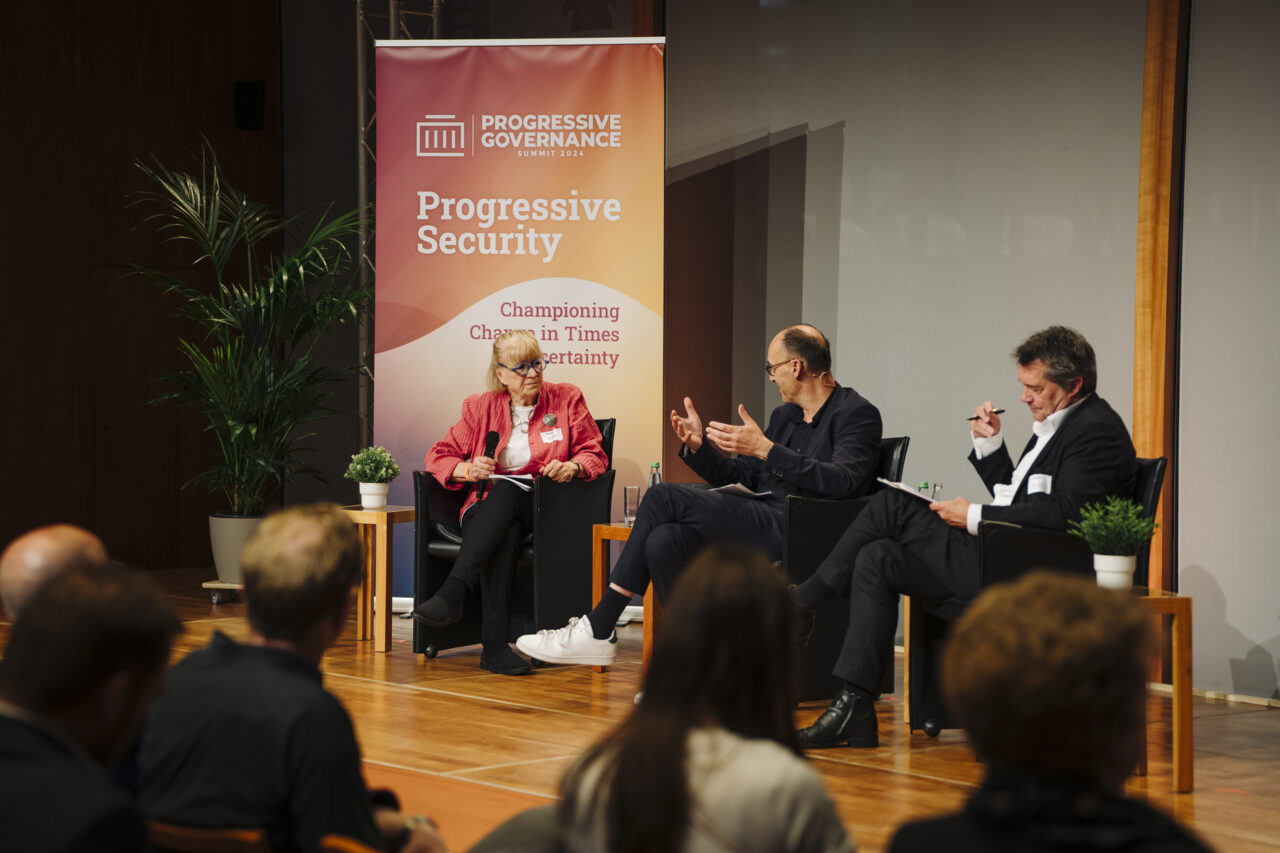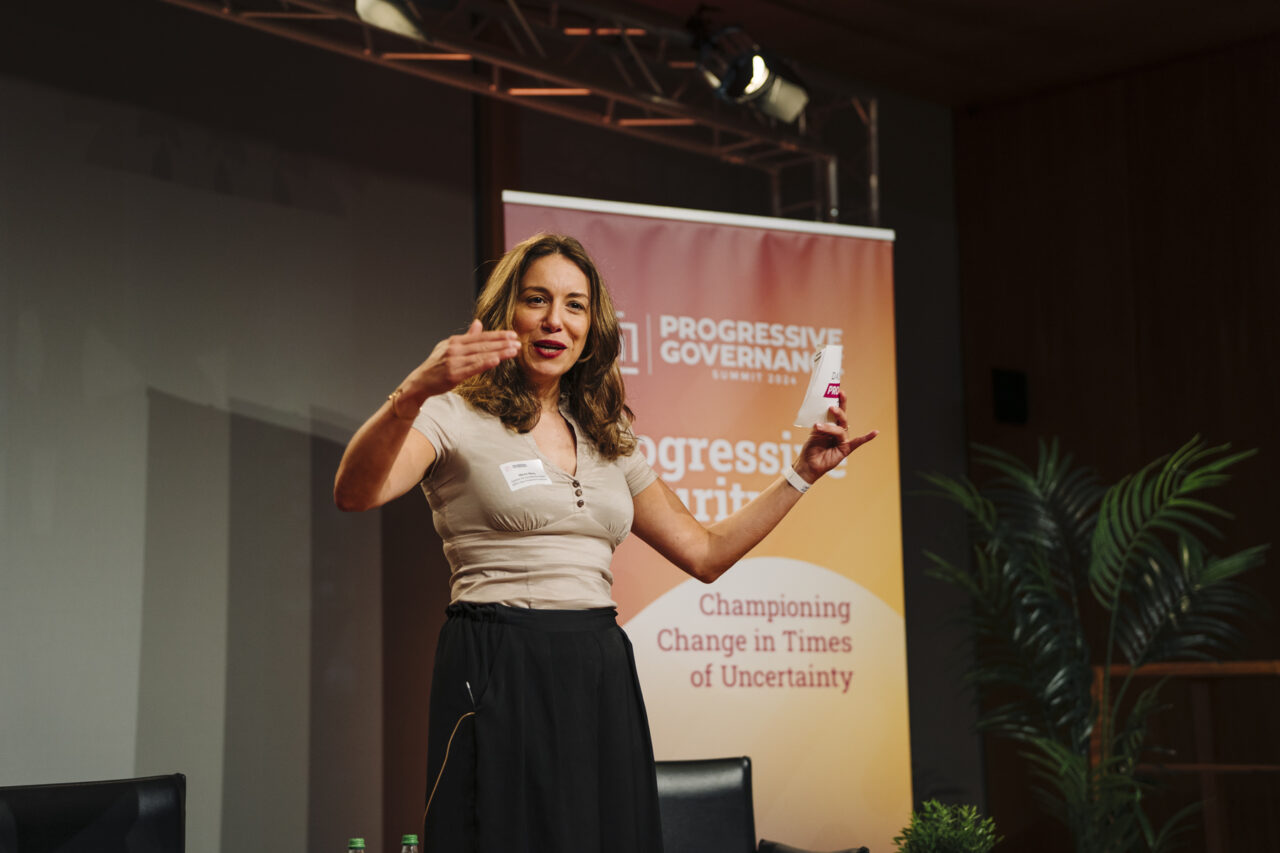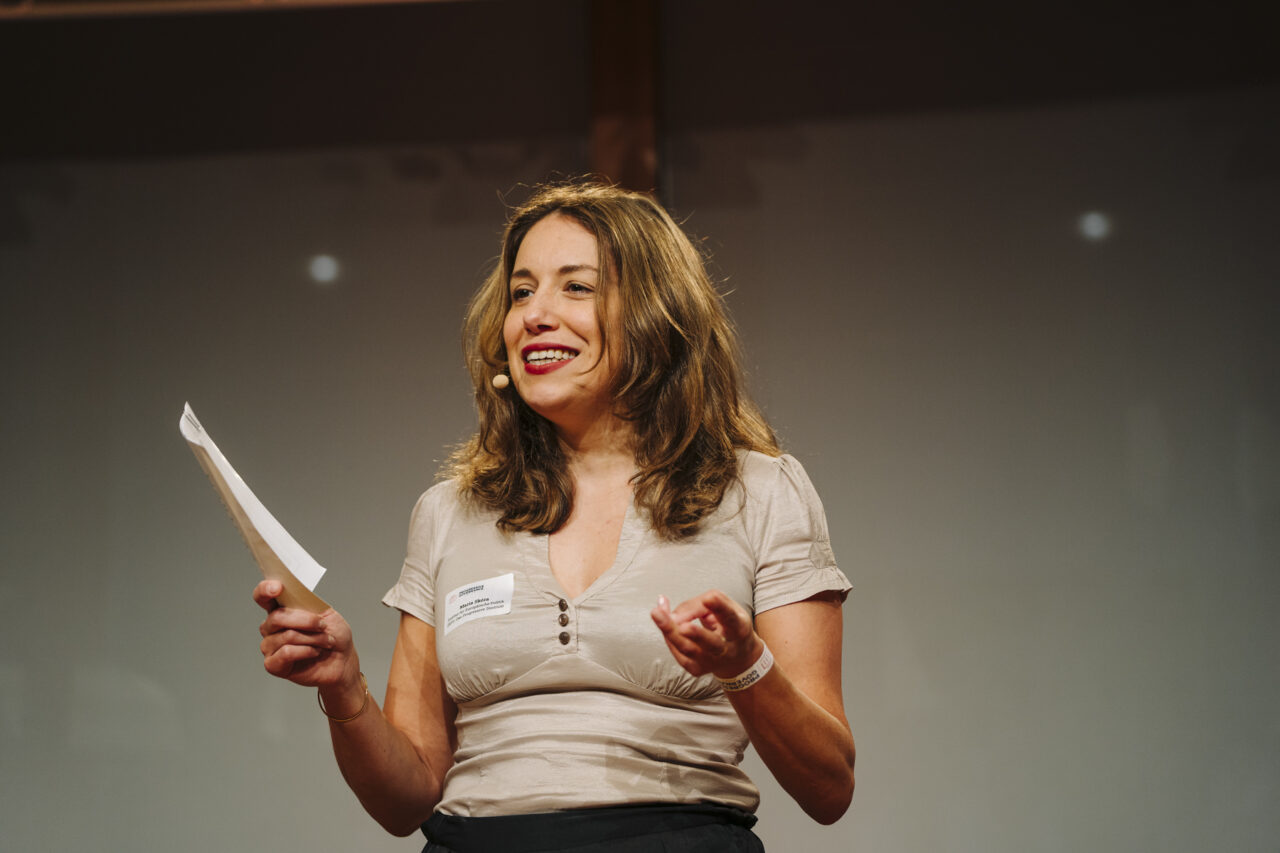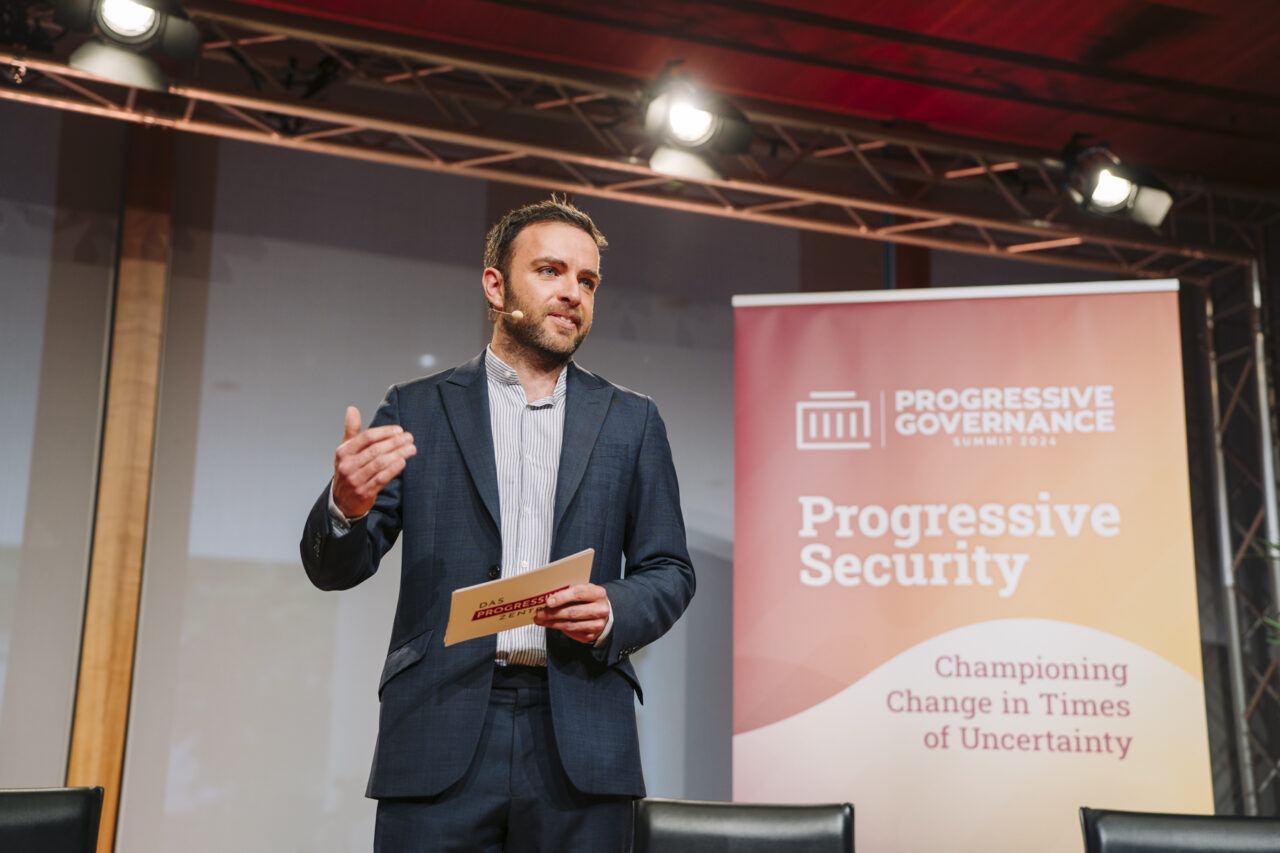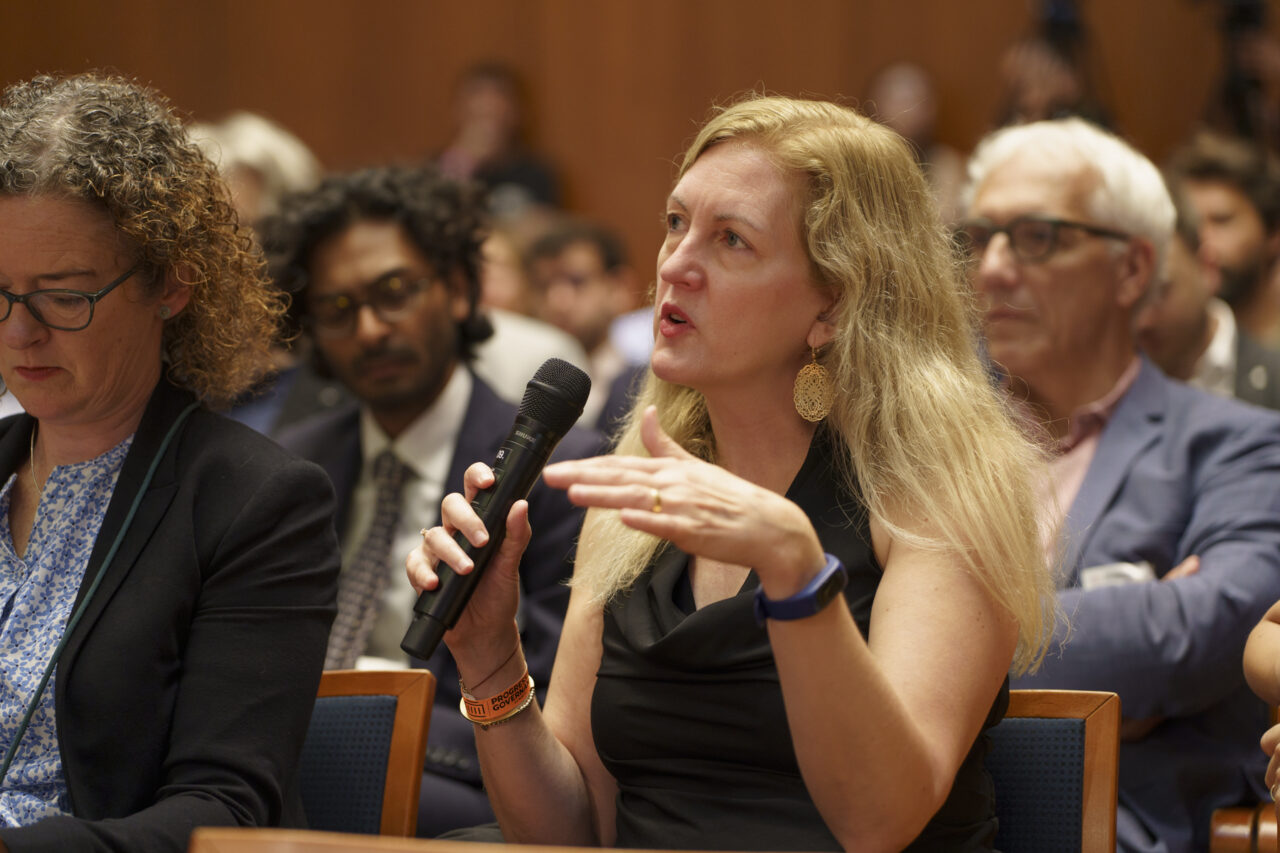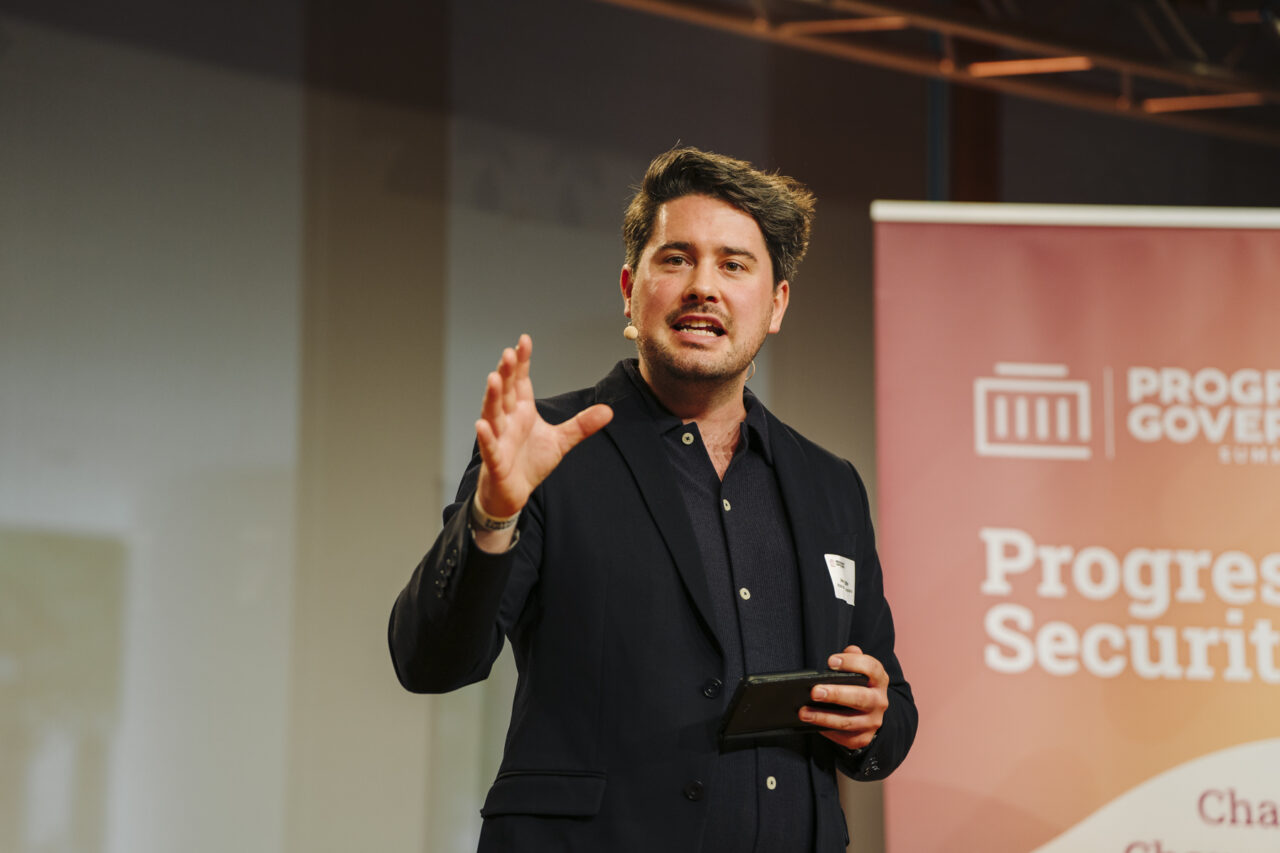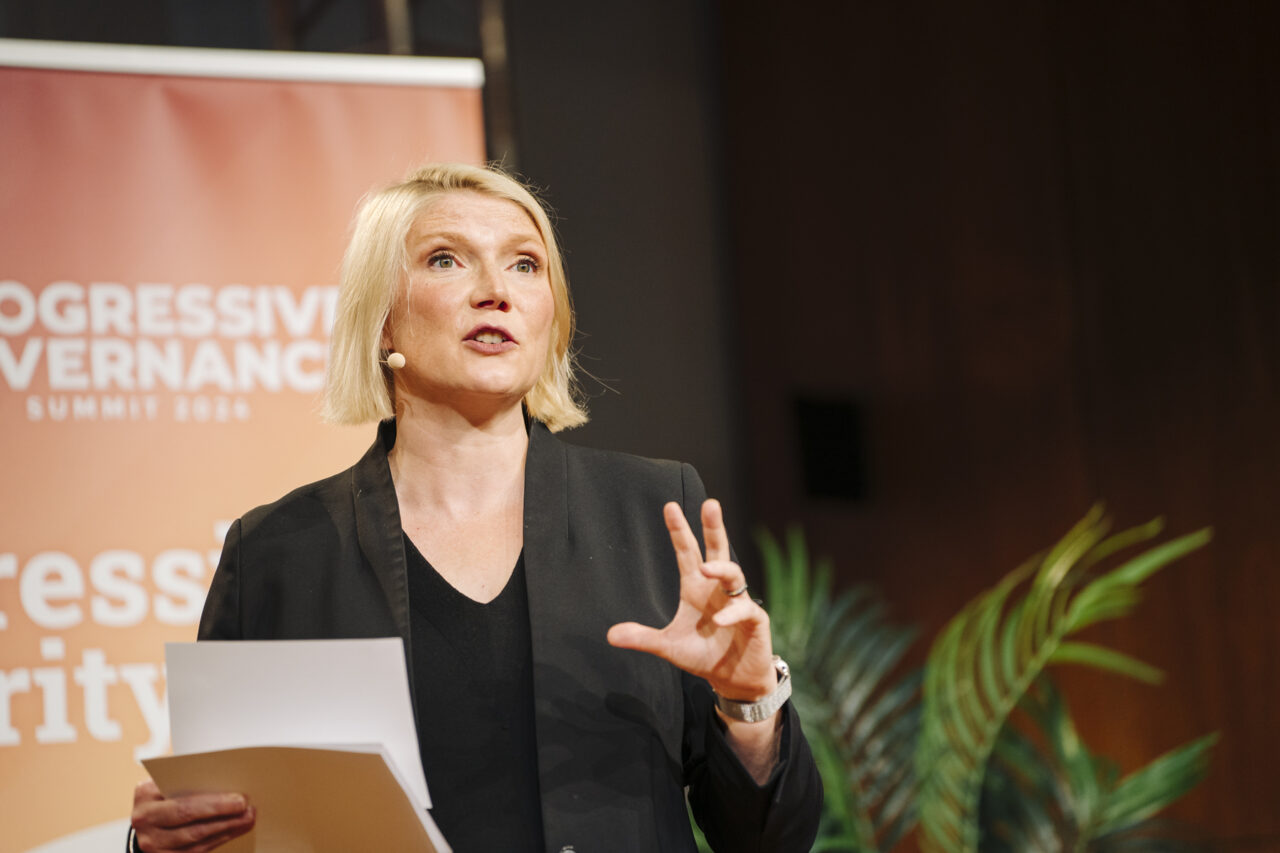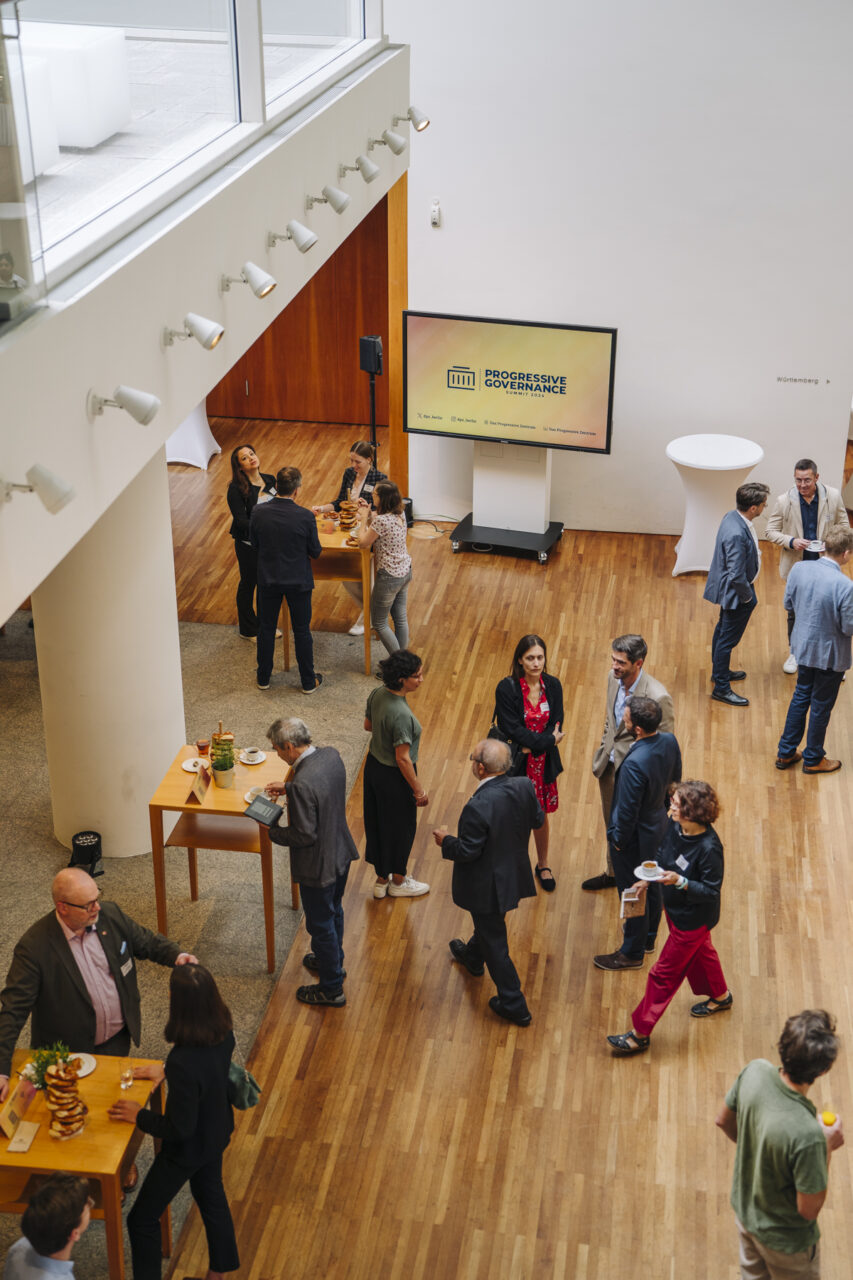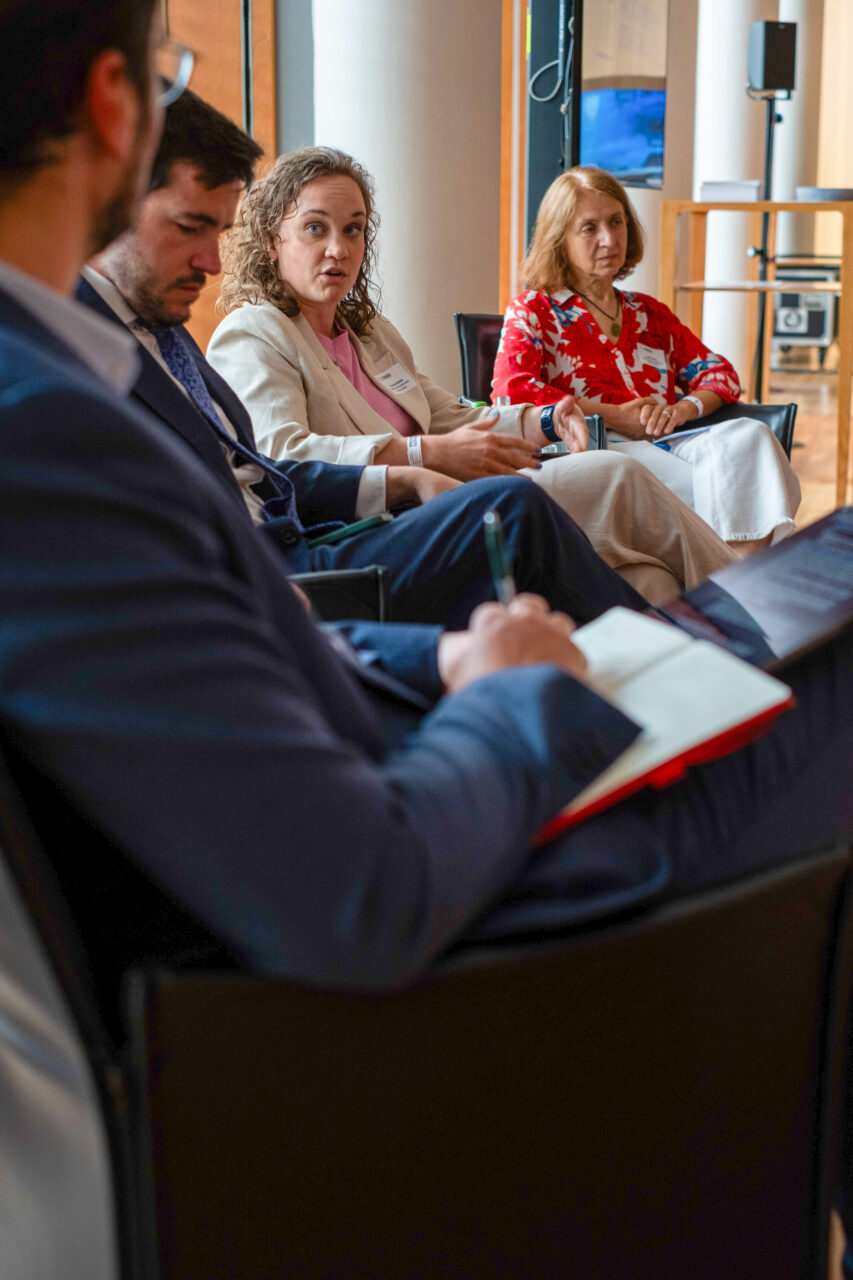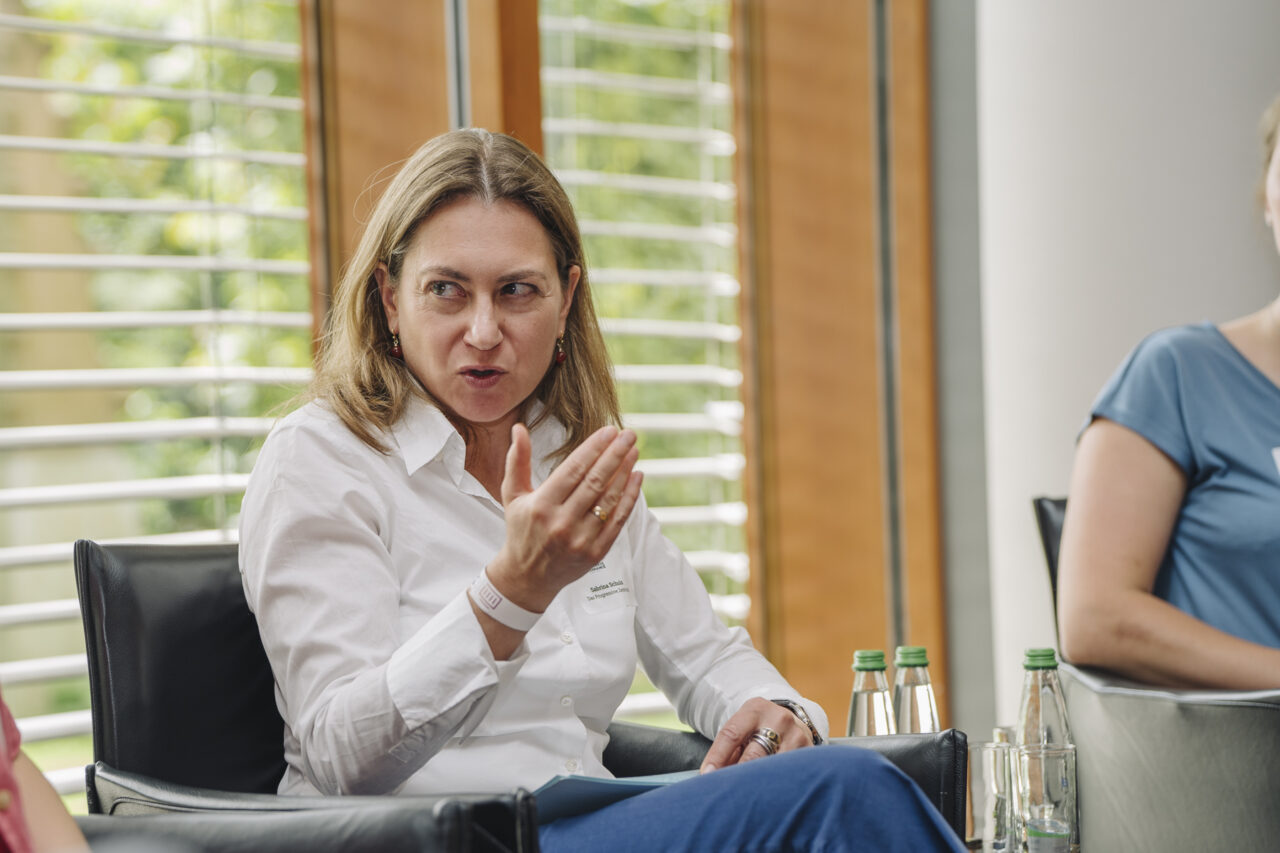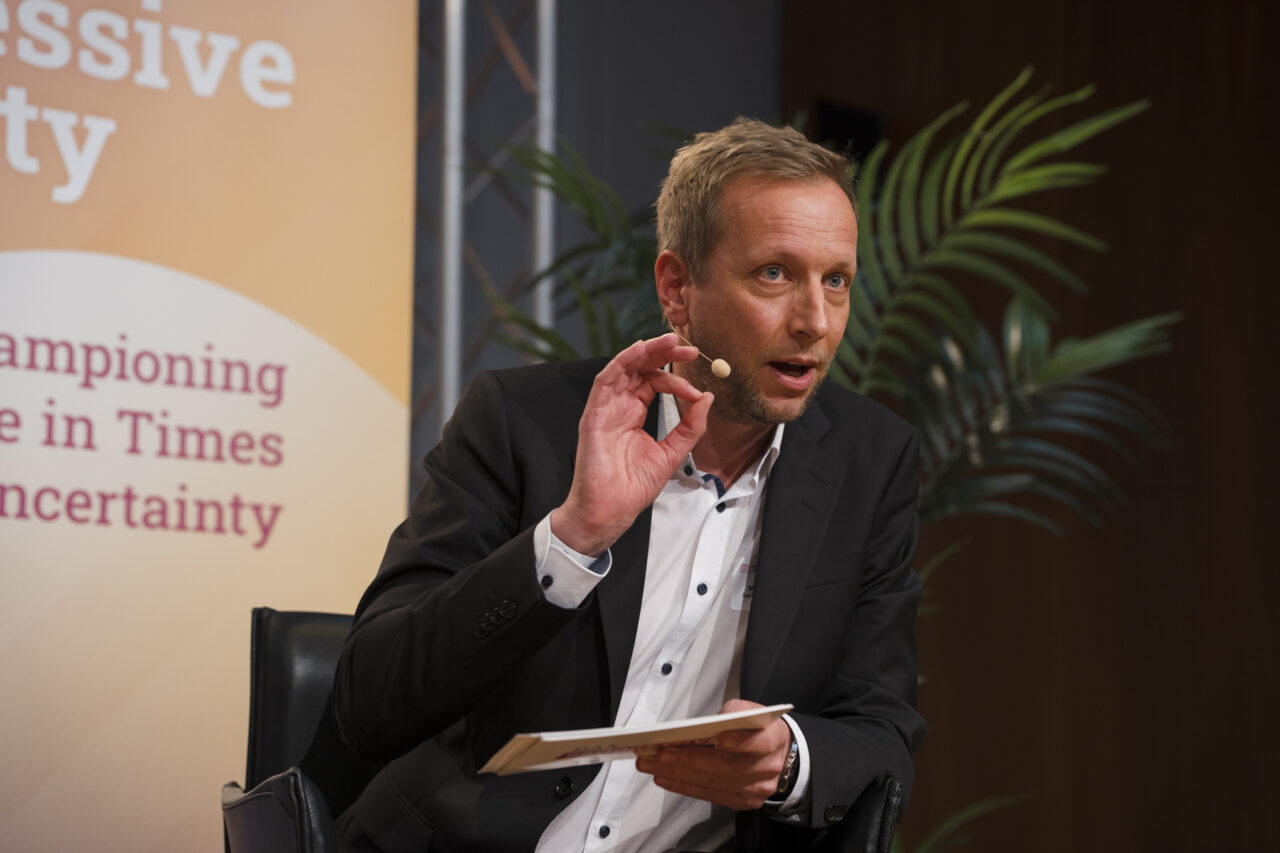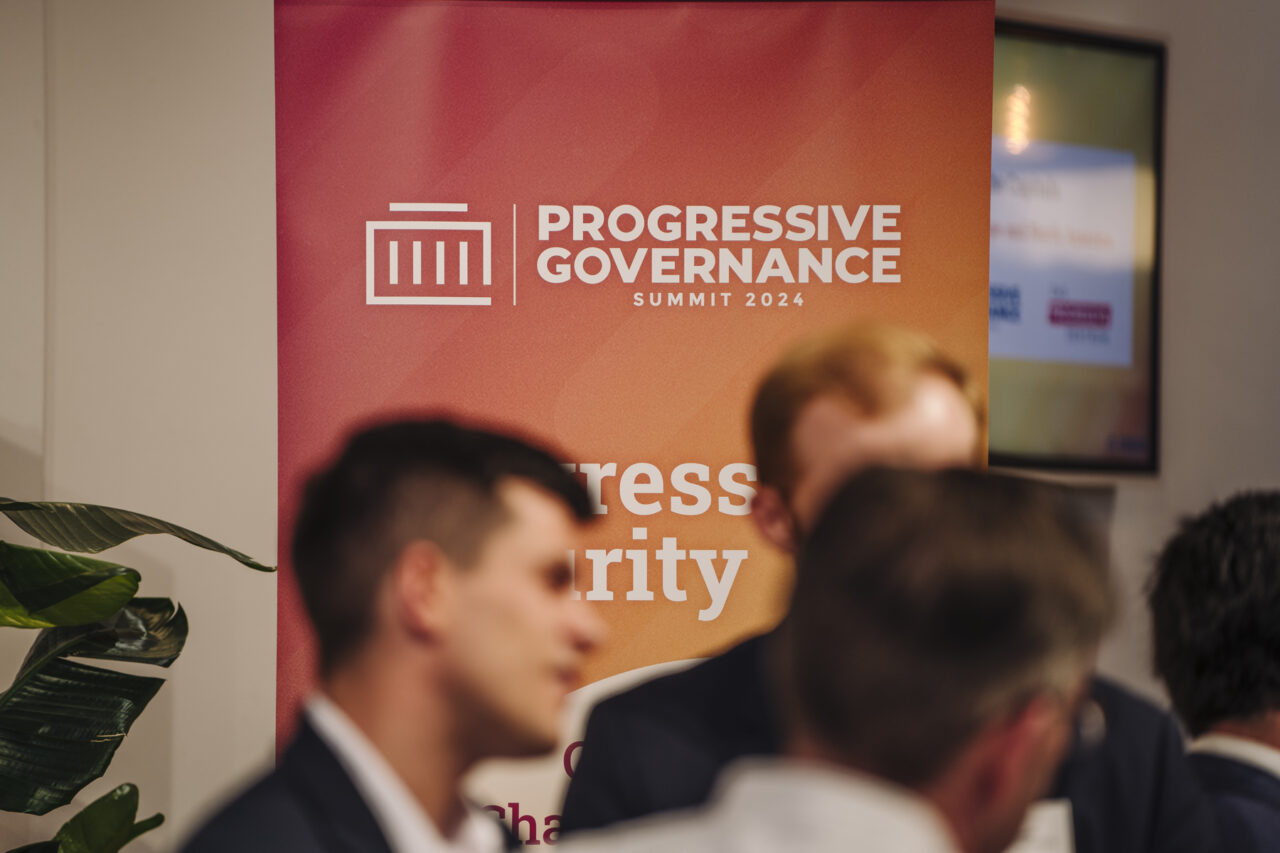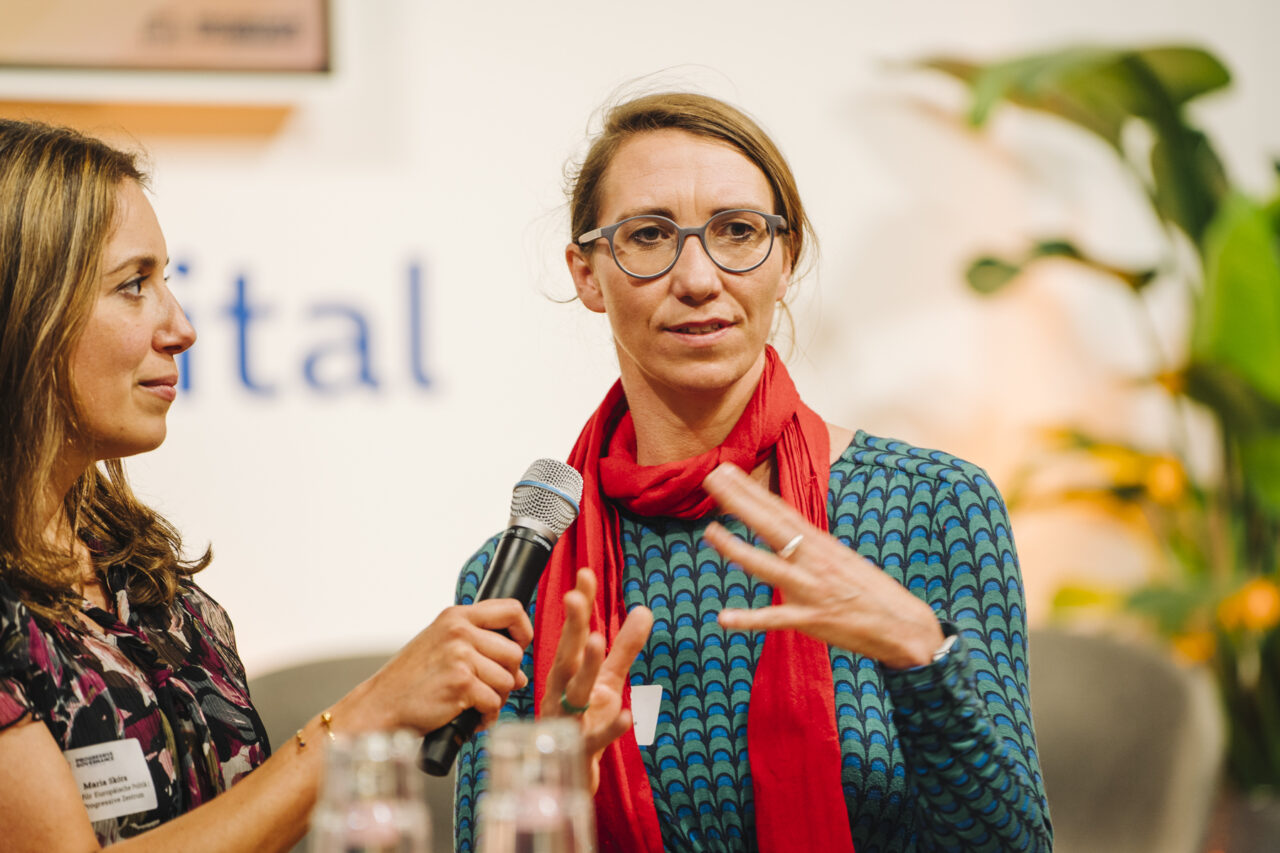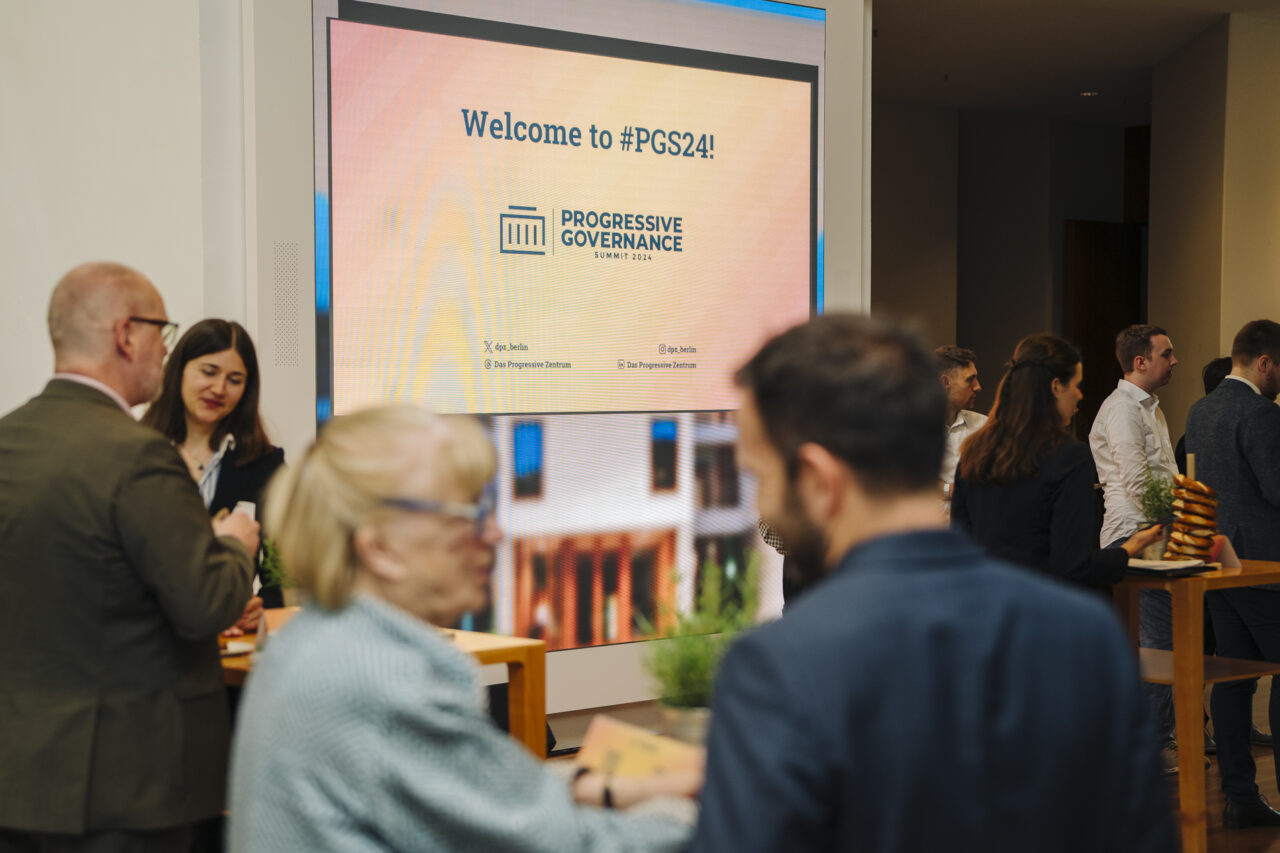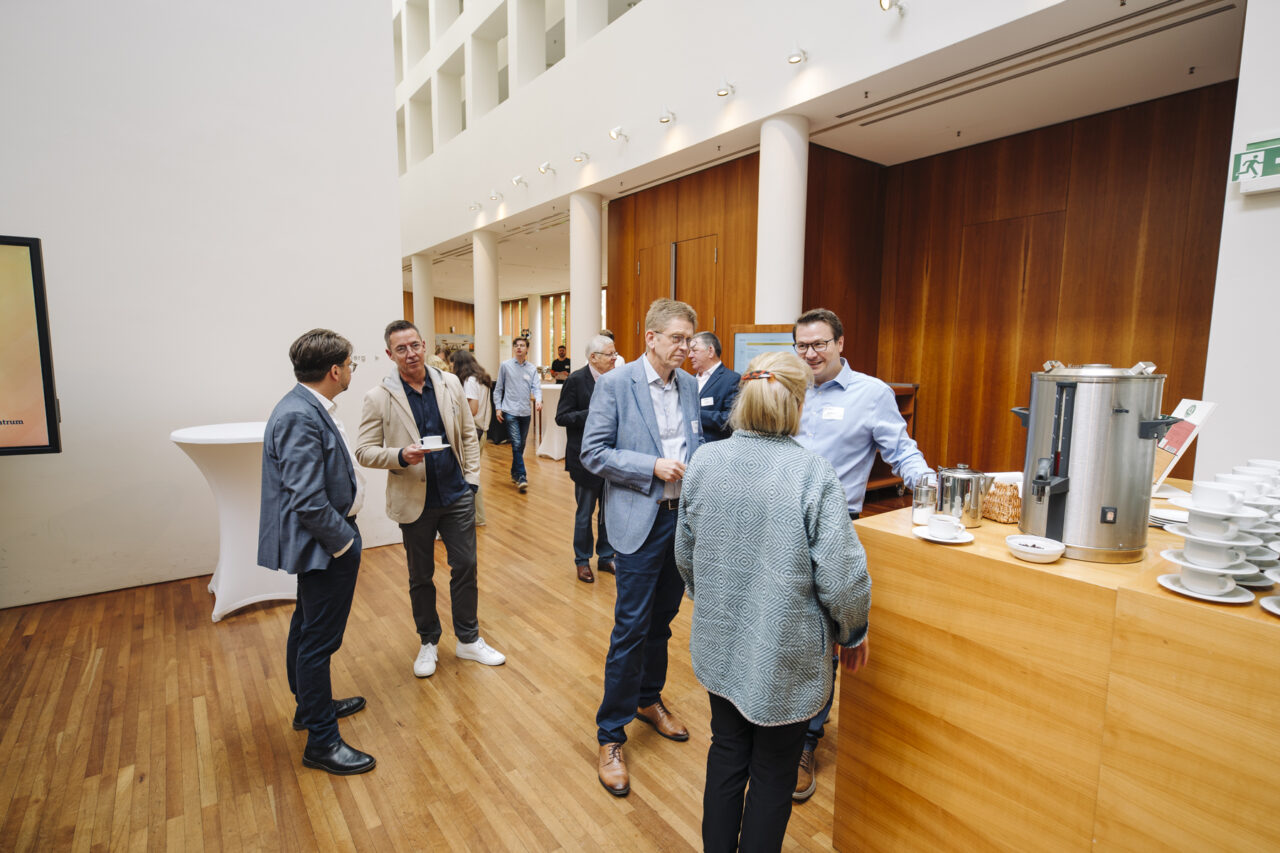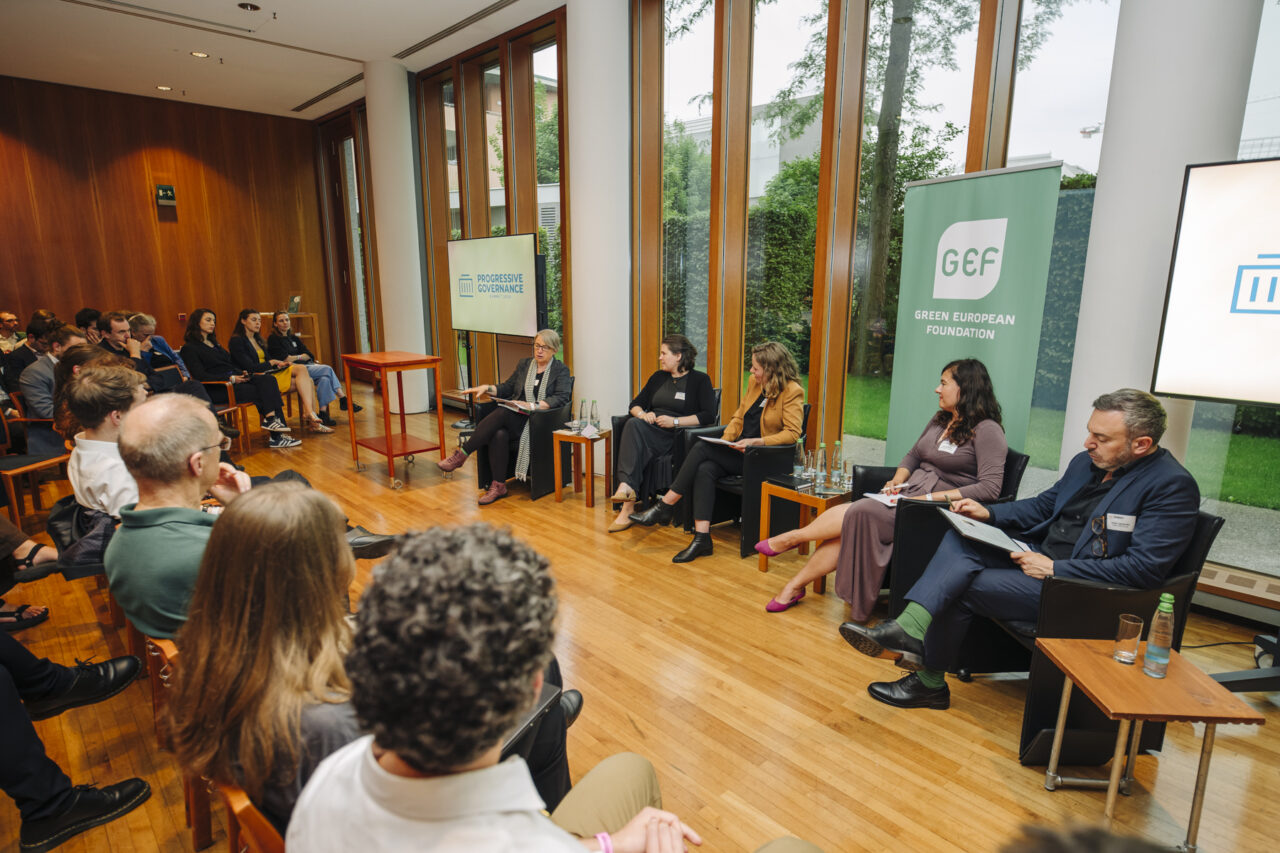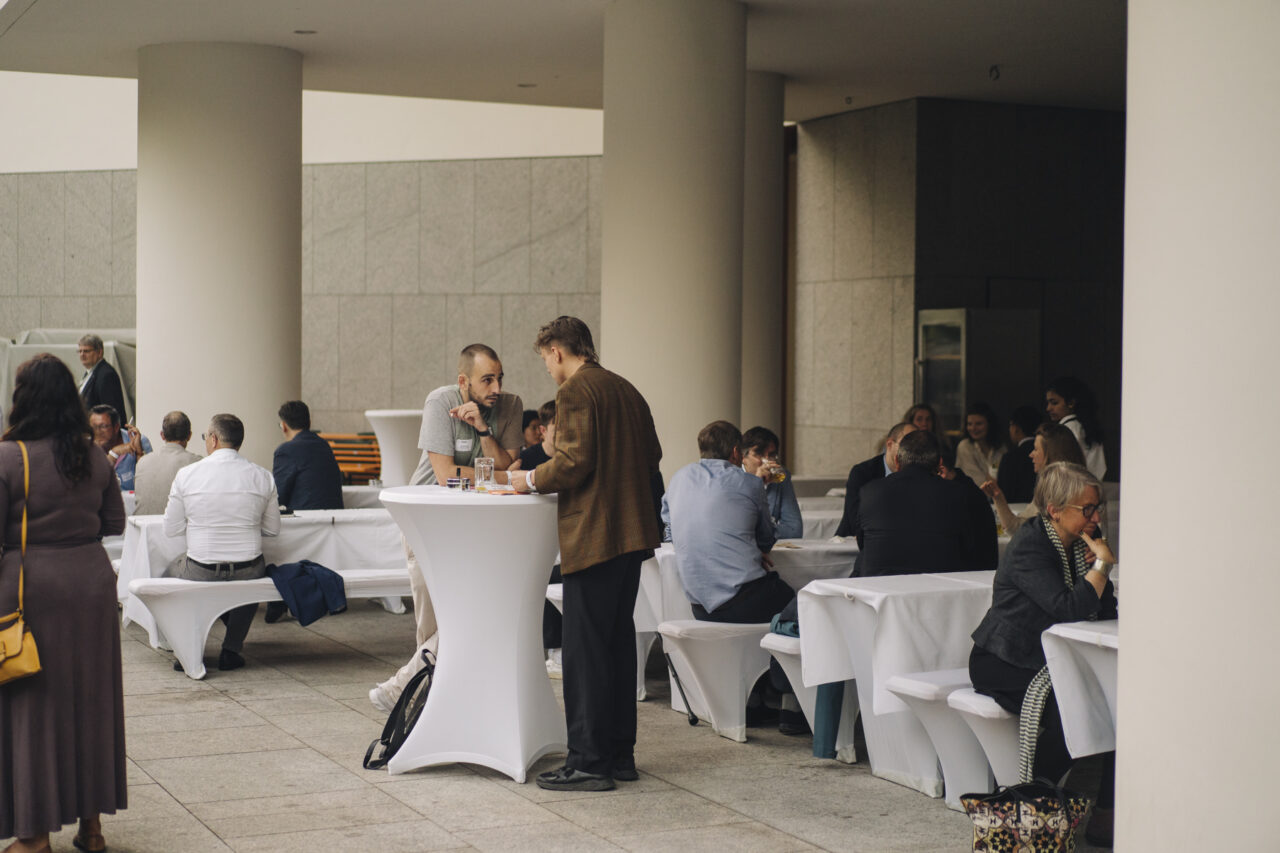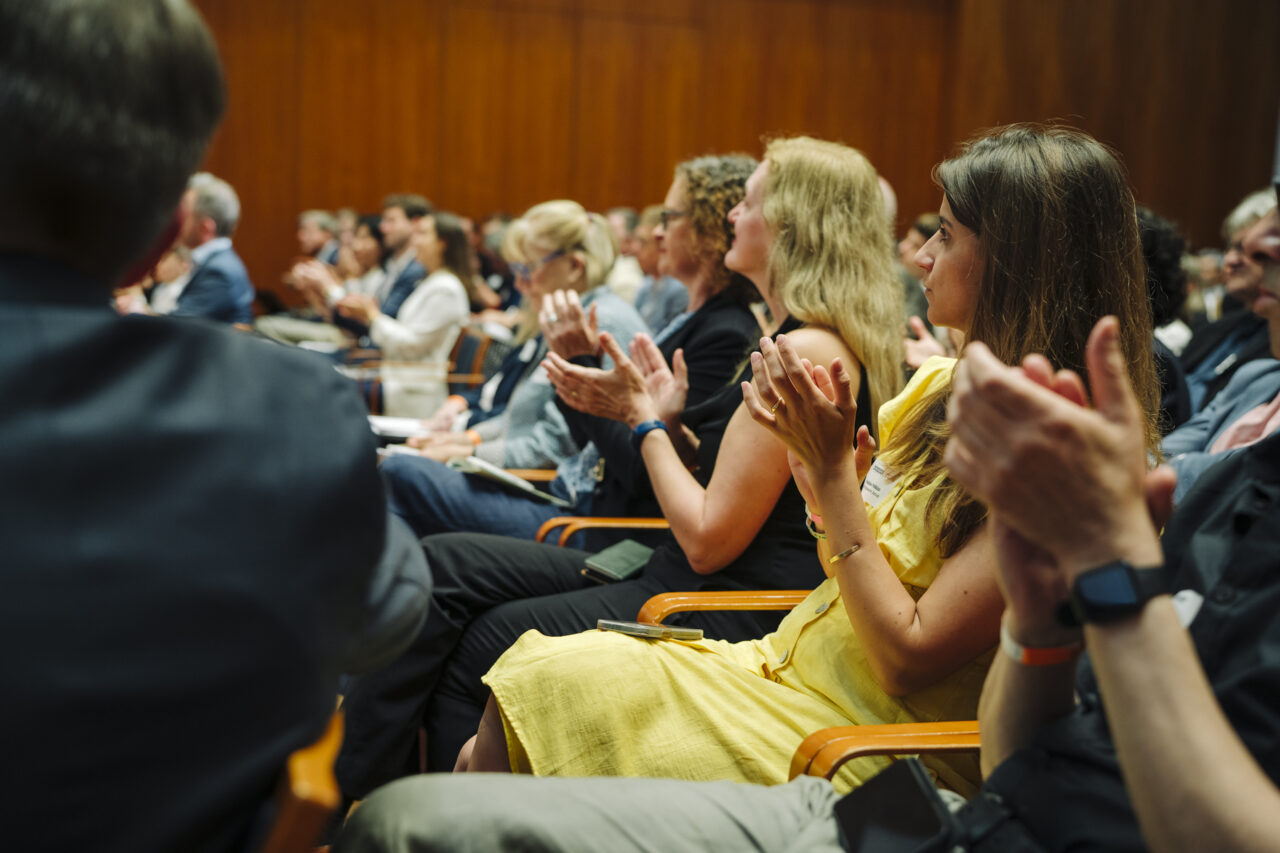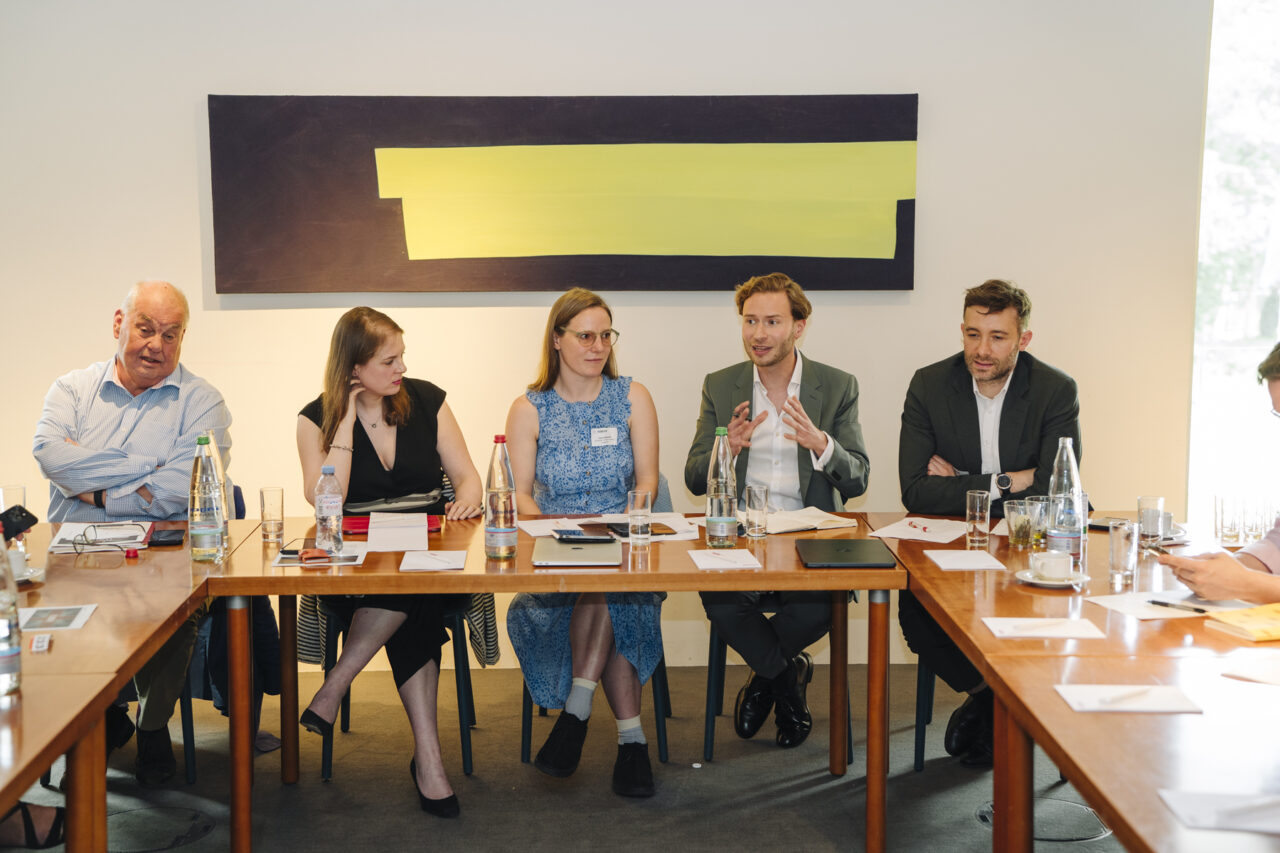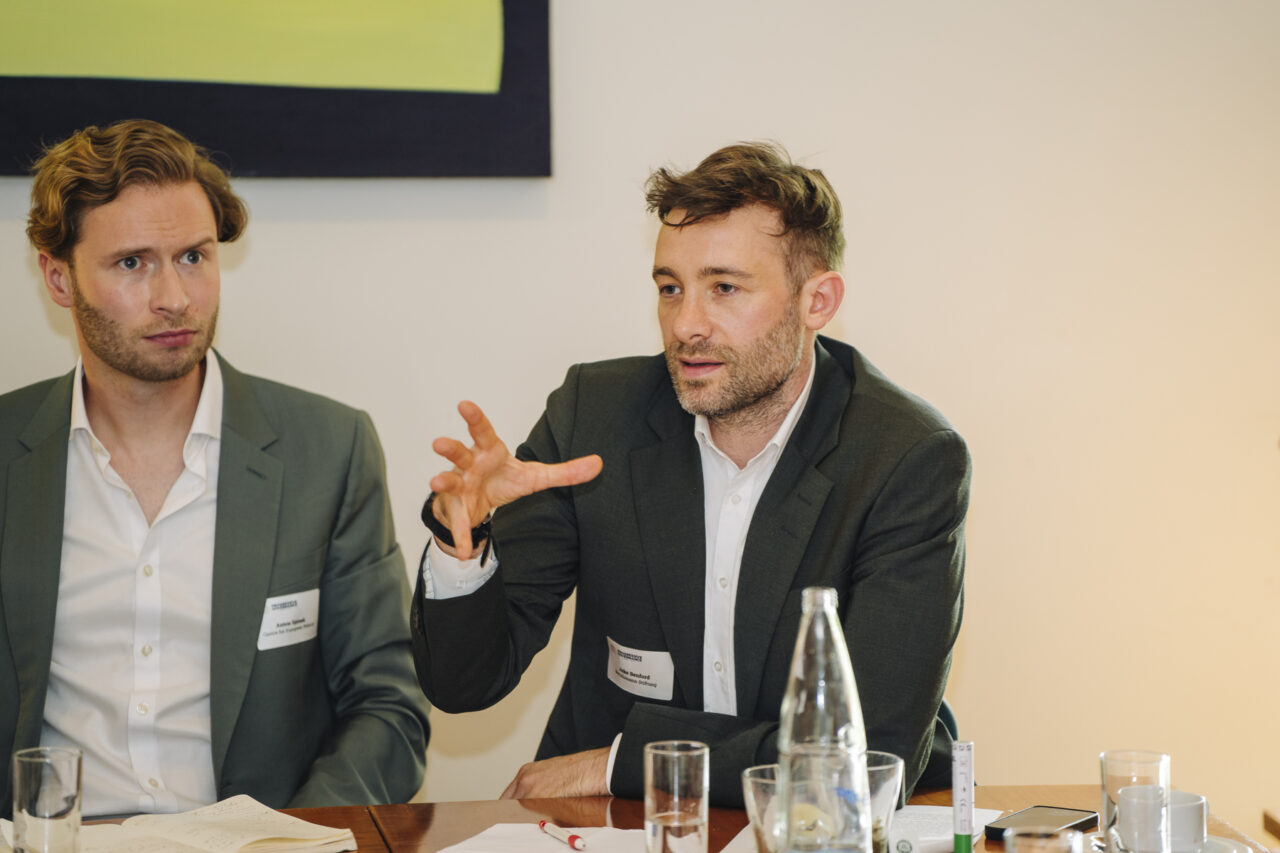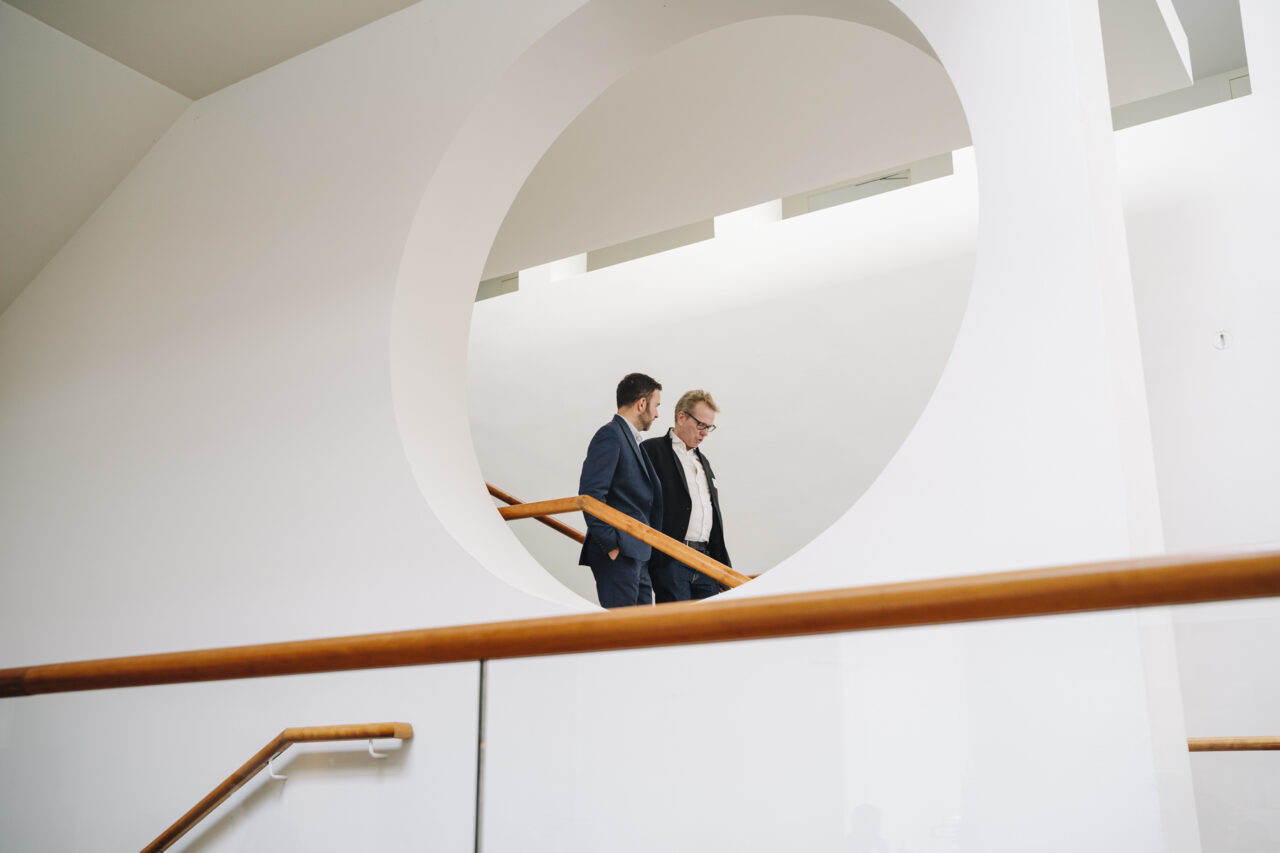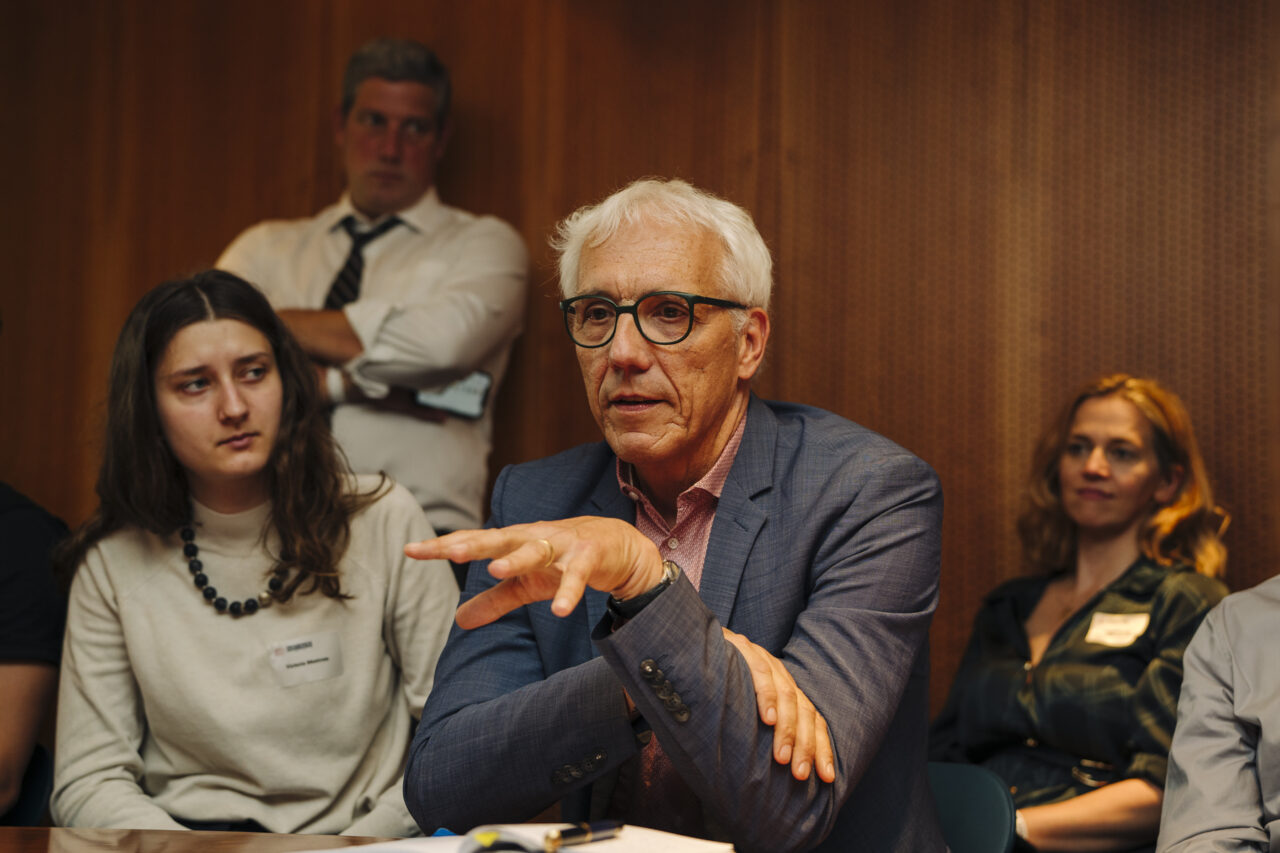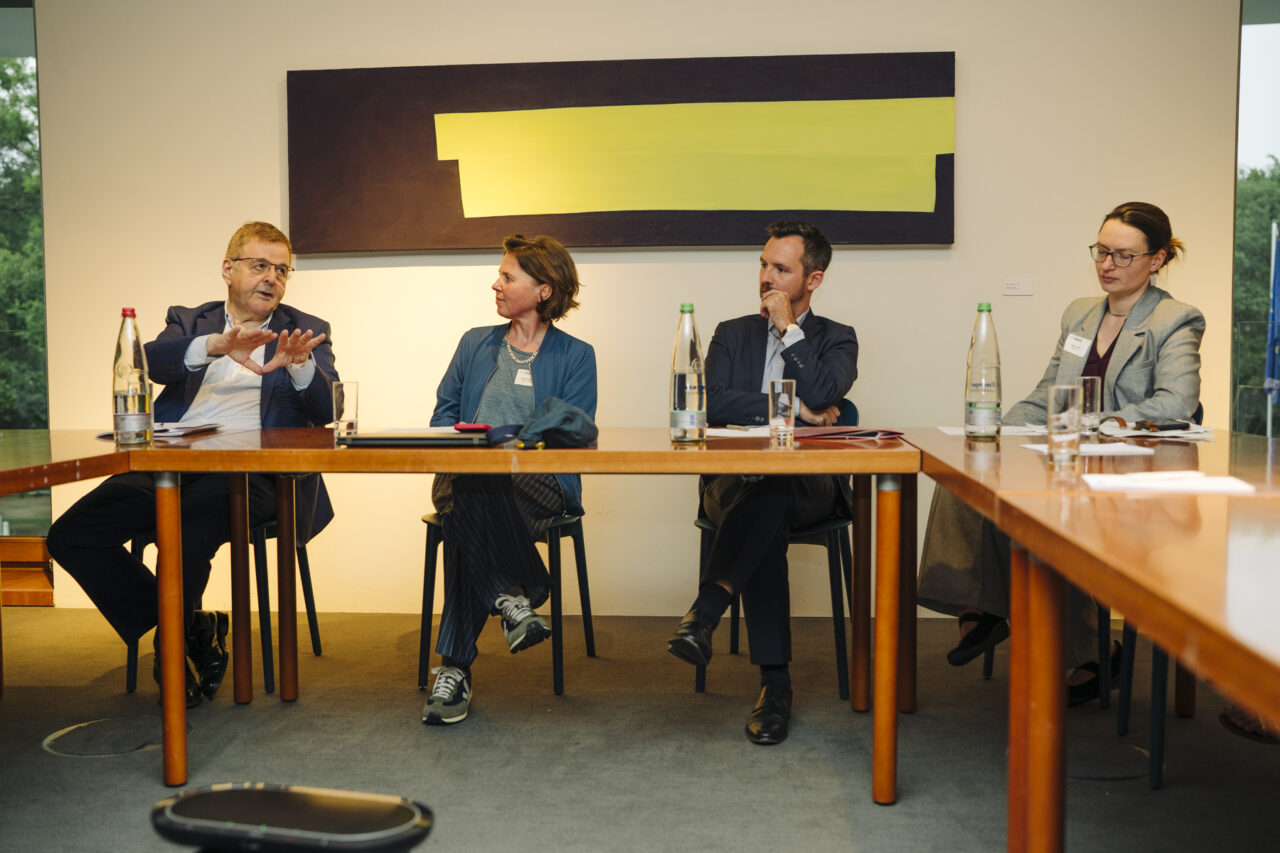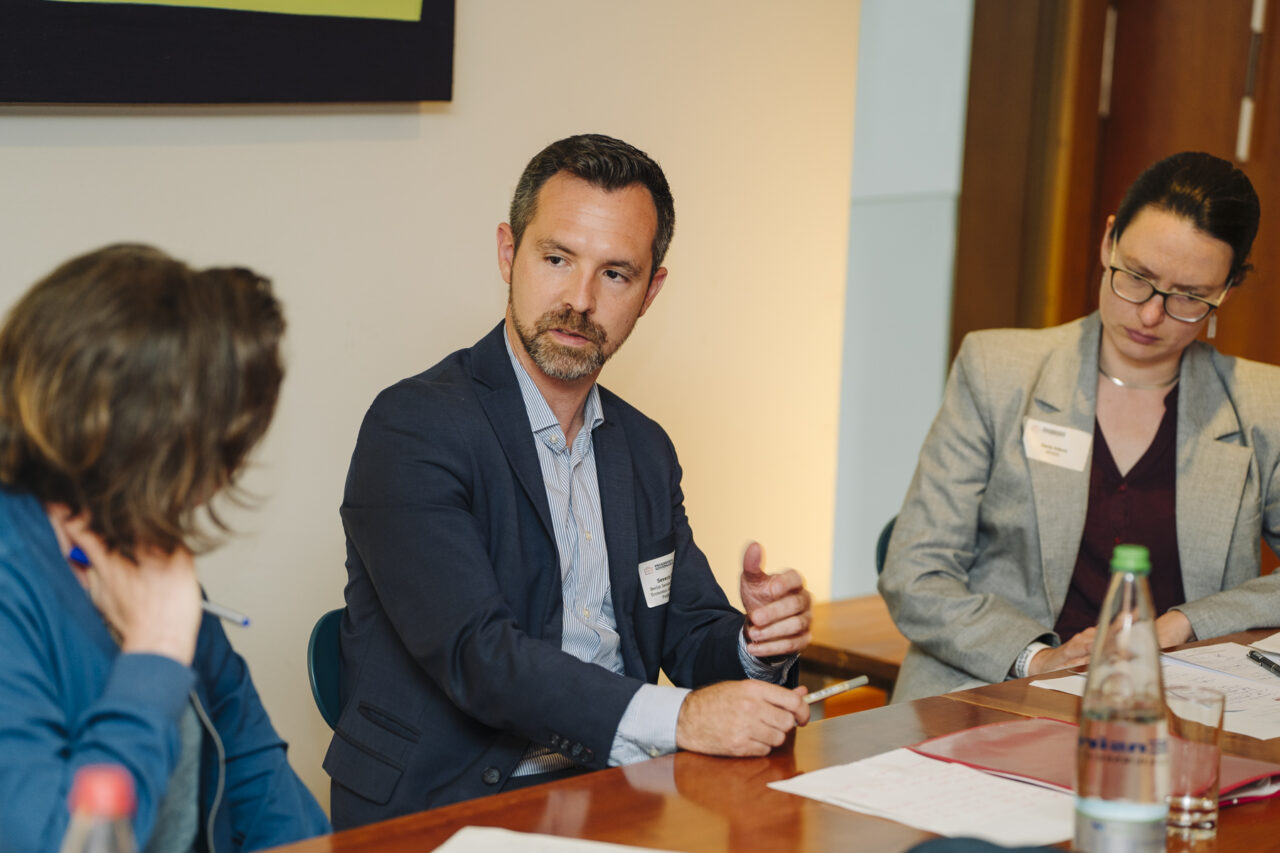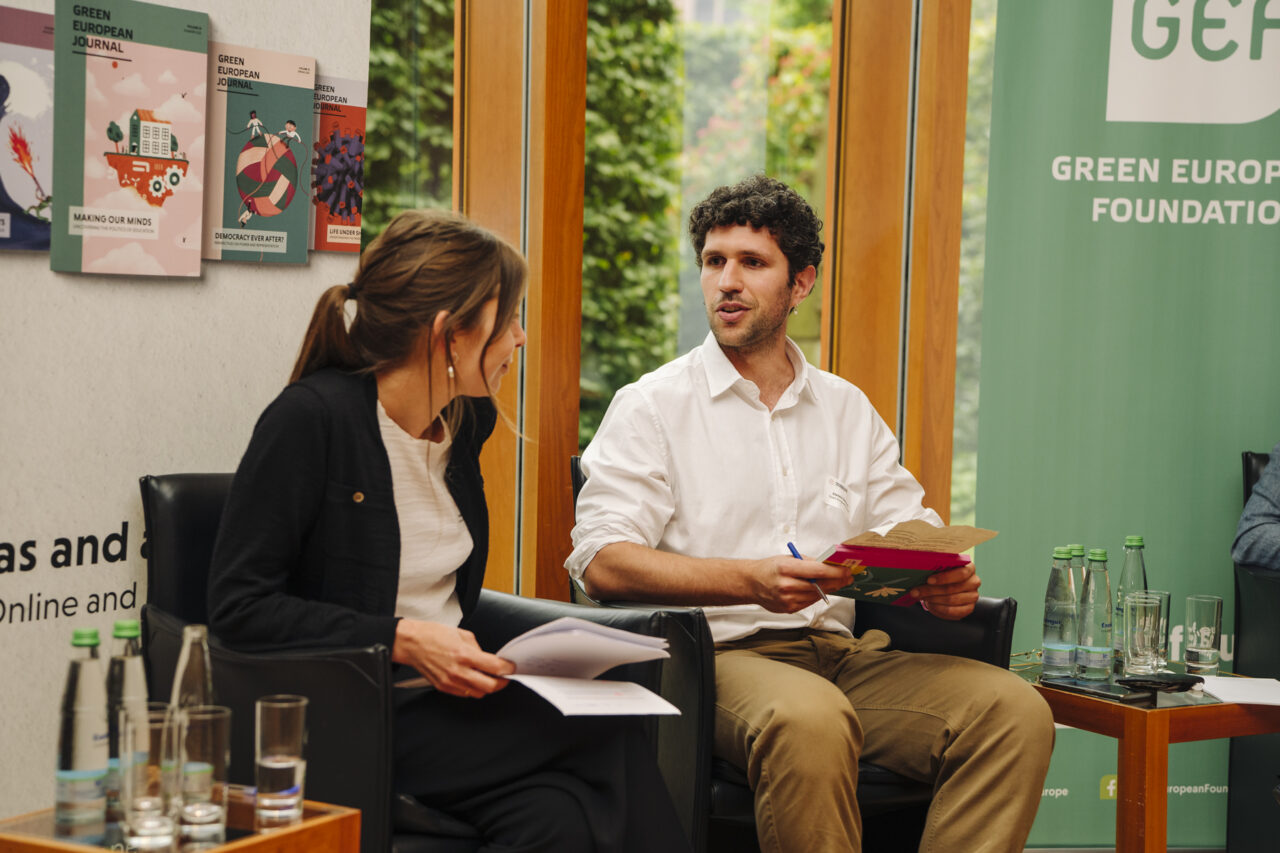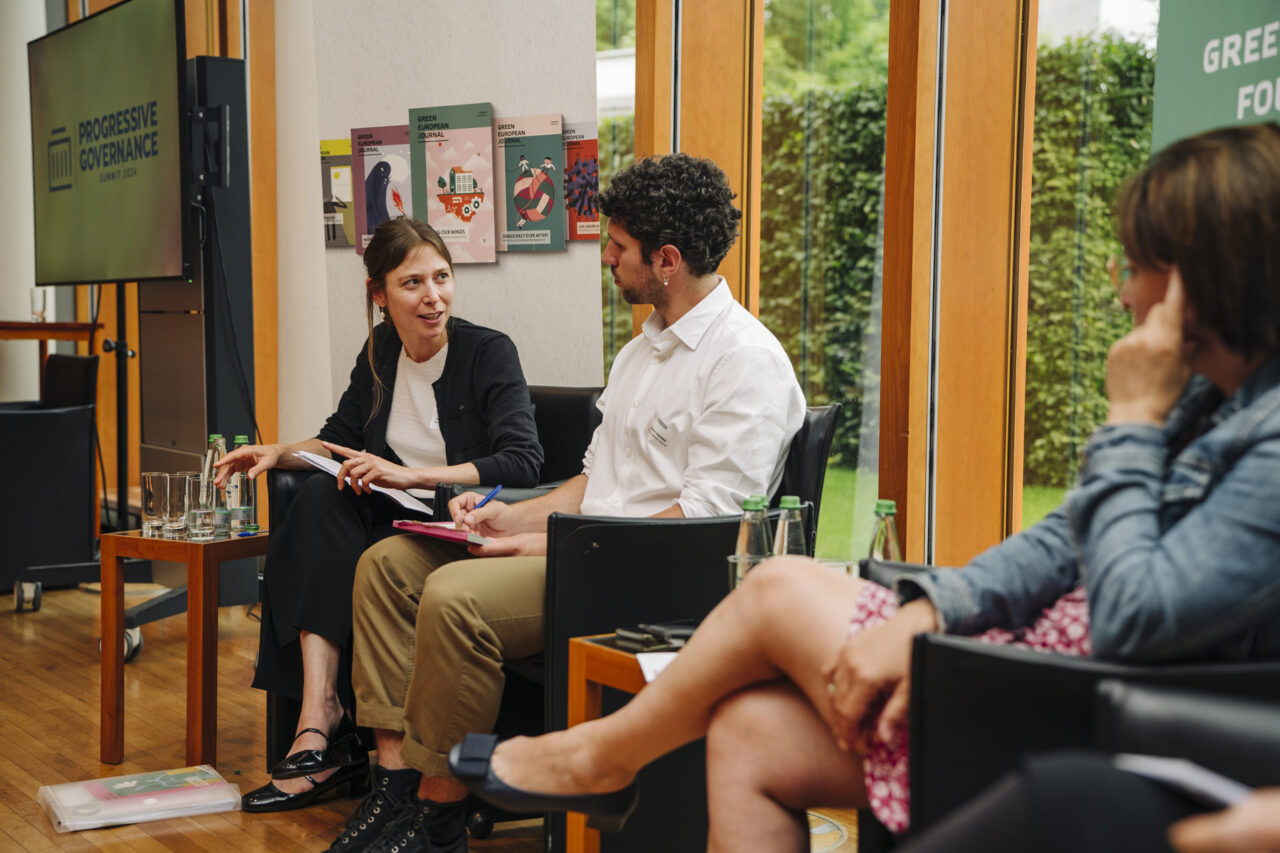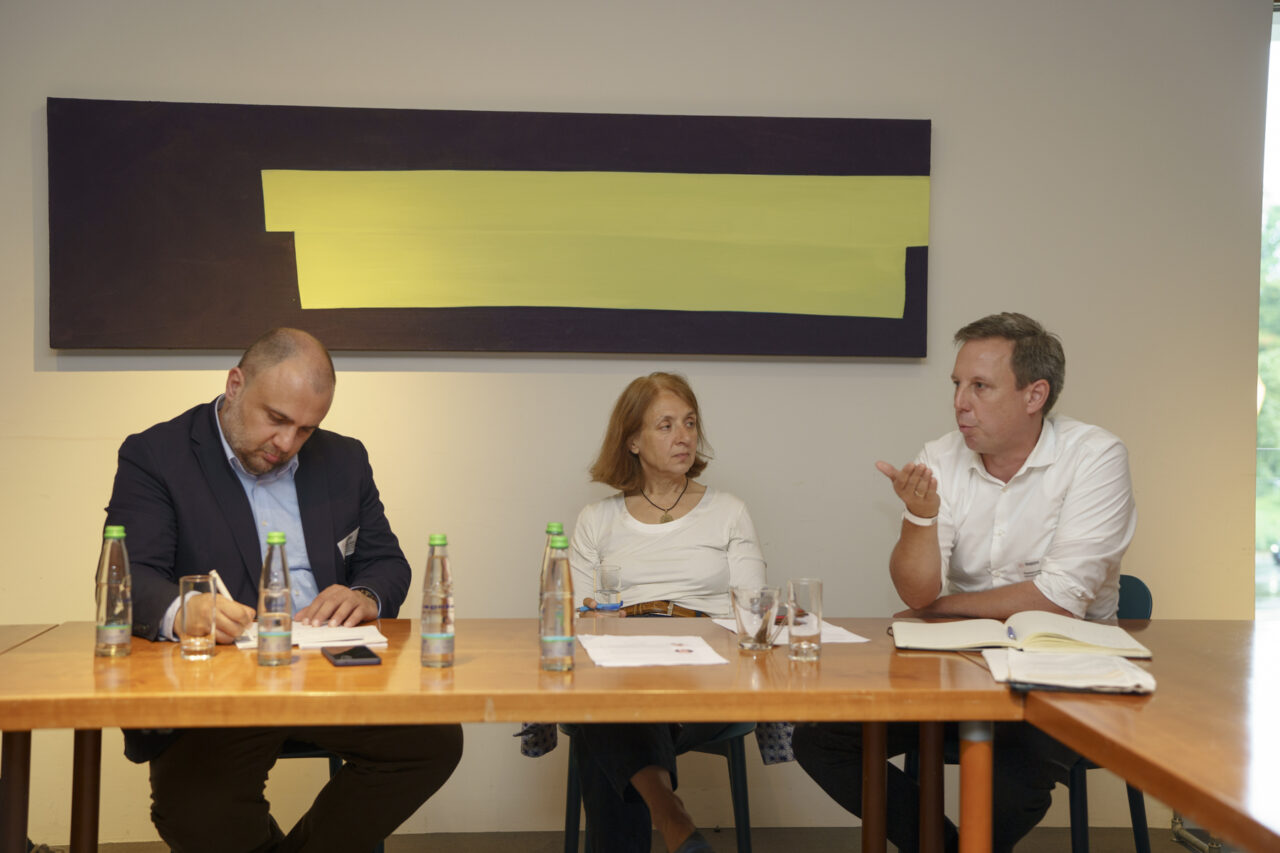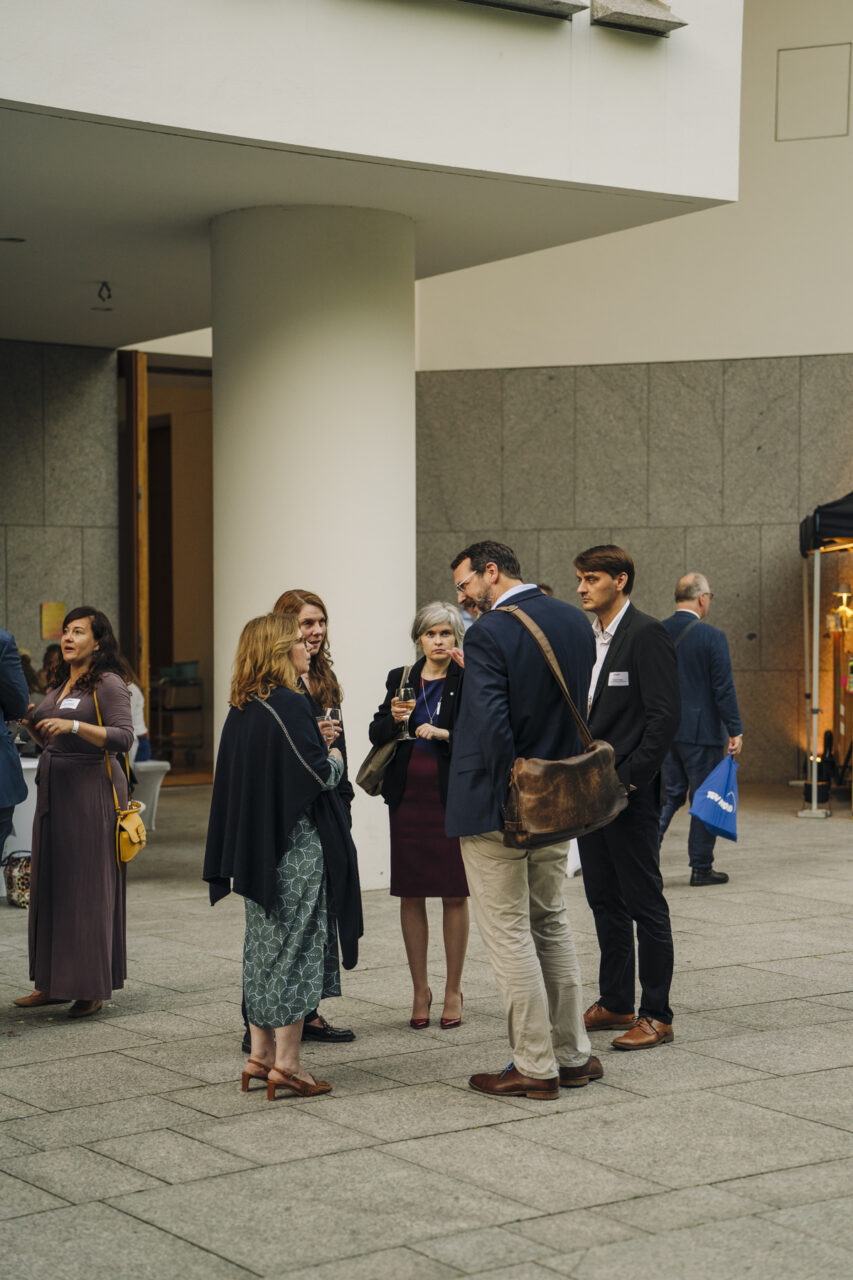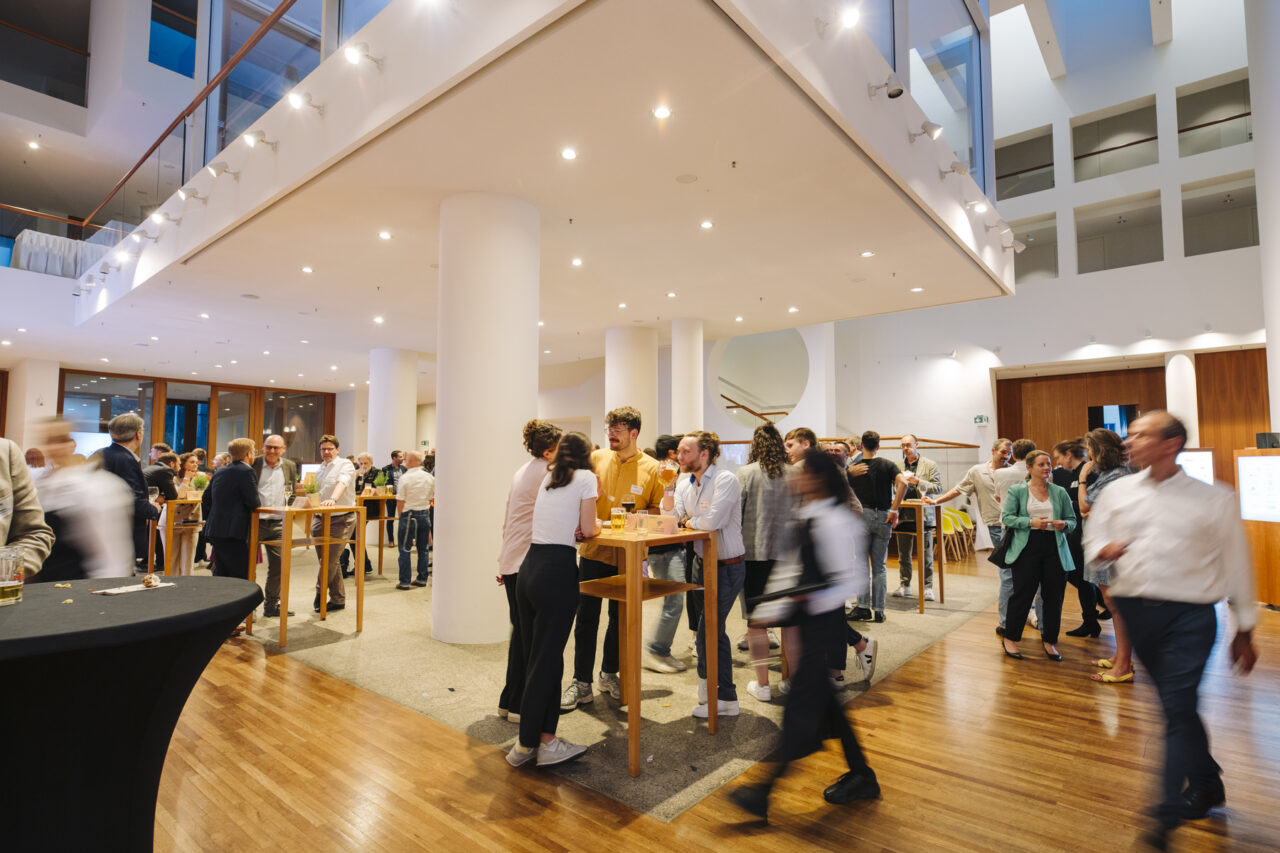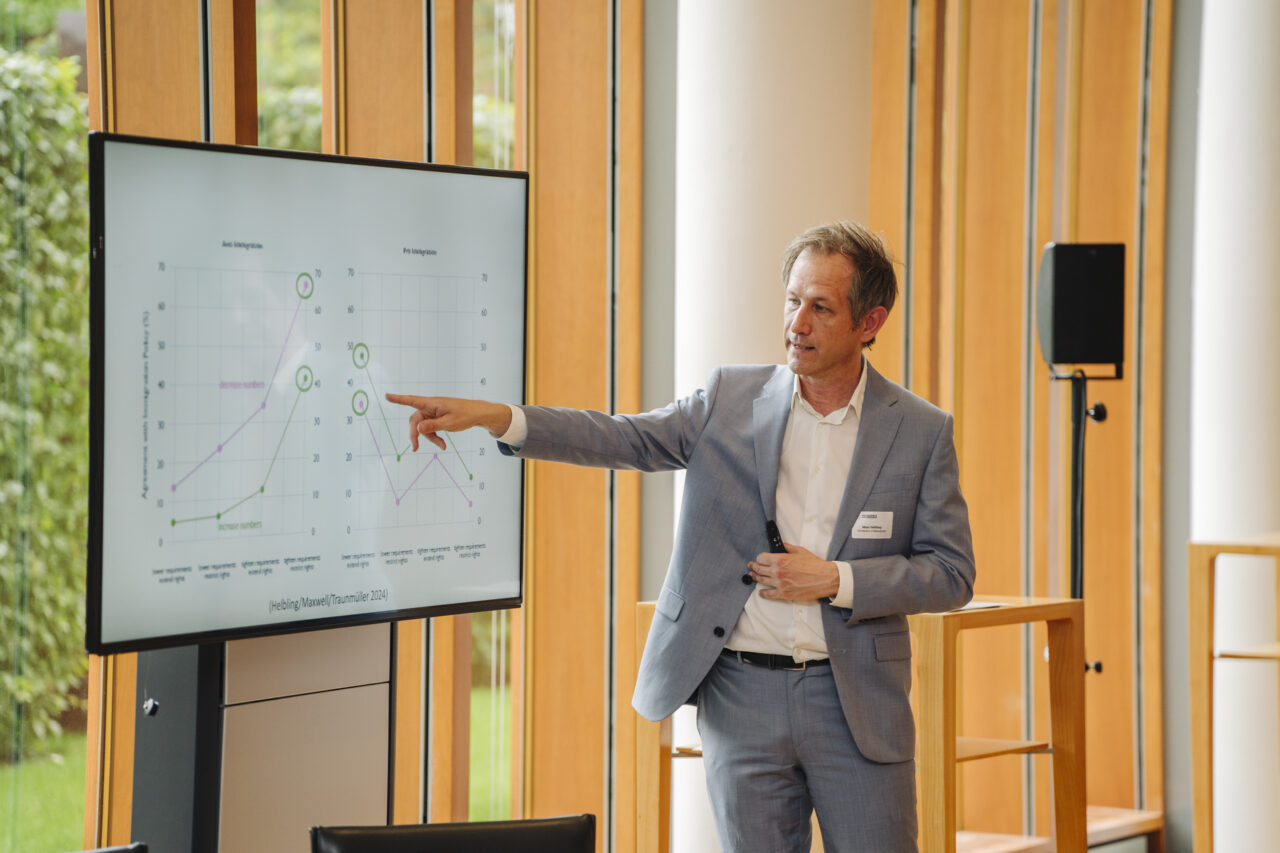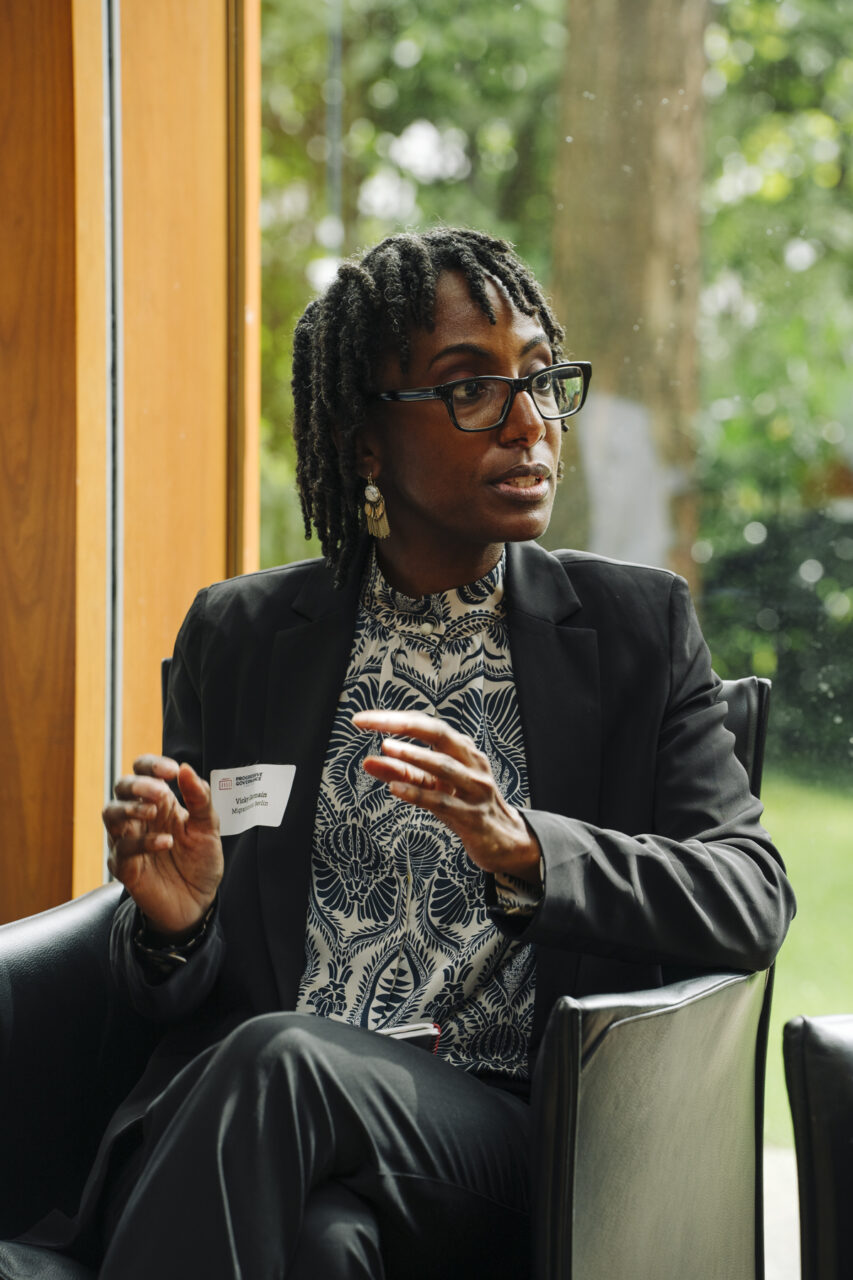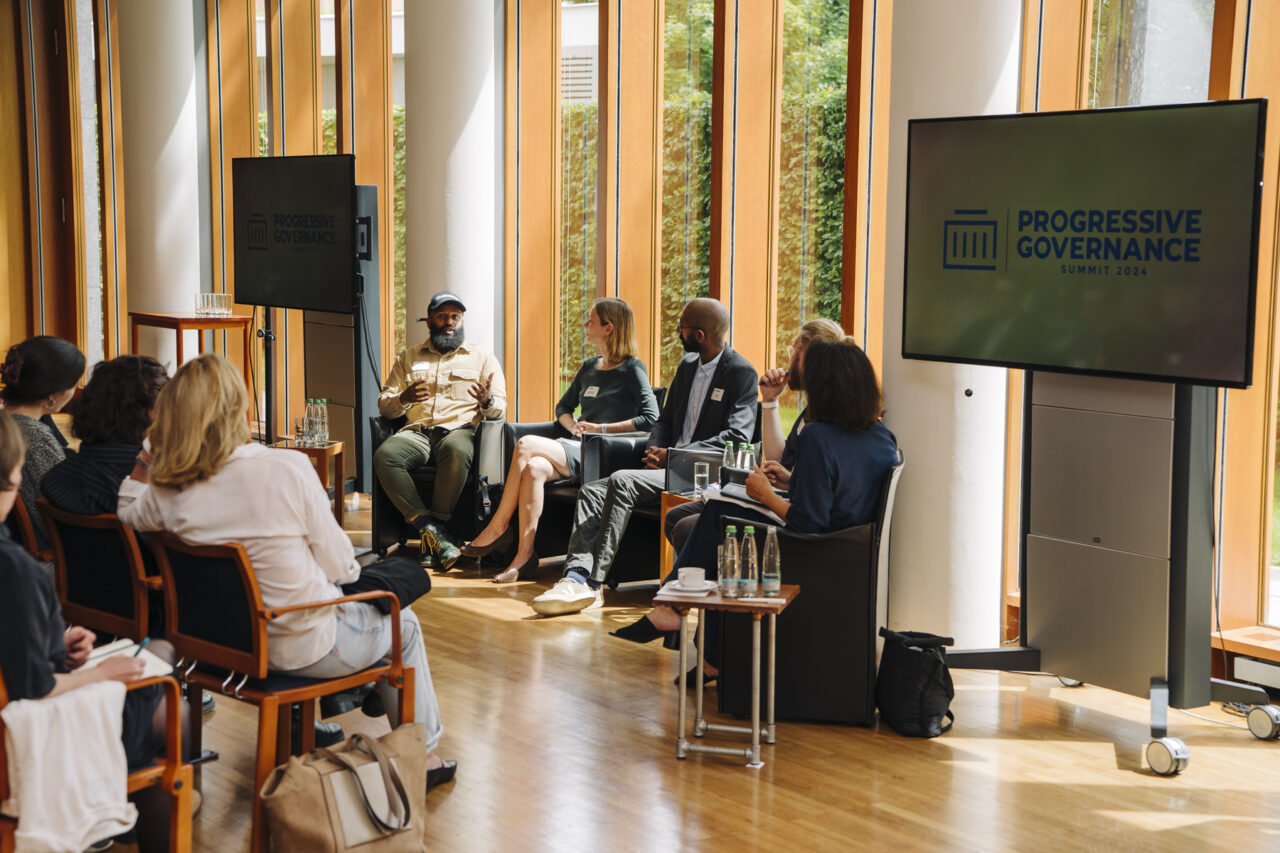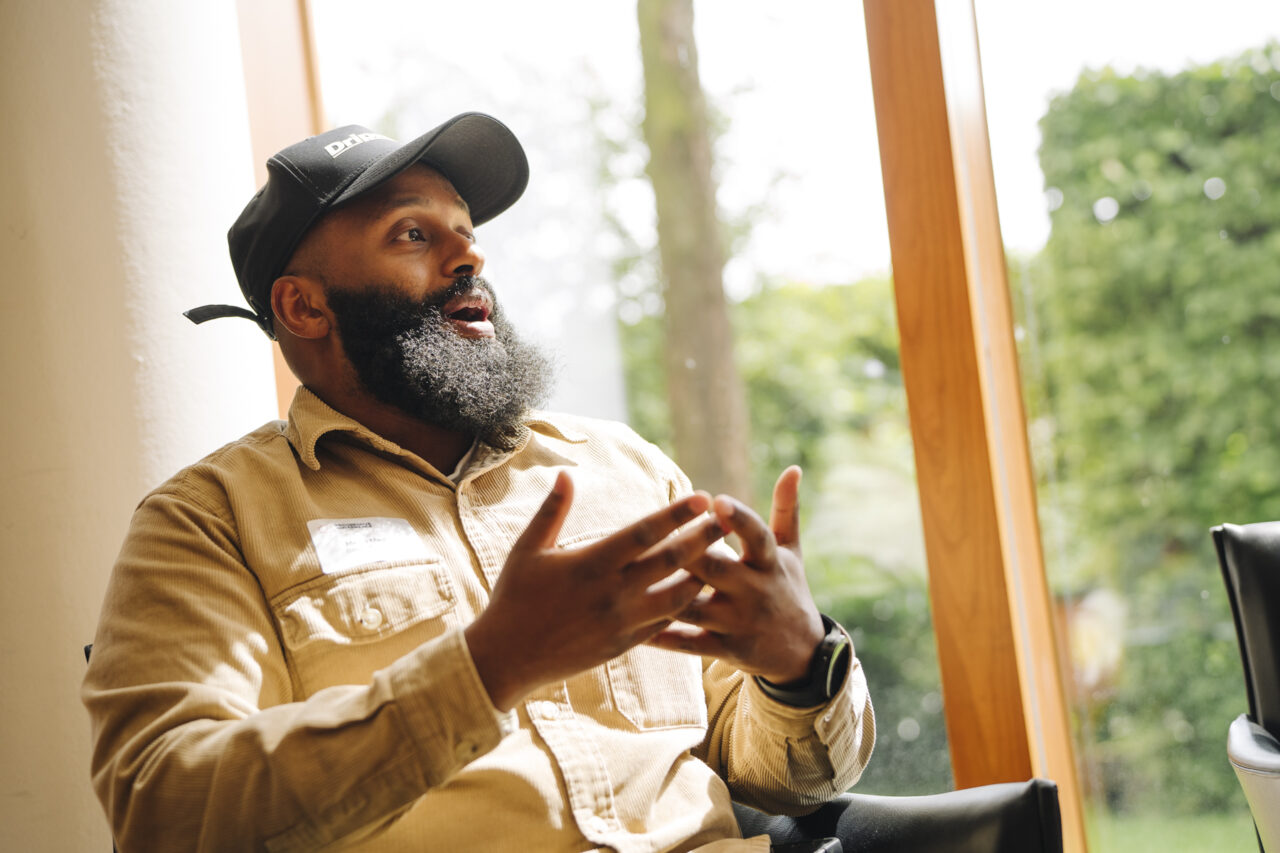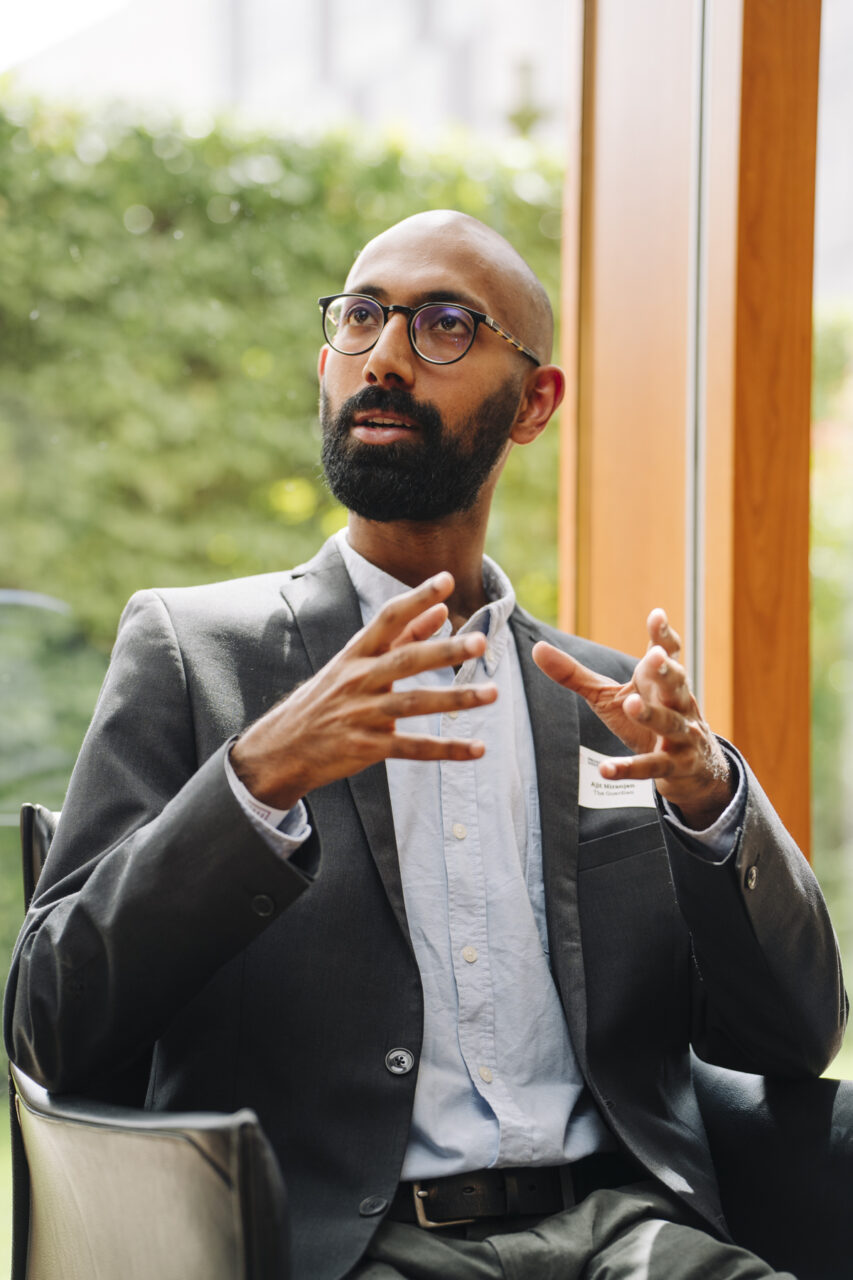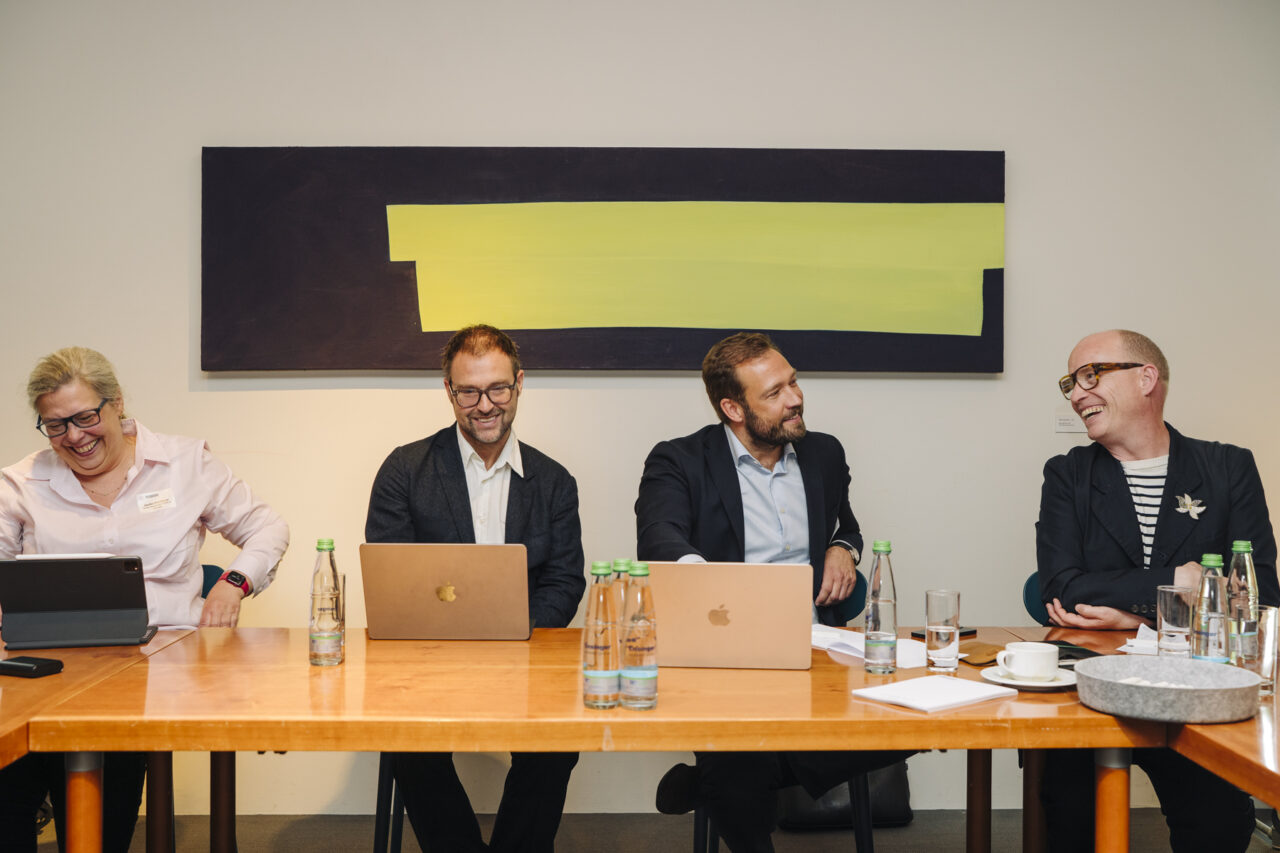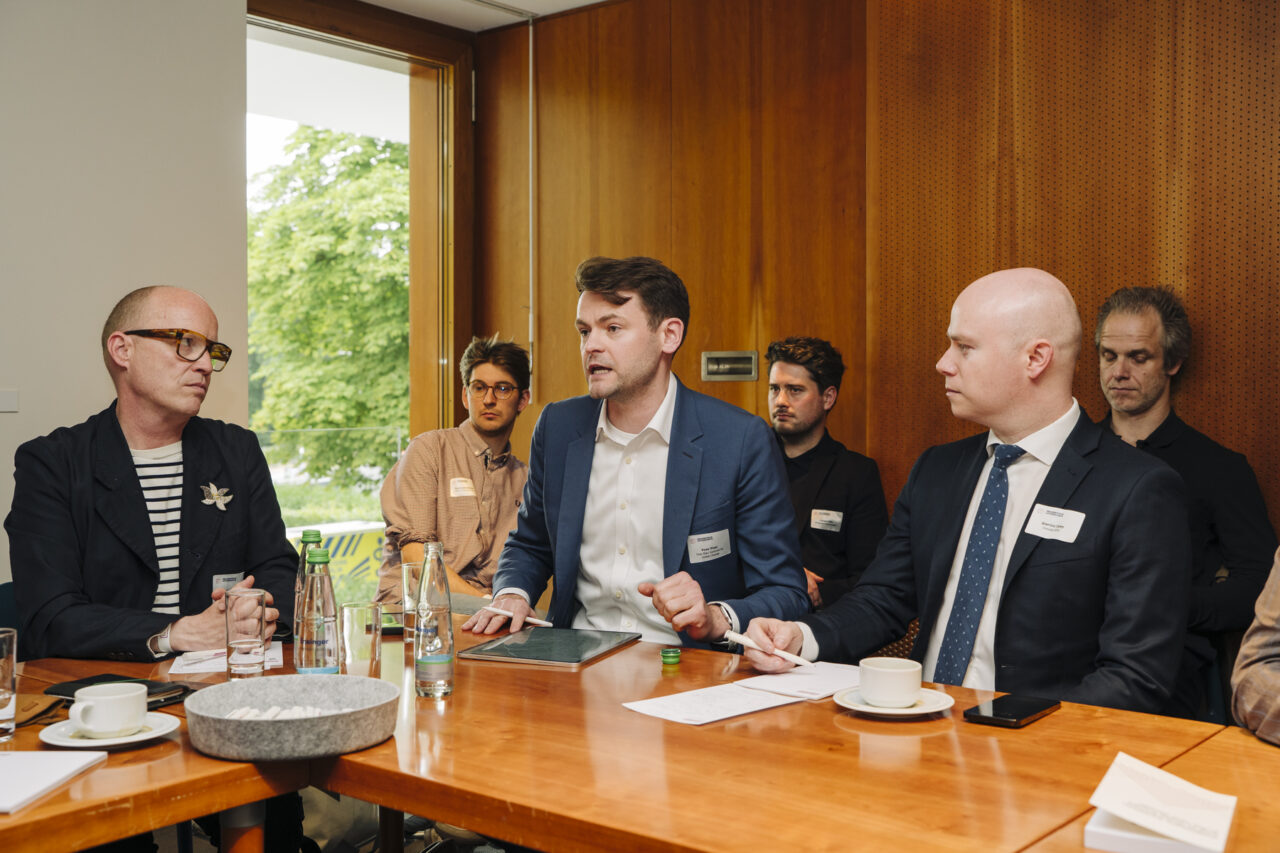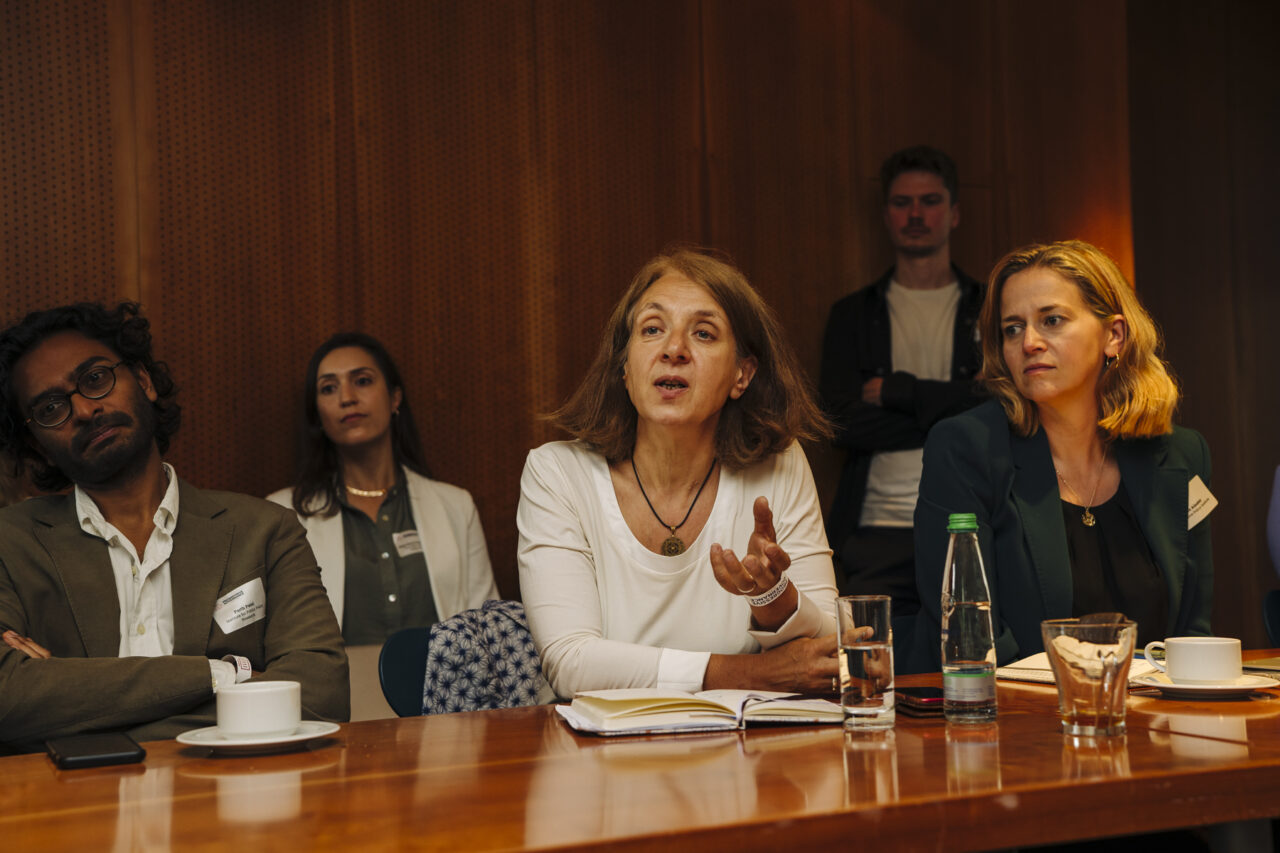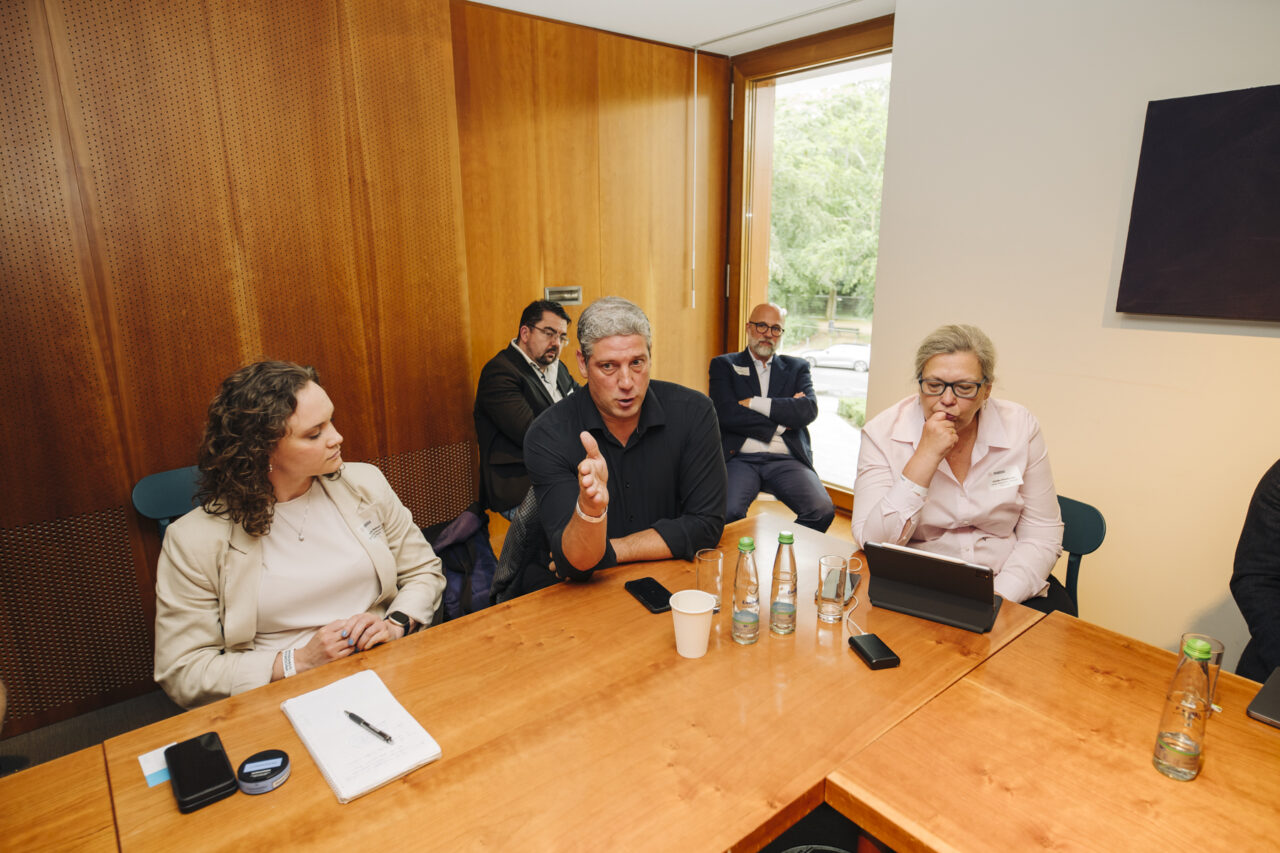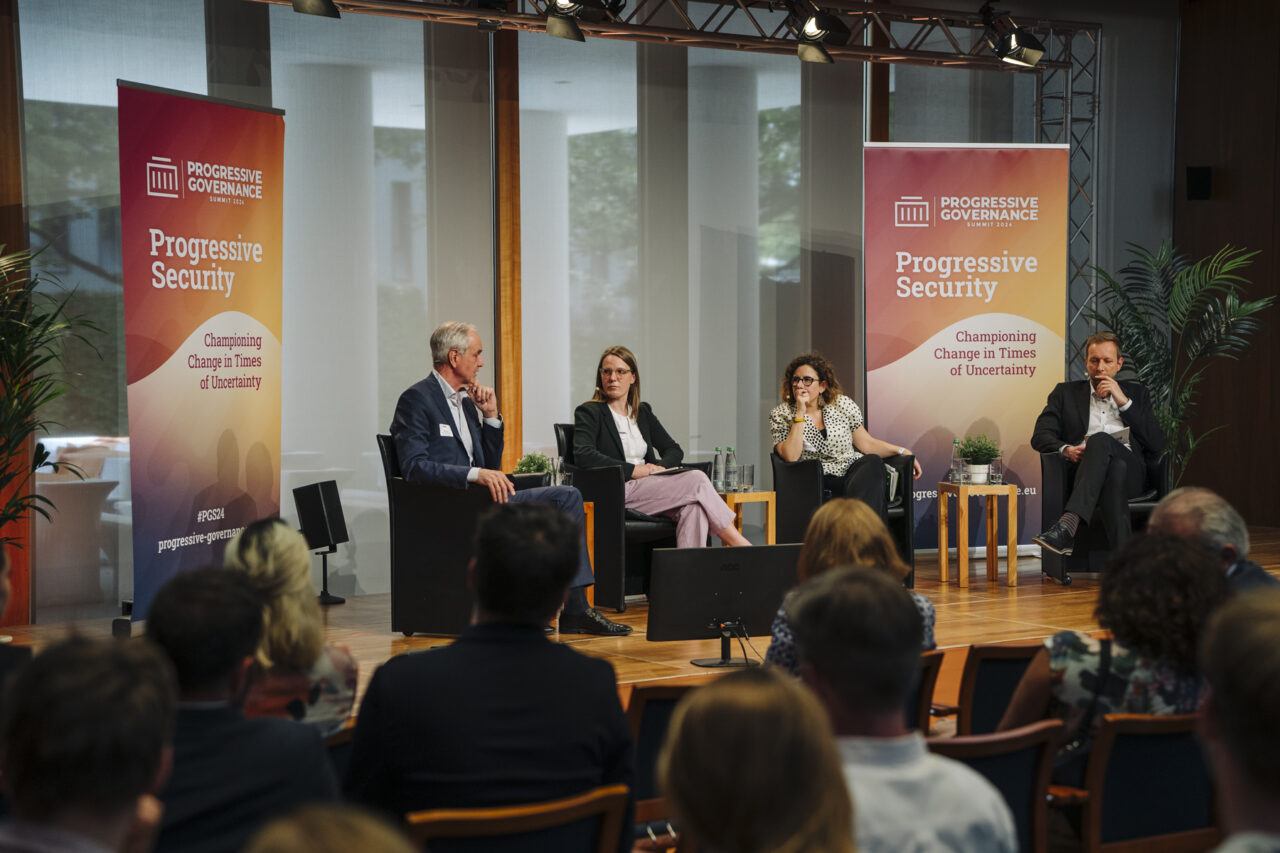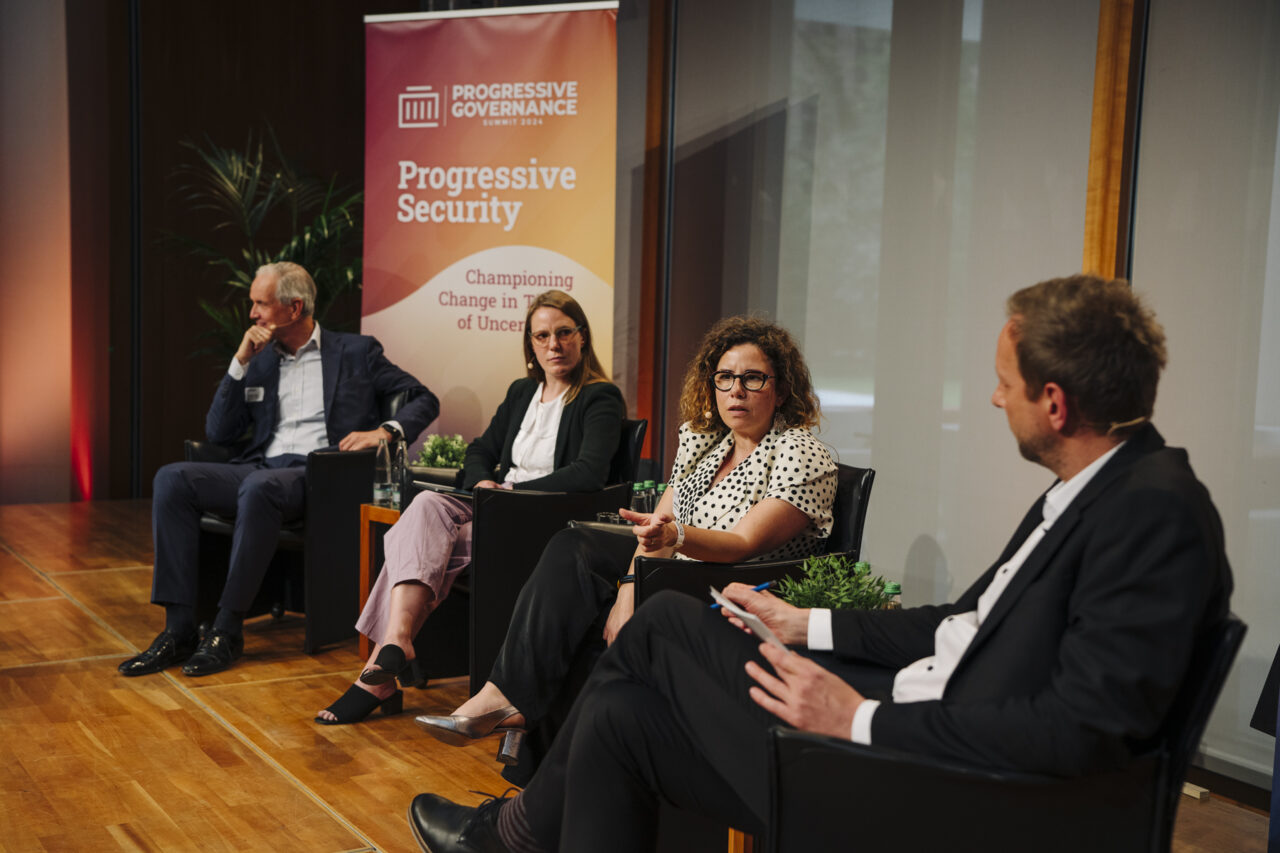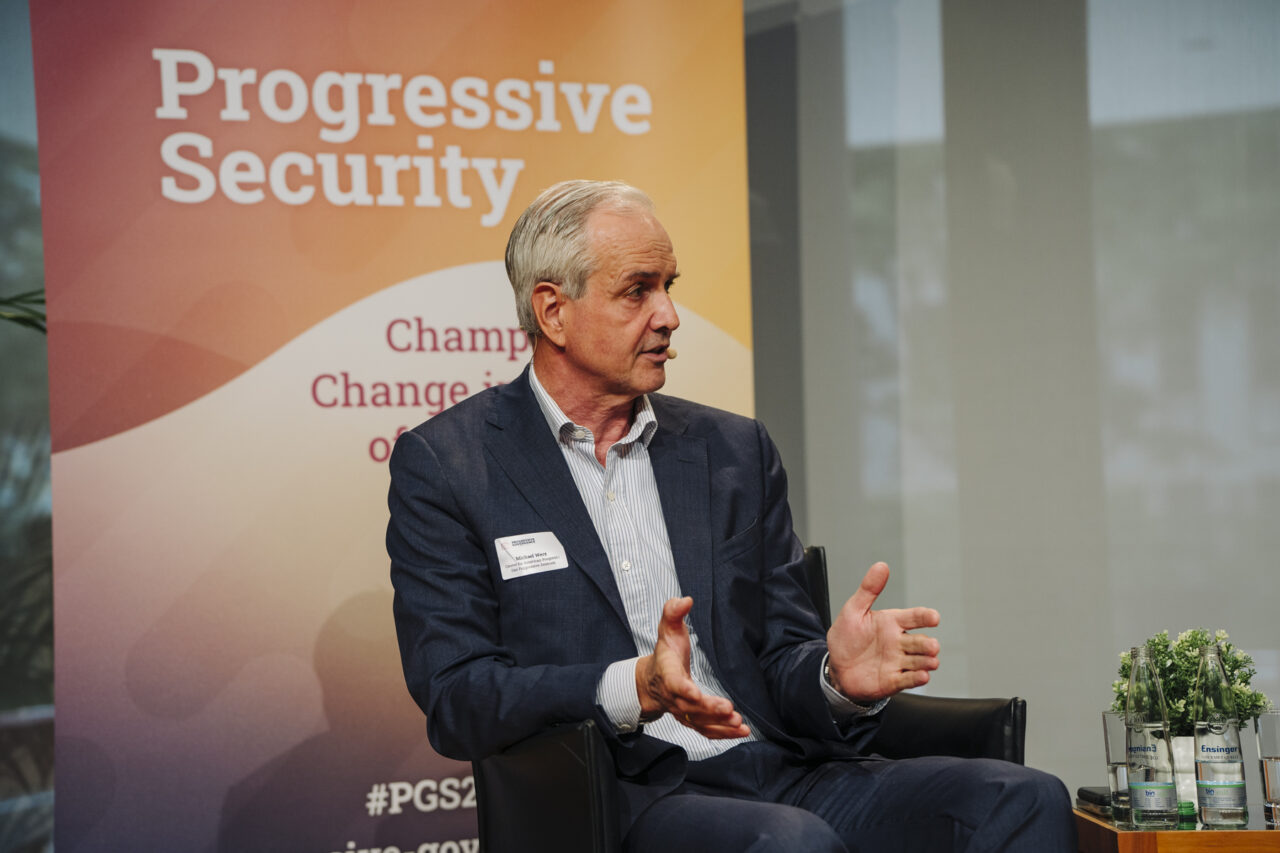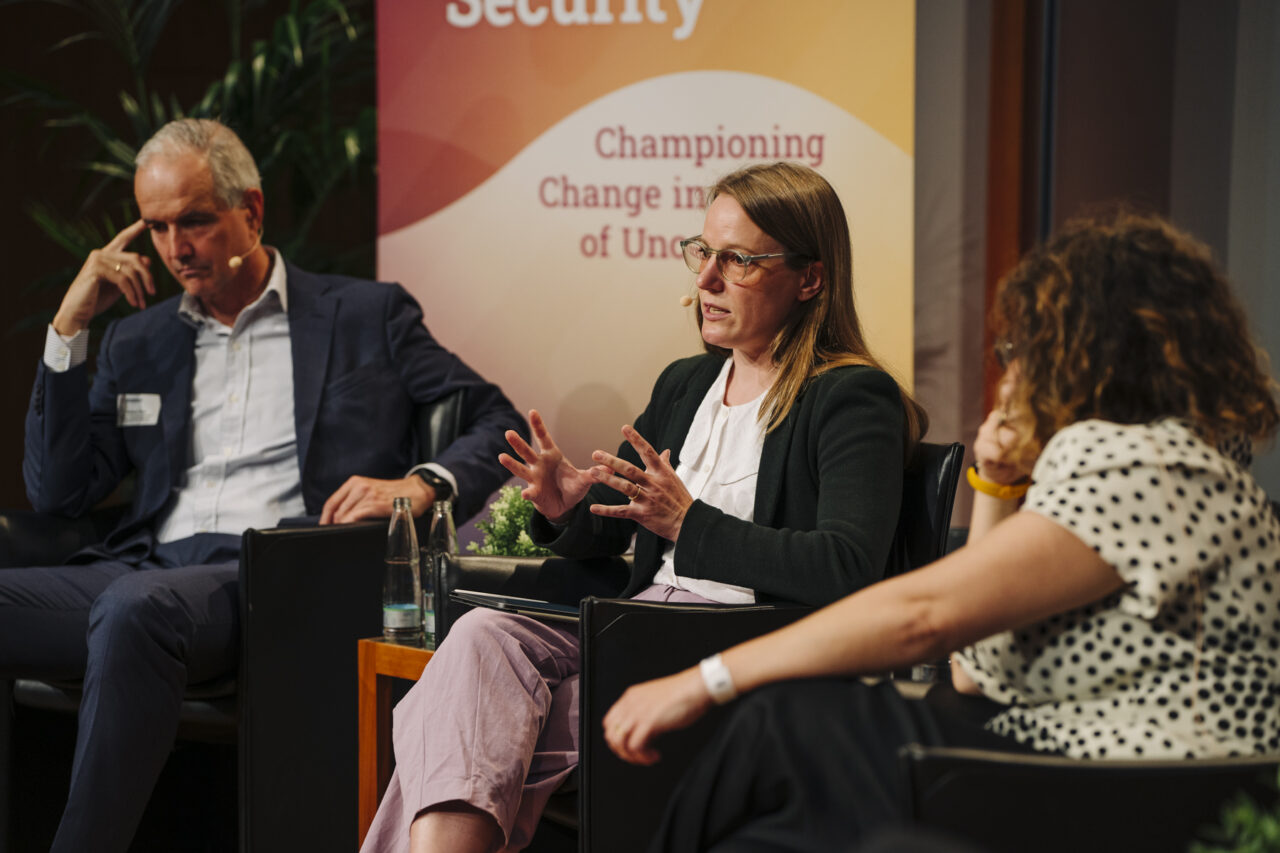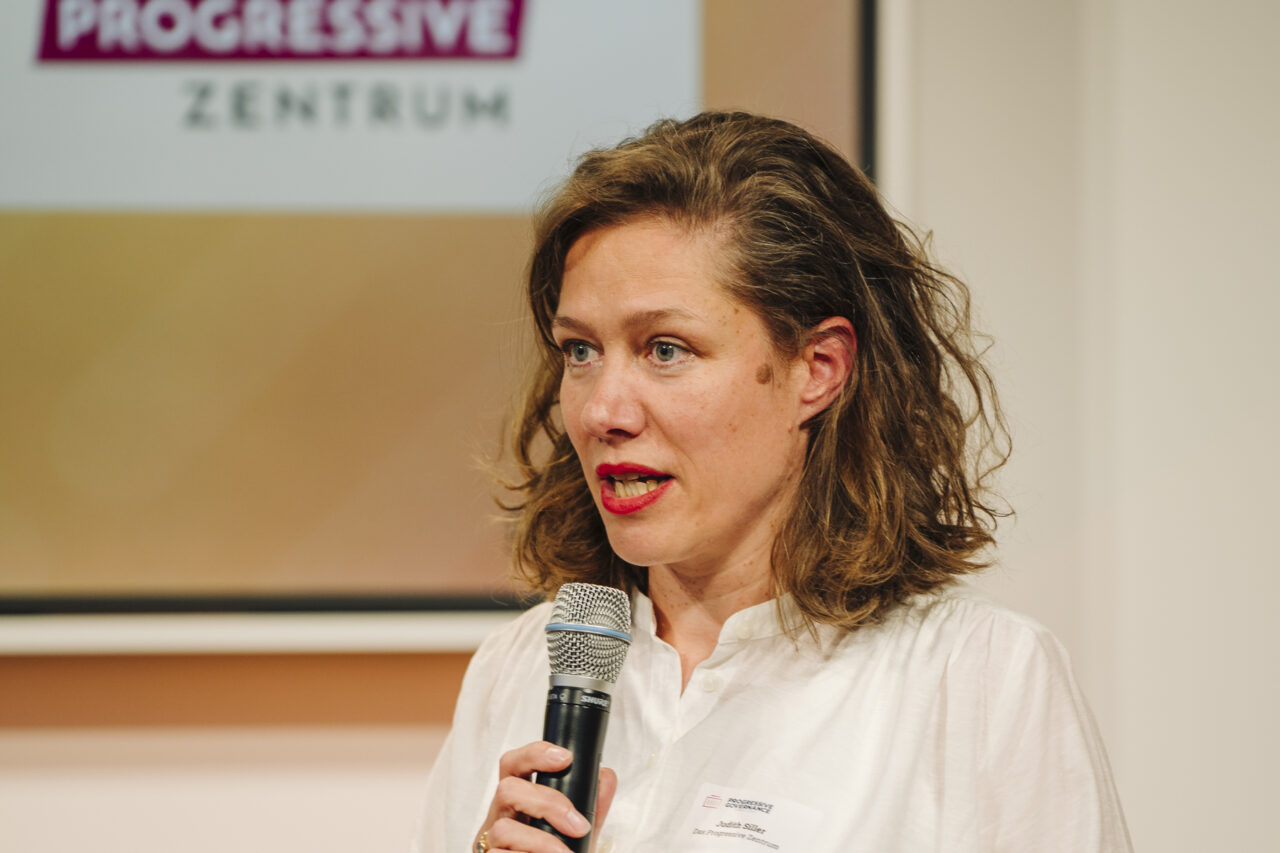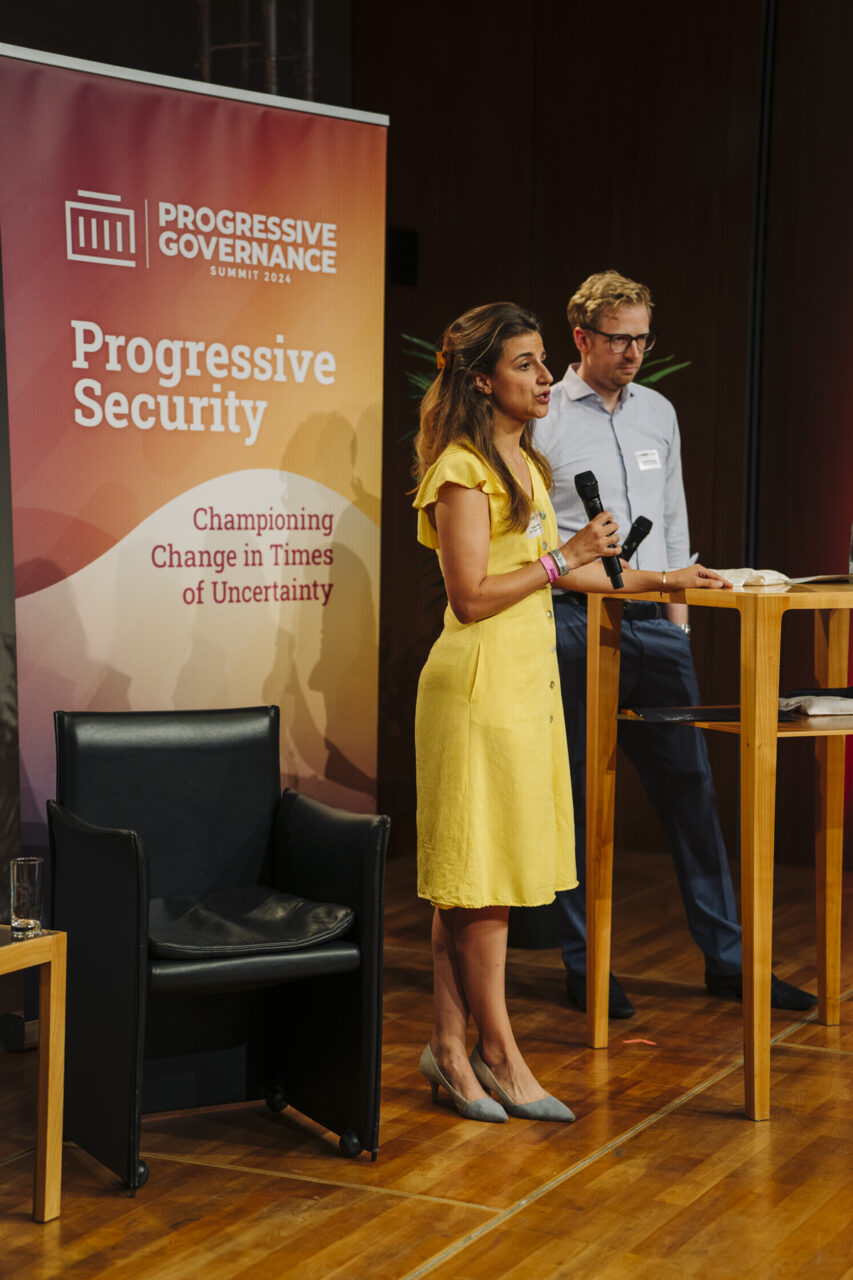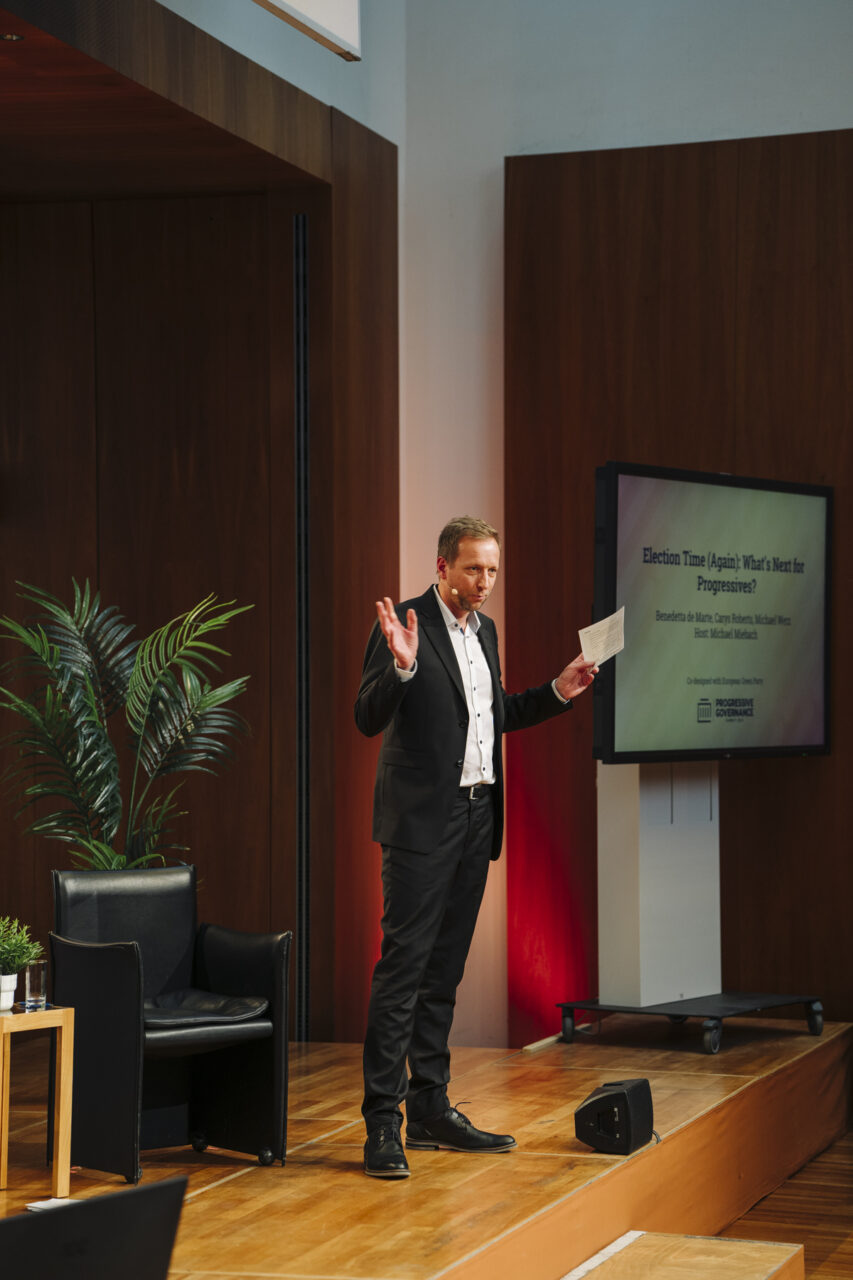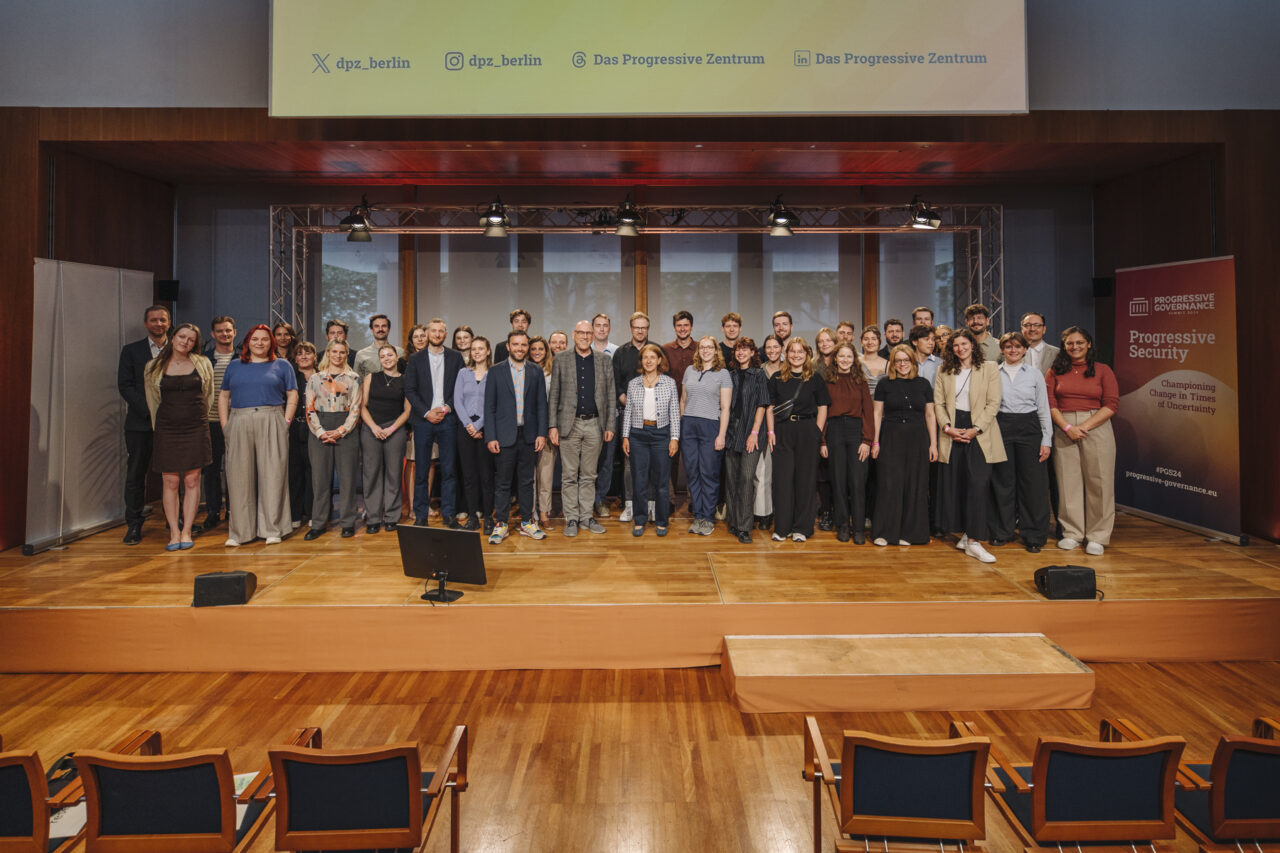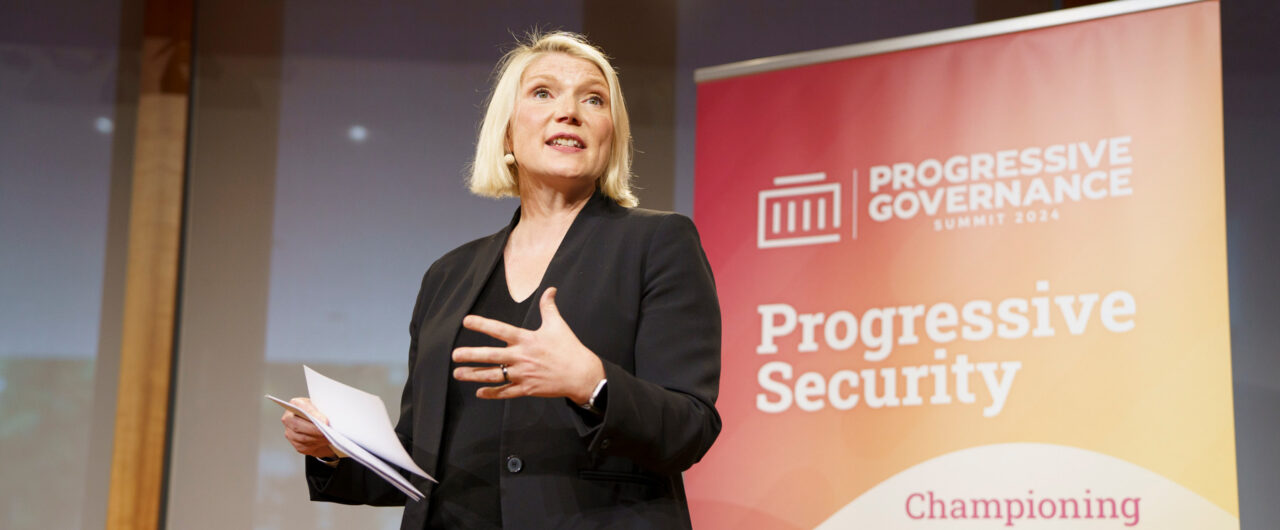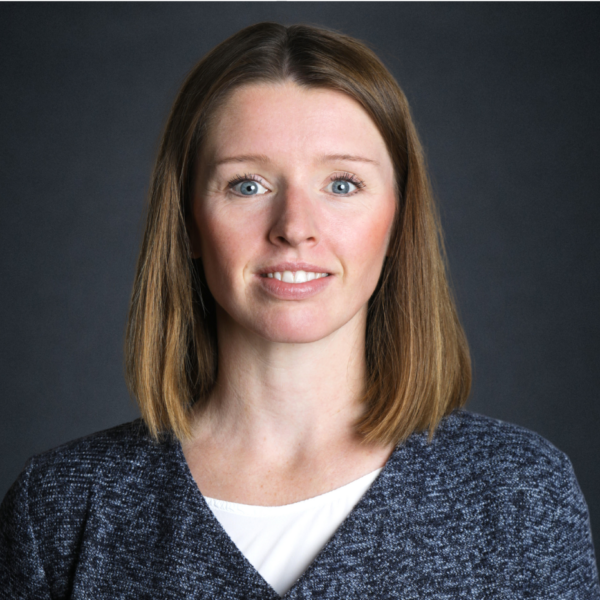How can progressive politics address the feeling of insecurity in times of war, social hardship and the climate crisis? At the Progressive Governance Summit 2024, marking the 25th anniversary of the conference series, we discussed with high-level and up-and-coming policymakers and thinkers from Germany, Europe and North America the concept of Progressive Security as a possible solution.
We live in uncertain times. Economic shocks, technological changes, pandemics, the climate emergency and conflict after conflict have combined to create a widespread feeling of insecurity. On 21 and 22 June, shortly after the European elections, Das Progressive Zentrum, together with its 25+ international partner organisations gathered 500+ leading intellectuals, activists and policy makers in the State Representation of Baden-Württemberg in Berlin to discuss progressive security and the challenges progressives currently face in order to address the central sentiment of our time: uncertainty.
Our speakers, among others:
- Olaf Scholz, Chancellor of Germany
- Lea Ypi, Professor in Political Theory and Political Science, London School of Economics, UK
- Boris Pistorius, Federal Minister of Defence of Germany
- Patrick Gaspard, President and CEO of the Center for American Progress Action Fund, US
- Cathryn Clüver Ashbrook, Executive Vice President at the Bertelsmann Foundation and Member of the Scientific Advisory Council of Das Progressive Zentrum, Germany
- Jeremy Cliffe, Writer and Commentator, Germany/UK
- Anna Lührmann, Minister of State for Europe and Climate at the Federal Foreign Office, Germany
- Franziska Brantner, Parliamentary State Secretary, Federal Ministry for Economic Affairs and Climate Action, Germany
- Tytti Tuppurainen, Leader of the Finnish Social Democratic Parliamentary Group, Finland
- Brencia Berry, Political Director of the Democratic National Committee, US
- Sandro Gozi, Secretary General of the European Democratic Party and French Member of the European Parliament, Renew Europe
- Ann Linde, Former Minister for Foreign Affairs of Sweden and FEPS Special Advisor on Foreign Affairs, Sweden
- Wolfgang Schmidt, Head of the Federal Chancellery and Federal Minister for Special Tasks, Germany
- Natalie Bennett, Green Member of the House of Lords in the UK
- Paul Hilder, Founder and CEO of Datapraxis, UK
- Grace Blakeley, Journalist and Author, UK
- Philippa Sigl-Glöckner, Founder and Director, Dezernat Zukunft, Germany
- Robert Misik, Journalist and Author, Austria
- Rainer Forst, Professor of Political Theory and Philosophy, Goethe-Universität Frankfurt am Main, Germany
Learn more about all our speakers here.
See the full photo gallery here.
Creating momentum for progressive politics today
With our more than 500+ guests from across different sectors, we spent two days of intensive dialogue debating their ideas on how to create momentum to turn a progressive security concept into political action.
The conversations at #PGS24 were structured along three guiding assumptions that are central to progressive politics today:
- First, progressives must claim a space and gain credibility in a discourse on military security that to this day is dominated by conservatives. This may be done by an approach to defence, security and foreign policy that is principled in freedom, human security, multilateralism and a strong commitment to tackle the climate crisis.
- Second, social and economic policies must prioritise collective solidarity over individualism in order to address the grievances felt by many. One will only be safe if those around you are and feel safe, thereby countering right-wing narratives of exclusive security which is only reserved for certain groups. This includes the guarantee of fair wages and working conditions, social and physical infrastructure, affordable housing and energy, universal access to health care and an economic model that respects the planetary boundaries.
- Third, by addressing the multifaceted anxieties of today’s electorate, progressives can present a comprehensive and inclusive concept of security that resonates with a broad range of voters. This reimagined security concept offers opportunities for progressive electoral campaigning to connect with voters’ day-to-day concerns and build international progressive value-based alliances after the elections in 2024 and 2025.
As an input for the Progressive Governance Summit 2024, in our Summit Paper “The case for Progressive Security” Jeremy Cliffe and Florian Ranft explore how progressives can address the feeling of insecurity in our societies. They must continue challenging the status quo to achieve a better society amid a new reality of military threats and the hard choices that come with it in domestic politics. The key argument is that Progressive Security goes beyond security in the military sense. It is both protective and emancipatory rather than a wall shutting out threats; it is also a hill on which capabilities can converge in the interests of reducing those threats in the long run – an idea also outlined by Florian Ranft, member of the management board of Das Progressive Zentrum, in his Op-Ed for The Guardian.
Cooperation, cohesion and capacity: The progressive answer to insecurity
In their opening session, Jeremy Cliffe and Cathryn Clüver Ashbrook introduced the idea and value of a progressive security concept – and how it differs from traditional approaches taking into account the specific nature of present challenges and fostering greater cooperation across sectarian and national divides, focussing on more cohesive and thus resilient economies and societies, and greater capacity for collective responses.
Olaf Scholz and Lea Ypi: A valuable dissent
Public debates often have a tendency to be consensual. It was striking that the conversation between German Chancellor Olaf Scholz and Lea Ypi, one of Europe’s contemporary leading intellectuals, led to a constructive dissent on freedom, capitalism and the role of social democracy.
Chaired by The Guardian’s Editor-in-chief Katharine Viner, Scholz and Ypi spoke on “Freedom, Peace and Progress in Europe”. Despite both being progressives, Ypi’s and Scholz’ specific ideas on progressive politics were starkly different – be it on the compatibility of democracy and freedom, the degree to which progressives need to find answers to the wide-spread feeling of insecurity or the principal modus operandi of centre-left politics. (The Guardian published a comprehensive summary of the debate here.)
No doubt, Ypi and Scholz agree on the core objective of centre-left politics in providing security for the most disadvantaged and working people in our societies. However, the way of how to get there is fundamentally different. Maybe this is exactly what we need: a constructive public debate rather than a consensus that comes across as superficial; one that brings us closer to the common goal of reclaiming security as a progressive project.
Freedom, inequality, and capitalism: spending money (wisely)
In a compelling debate, Grace Blakeley and Philippa Sigl-Glöckner discussed how the prevalent feeling of insecurity relates to our economy. The silver lining is that we often ignore the issue of material insecurity in our societies. Both economists agreed that we need to rise public spending on decarbonisation – referring to the climate breakdown as the single greatest security threat – and on material security. With regard to rising military expenditures, Sigl-Glöckner emphasised: “When it comes to progressive security, we can have both: guns and butter.”
A holistic approach: Looking at military, social and climate security
What might a holistic approach to progressive security entail? In a series of sessions, speakers and audiences together explored questions of military, social and climate security, aiming at striking the right balance between the security challenges. Main takeaway: while tackling one can mean improving the other.
Recognising the climate crisis as the greatest threat to security, the discussants explored progressive ways to address its ramifications while tackling material insecurity. Natalie Bennett, Member of the House of Lords in the UK, Green Party, argued: “Climate adaptation can actively help alleviate our grim socio-economic situation.” This framing starkly contrasts with the conservative narrative that views climate adaptation merely as a financial burden and dissolves the proclaimed contradiction between social and climate protection. It seems to be particularly effective now, as it may combine long-term investment in public infrastructure with addressing immediate hardships and climate issues.
Claire Ainsley, Director of the Project on Center-left Renewal at the Progressive Policy Institute, expressed frustration with the common narrative framing climate change as being in opposition to the economy or cost of living. She pointed out that voters do care about climate change. “It’s not just green supporters or people for whom that’s a top issue. For working class voters, too, it does absolutely come into their top concerns”.
When it comes to taking action on these matters, anxiety and the feeling of being disregarded paralyse many people. However, Maria Ojala, Associate Professor at Örebro University, highlighted: “Anxiety is not related to powerlessness: the more worried you are, the more active you are”. In particular, when it comes to the concerns of younger people, progressives need to ensure that their voices are included on an equal footing in a conversation on a positive vision for the future.
When military security was on the agenda, it quickly became clear that it is a necessary precondition for other forms of security. German Federal Minister of Defence, Boris Pistorius, described the situation via video message: “Our rules-based international order is under threat: By war, geopolitical competition, and systemic rivalry. At the same time, climate change is impacting our security and our societies. (…) How can we as progressives protect our peace, freedom, and security?”
One approach: Progressives must actively participate in current debates, overcoming naivety while still upholding principled policies. Aleksandra Wiśniewska, Member of the Polish Parliament, Civic Coalition, expanded on this point, emphasising that when increasing defence spending – an imperative from her view due to Russia’s expansionary politics of aggression – it must be done responsibly, while staying true to the democratic values that distinguish democracies from authoritarian regimes. “The challenge of policy makers is the challenge of not emulating ethically questionable behaviours. We need to hold ourselves to the highest standards that we can have”, Wiśniewska remarked, adding that simply stating support for Ukraine for as long as it takes is not a strategy.
Turning progressive security into action, progressives have to craft compelling campaigns that relate to voters’ day-to-day security concerns. Patrick Gaspard, President of the Center for American Progress Action Fund, remarked, “Successful election campaigns are never won by looking back, but always by looking into the future.” When highlighting one’s achievements, you must link them to future goals. Or as Rasmus Nordqvist, Danish Member of the European Parliament, Green Left, put it: “Promote your own vision, your own agenda for the future. People want to vote for something – not against it.”
Even more progressive goals and ideas can be explored in the programme and on our Youtube channel.
Legacy and outlook
#PGS24 marked the 25th anniversary of the conference series that has been held worldwide since 1999 – from Santiago to London, Oslo, Dublin, Copenhagen, Amsterdam and Stockholm to Berlin. This years edition was meant to kick-off an international progressive debate about the most pressing topic of this time: security. It was meant to acknowledge the urgency of doing so – and that progressive political traditions actually have answers to insecurity, albeit ones different in emphasis from conservative ones. Answers that tend to locate the sources of fragility less in the connections between individuals, classes and nations than in the failings of (or the failings in managing) those connections. They concentrate on the root causes of insecurity, rather than merely on its most immediate manifestations. Progressive answers to those root causes – greater cooperation across sectarian and national divides, more cohesive and thus resilient economies and societies, and greater capacity for collective responses – deserve a hearing.
#PGS24 was a kick-off. There’s is more to do – and more to come. Stay tuned!
Impressions
